My son Clarence and daughter-in-law Amanda took the initiative to plan for a family holiday to Melbourne months ahead of the actual trip through online research. They arranged for the planned itinerary, the rental of our apartment in Melbourne and the one night stay at the Southern Ocean Villas in Port Campbell and the rental of a car for the duration of our stay in Australia as well as selecting some of the restaurants that we would be patronizing. Thank you for your efforts, Clarence & Amanda!
My wife, my son Leslie and I flew from Kuala Lumpur to Melbourne using Air Asia flight D7 0214, leaving KL at about 11 pm on April 28. The flight was scheduled to depart KL at 10.45 pm but was delayed. Clarence and Amanda had flown from Singapore to Melbourne a few hours ahead of us. It was a long seven and a half hours flight. Luckily we had brought along our inflatable u-shaped pillows and eye masks which made the journey a little less uncomfortable and we could catch a few winks.
Day One – April 29 2015
We arrived at Melbourne at about 8.35 am Melbourne time. Immigration clearance took us about an hour. Clarence and Amanda were waiting for us outside the arrival hall; I felt sorry for them as they had been waiting for our arrival for a few hours.
We lugged our luggage across a street to the office of Budget Rent a Car Australia Pte Ltd from whom Clarence had rented a car through online booking. The staff was very friendly and helpful and seeing the number of luggage that we had, he upgraded our car to a Mitsubishi Pajero free of charge. Now that is what I call great service!
Clarence had the foresight to buy a wireless modem from Optus at the airport so we were able to go online on our smartphones wherever we went during our stay in Australia. I could check my emails, access Facebook and track KLSE stock prices.
We made our way to the apartment that Clarence had booked online through Airbnb. Clarence was able to navigate his way from the airport to the apartment using the Pajero’s GPS. I would not dare to drive in a foreign country even with GPS.
When we arrived at the apartment building (198 Harbour Esplanade Docklands), Clarence called our host Katherine who then opened the garage gate for us to park at our allocated car park. She brought us to the apartment and gave us a short briefing. She was most helpful and accommodating and it is little wonder that she and her apartment have been given great reviews on Airbnb. And the best part is that Katherine is Chinese who has lived in Melbourne for more than ten years. She gave us a few tips on the good restaurants in the city.
The apartment has a stunning view of the Harbour Esplanade and the Etihad Stadium is just a stone’s throw away. Free tram lines have stops just in front of the apartment building. How is that for convenience!
The apartment was clean and we were even provided with coffee, tea, cereals, juices, milk and even cooking condiments. Clarence had requested for a spare bed for Leslie as the apartment has only two bedrooms each with a double bed. Shortly after the euphoria of checking in, we all settled down for forty winks as we were all tired after the long hours on the plane.
After a couple of hours’ rest, we were raring to go out and explore Melbourne CBD.
Taking the free tram, we alighted near Flinders Ln and went looking for the famous restaurant Chin Chin that serves Asian fusion with strong influences of Thai food. The restaurant is pretty much on the “must visit” radar and is known to be notoriously hard to get a table at peak lunch or dinner hours. We were early, arriving at the restaurant at about 5.00pm before the dinner crowds. The restaurant started filling up shortly after we arrived and there was soon a queue of people waiting for their tables.
We ordered pork roll ups, handmade pork and crab cake with salted duck egg and tamarind nahm prik, steamed white fish, curry and fried vegetables. The pork roll ups are pancakes served with shredded meat of red braised suckling pig and a Vietnamese inspired herb slaw of bean sprouts, lettuce, mint and coriander with a small bowl of Sriracha sauce on the side for who those who like it hot. The suckling pig was tender and juicy with the texture of chicken meat but lots more flavor. I love the refreshing herbage of mint and coriander that accentuates the sweetness of the meat.
The food was yummy. It is little wonder that the restaurant is getting great reviews. By the way, the restaurant’s name Chin Chin is a bit cheeky. It means penis in Japanese!
After the hearty dinner, we walked around for an hour or so, mainly in the Chinatown area. Chinatown predominantly extends along Little Bourke Street between Spring Street and Swanston Street. You can’t really miss it – considering the ornate Chinese gates at the entrance of Little Bourke Street on both ends.
Chinatown is one of Melbourne’s iconic precincts and was an integral part of the gold-rush days in the 1850’s. Now it is home to restaurants, accommodation, the Chinatown Museum, Asian grocery stores, Chinese medicine and herbalist centres, bookstores, fashion boutiques and other retail outlets in arcades such as the Village Centre, The Target Centre and Paramount Plaza.
The heritage streetscape has been well preserved, with few buildings reaching over three storeys in height. The restaurants in the area offers a myriad of cuisines like Chinese, Thai, Japanese, Malaysian, Vietnamese, contemporary European and Australian to tempt your taste buds.
We strolled around the CBD, taking in the night sights. Melbourne has its share of street hawkers and performers and frankly some of street performers were really good. Amanda and Leslie tried out the crepes sold by a street hawker.
We dropped in the Passion Flower for drinks. It was deserted and we were the only customers. But from time to time, there was a trickle of customers coming in to order ice cream. We soon headed back to Docklands using the city tram.
A stroll along the Harbour Esplanade in Docklands at night is a pleasant experience. The views were beautiful especially the Bolte Bridge and the sculptures. It was then time to call it a day.
Day Two – April 30 2015
While waiting for the others to get ready, I went for a stroll along the Harbour Esplanade. I saw the funny structures with white painted tips on the dockside but could not understand what they were for. I guess they may be related to the re-development of the waterfront. The views were great with many sculptures, spectacular harbours and piers and striking colourful buildings.
I saw the Melbourne Star Observation Wheel from a distance but I did not even consider trying it out as I have a phobia of heights.
We headed out to begin our second day in Australia by taking the free tram service to Melbourne CBD and alighted somewhere not far from the Queen Victoria Market. We seek out the The Hardware Société which Clarence had selected from his online research.
Situated at 120 Hardware Street, this restaurant is widely regarded as one of Melbourne’s worst-kept secrets. The place was lively, inviting, cosy and very unpretentious. I liked the round mirror and wall paper featuring the brightly coloured butterflies.
We felt that the food was great and the coffee exceptional. The service was quick and super friendly. The waitress who served us was friendly and cute. The Hardware Societe was a pleasant experience for us and a great way to start our day. The only setback was that the bill came up to $126.60, not a cheap breakfast at all!
Melbourne’s city centre is characterised by spacious, tree-lined streets, many with tram lines running along them. It is a mix of old and new. Exclusive shopping arcades and the bustling Queen Victoria Market, along with historical landmarks from centuries ago, blend in with modern office towers.
It has been said that a visit to Melbourne will not be complete without at least dropping by The Queen Victoria Market (also known as the Queen Vic Markets or the Queen Vic, and locally as ‘”Vic Market”‘). We made our way to the market after our breakfast.
The historic landmark spread over two city blocks covering an area of around seven hectares (17 acres) and is the largest open air market in the Southern Hemisphere. The Market has been the heart and soul of Melbourne for more than a century and has been listed on the Victorian Heritage Register.
This vibrant and bustling inner-city Market is where Melburnians shop for everything from Australian fruit and vegetables, and local and imported gourmet foods, to cosmetics, clothing and souvenirs. With more than 600 retailers, Vic Market is a true reflection of Melbourne’s cosmopolitan makeup.
The market is made up of the Deli Hall, for artisan cheeses, dressed meats and takeaway food; the Meat Hall; Fruit & Veg, with seasonal produce throughout the year; and Organics, specialising in organic fresh produce, meat, coffee and wine. Shops and stalls selling souvenirs, fashion and crafts can be found in Victoria and Elizabeth streets, the F Shed laneway and String Bean Alley.
We spent a couple of hours at the market and ended up buying some souvenirs and opal stones.
We took the city tram back to our apartment building from where we began our journey to Phillip Island in the Pajero. Harbour Town was on our itinerary but we skipped that as we felt that we may arrive too late at Phillip Island. The journey to Phillip Island took us a couple of hours as we need to observe the speed limits. The generally flat landscape with farmland but few trees soon became a bit boring to watch.
By the time we arrived at Phillip Island Penguin Parade, it was about 5.15 pm. We saw some Cape Barren Goose in the car park area. After relieving ourselves at the toilets, we made our way to the beach where the penguins would be landing after a full day at sea. The walk to the beach was full of picturesque places but we were told that photography was not allowed so we reluctantly obeyed the rules.
However while waiting for the penguins to arrive, we noted that everybody was taking photos at the beach so we joined in happily. There were quite a lot of seagulls on the beach and they became the object of our photography. But as darkness fell, we were again warned not to take photos of the penguins as it could frighten the penguins. According to the park wardens, the penguins only return under cover of darkness as they fear attacks by birds of preys such as eagles and falcons.
When the first penguins started arriving on the beach, there was a murmur of excitement among the many spectators. It is an once-in-a-lifetime experience watching the little penguins waddling up Summerland Beach to their burrows. As photography was not allowed, I googled for this nice photo of a penguin parade on Phillip Island.
The parade lasted about 40 minutes. We then followed the penguins back to their nests on covered boardwalks. We could hear the penguins making so much noises. This Youtube video gives a good summary of the penguin parade.

Due to time constraints, our visit to Phillip Island was almost solely for the Penguin Parade. If only we had more time, we would have loved to visit the Koala Conservation Centre, Churchill Island Heritage Farm, Nobbies Centre and Seal Rocks which hosts the largest colony of fur seals in Australia. It would have been another once-in-a-lifetime opportunity to see seals sun themselves on the rocks, feeding their young, wrestling, flopping into the cool water or frolicking on the rocks.
We made our way to the Visitor Centre that has a carnival-like atmosphere, with souvenir shops and cafes. We bought a few postcards, a Phillip Island booklet, a couple of T-shirts, Phillip Island magnets and some other souvenirs. It was then time for us to head back to Melbourne.
As we approached Melbourne, we stopped at Hungry Jack’s Restaurant in Cranbourne for our dinner as the restaurants near our apartment would probably be closed by the time we arrived at the apartment. Hungry Jack’s is actually Burger King. When Burger King moved to expand its operations into Australia, it found that its business name was already trademarked by a takeaway food shop in Adelaide. Eating fast food on an empty stomach made the food seemed tastier!
Day Three – May 1 2015
Today was a beautiful day, blue skies and everything nice. We left our apartment at about 9 am in the Pajero to begin our journey to Healesville Sanctuary which is over an hour’s drive from Melbourne . As we were not familiar with the route, we drove at a more leisurely pace and followed the directions given by the Pajero’s GPS.
We stopped at Mocha And Lime situated at 11 Green Street, Healesville for breakfast. From his online research, Clarence had chosen this restaurant as it has great reviews on TripAdvisor and Urbanspoon. Mocha & Lime is a family run business; Kaz and Frank, their daughter, Heather and her partner Lee.
On the shelves at the rear are lots of Yarra Valley tea and a huge range of second hand books for sale. On the walls there are murals of musicians and nature and a very large blackboard with the menu and specials. With its rustic yet tasteful interiors, the place has a wonderful, cosy vibe to it.
We had no regrets as the food (I love their bacons) and service was good. And the waitress who served us was friendly and sweet.
After breakfast, we went straight to Healesville Sanctuary just a few minutes’ drive from Mocha and Lime. The sanctuary is world-renowned as the best place to see Australian wildlife in their natural habitat. It is located in the heart of the Yarra Valley at Healesville in rural Victoria, and is set in a beautiful natural bushland environment for people and animals to reconnect with nature from creek to canopy.
Paths wind through different habitat areas showcasing wallabies, wombats, dingoes, kangaroos, koalas, emus and over 200 native bird varieties. I find the koalas particularly cute and endearing!
The Australian Wildlife Health Centre treats more than 2000 sick and injured native animals every year. The hospital team also conducts cutting-edge research into conservation medicine, clinical wildlife medicine and wildlife rehabilitation, and plays an important role in wildlife disease surveillance.
Healesville Sanctuary is acknowledged as a world leader in Platypus breeding, care and research. The Sidney Myer World of the Platypus gave us the opportunity for a close up to these unique Australian mammals in a stunning exhibit.
Spirits of the Sky is a daily show featuring Australia’s majestic birds of prey and magnificent parrots. The bird show was amazing – informative, entertaining and also a great way to rest the feet for 30 minutes. It’s a bit terrifying when the birds swooped close over our heads. We marveled at how well trained the birds were in carrying out their performances.
Below is an Youtube video of a Spirits of the Sky show:

Animals of the Night introduces visitors to the dark and secret world of Mountain Pygmy-possums, Bilbies, Bandicoots, Gliders, Lord Howe Stick Insects, and many more mysterious creatures of the night. As it was rather dark, we could not see too clearly many of the creatures. And photography was tough!
Visitors can drop by the Fighting Extinction Headquarters – mission control for Zooperman – to discover which animals need help. The sanctuary is committed to fighting wildlife extinction, playing a critical role in saving some of the world’s most endangered animals. Zooperman, the sanctuary’s very own super-hero, was on hand to brief visitors on their secret mission in a fun, interactive experience.
I love the open and natural ambiance the sanctuary provides. Moreover as it was autumn, the weather was really cool which was very much to my liking. I could literally wander around the sanctuary one whole day if time permits but sadly we had to end our visit after a couple of hours to proceed to Domaine Chanson Winery.
Domaine Chandon was established by French Champagne house Moet & Chandon in 1986 and is dedicated to the production of méthode traditionnelle sparkling wine and cool climate still wines.
Domaine Chandon’s winery tour is considered one of the most outstanding wine tourism experiences in the world. The Green Point Room visitor centre at Domaine Chandon offers spectacular views across the vineyard and valley to the mountains. We took lots of photos.
The Green Point Room has a variety of food and wine offerings. Lunch is available daily with a menu designed to complement Domaine Chandon’s sparkling and still wine styles. The Chandon Greenpoint Brasserie offers a contemporary-provincial design, and is the Yarra Valley’s leading food and wine destination. Their focus is on fresh, seasonal produce prepared with simplicity and served in an atmosphere of sophistication with panoramic vineyard views.
We indulged in their cinnamon brulee, sautéed mushroom & asparagus and spiced calamari washed down with sparkling Hepburn Springs mineral water. I loved their sautéed mushroom & asparagus the most.
Clarence, Amanda and Leslie sampled their selection of wines, costing them each $5, but Clarence and Amanda used the $5 to offset the two bottles of wines that they bought.
After the Domaine Chandon Winery, we moved on to visit Yarra Valley Chocolaterie & Ice Creamery which was recommended by Amanda’s uncle Mr See who migrated to Melbourne more than ten years ago.
The Yarra Valley Chocolaterie & Ice Creamery is a destination where visitors can indulge their love of chocolate and ice cream in beautiful countryside as it is set on 16 hectares, amongst one of Australia’s premium wine regions and surrounded by picturesque Yarra Valley vistas, an emerging orchard and sweeping lawns.
As soon as we entered the building, we saw three giant bowls brimming with chocolates for us to sample to our hearts’ content. And being a person with a sweet spot for chocolates, I lost no time indulging myself with lots of free chocolates.
What intrigued me was the work the French and Belgian chocolatiers were doing behind the large glass viewing windows.
Thousands of chocolates are on display in the showroom, with over 250 different delectable delights ranging from truffles, pastilles, exquisite chocolate coated creations inspired by the Yarra Valley surrounds, lavish chocolate bars, nut clusters and rocky road, bush tucker chocolates in packaging designed by the local indigenous tribe, an exclusive Kitchen Garden range of chocolates, plus macarons, fudge, nougat, biscuits, chocolate sauces, chocolate spreads, mousse logs, colourful giant freckles, choc coated jelly snakes and chocolate baby animals and even take home ice-cream tubs. We had a hard time deciding on what to buy as the choices seemed a bit overwhelming. We ended up buying over $200 worth of chocolates.
The delicious product range features fruits and nuts picked from the Chocolaterie’s own orchard of cherries, plums, apricots, citrus, quince and almonds, locally sourced provisions and the best quality, Belgian couverture chocolate including a selection of single origin and organic couvertures.
Decadent desserts, fondue, pastries and ice creams are Yarra Valley Chocolaterie & Ice Creamery’s specialties. Amanda’s uncle had recommended the chocolate brownies so we bought some. The brownie is the Chocolaterie’s best seller. And for good reason.
At about 5 pm, we headed back to Melbourne as Amanda’s uncle and auntie had invited us for dinner and we did not want to reach Melbourne too late. We had a little trouble finding the house of Amanda’s uncle situated on Police Road as the street was dark with no streetlights and the houses were all mostly dark with no lights on. Amanda had to phone her uncle who then came out of his house and we were able to spot him. And once we entered his house, we realised why the house appeared dark from outside. The front portion of the house was the bedrooms and the sitting room was located in the centre of the house. We were not able to see the sitting room lights from outside.
Amanda’s uncle and auntie led the way in their car to Crown Palace Chinese Restaurant where we were treated to a sumptuous 8-course dinner comprising of duck soup, cuts of barbecue pork & Chinese sausages, lobster fried noodle, sweet & sour pork, fried vegetables, honey chicken, steamed Barramundi fish (a species of Asian seabass) and fried squid. For starters, we were served keropok (prawn crackers)….a real surprise!
I find the décor and carpeting a bit dingy but the food was good though I would say the food does not measure up to the standard of The Dynasty Chinese Restaurant in Miri. When I went to the restroom, I saw tanks of live lobsters, fish and abalone. I should have taken a photo of the live abalone!
We chit-chatted till almost 9.45 pm and we were the only customers left in the restaurant. I could see the waiters and waitresses glancing at us occasionally, most probably feeling a bit annoyed at us for staying on till so late.
From the restaurant, it was a 30-minutes drive back to our apartment, bringing our third day in Melbourne to a close.
Day Four – May 2 2015
We set out on our Great Ocean Road adventure with great anticipation as we had read so much about it.
Since its official opening in 1932, The Great Ocean Road has become an iconic international destination – offering spectacular experiences for millions of visitors every year. The Great Ocean Road is an Australian National Heritage listed 243 kilometres stretch of road along the south-eastern coast of Australia between the Victorian cities of Torquay and Allansford. Built by returned soldiers between 1919 and 1932 and dedicated to soldiers killed during World War I, the road is the world’s largest war memorial.
The road travels via Anglesea, Lorne, Apollo Bay, and Port Campbell, the latter being notable for its natural limestone and sandstone rock formations including Loch Ard Gorge, The Grotto, London Arch (formerly London Bridge) and The Twelve Apostles.
Torquay, a township facing the Bass Strait, was our first stop as it is the gateway to the Great Ocean Road. The Torquay area is famous for its surf beaches, with Jan Juc and the world famous Bells Beach located on the town’s south-west outskirts.
It is the birthplace of iconic brands Rip Curl and Quicksilver. Their influence is on show at Surf City Plaza, a shopping precinct devoted to the sport. Visitors capture the spirit of surf culture with a visit to the Surf World Surfing Museum with pictures and hands-on displays but we skipped all these as we are not into surfing.
We had our breakfast at Café Moby which Clarence had pre-chosen from his online research. Housed in a converted Torquay violet painted beach shack and from its picture-perfect position on the Esplanade, the quaint and cosy cafe captures the mood of the Surf Coast and is the perfect place to relax over a warm cup of coffee and escape the humdrum of everyday life.
Moby is known for its house-made muffins, cakes and slices and on this day a selection of freshly-baked sweets sat tantalisingly behind the glass counter. A roll of butcher’s paper hanged next to the front counter scrawled with the day’s specials.
A lone Norfolk Pine Tree sits directly opposite the cafe and legend has it one morning the original owners were sitting out the front and saw the tree as the sun rose over it. They wanted to remember that moment forever, thus inspiring them to design the café’s logo.
While waiting for the food to be served, I wandered out of the café to admire the beautiful scenery and to take photos. This little town exudes tranquility and the esplanade is lovely.
The food was not bad but definitely not as good as the food that we had at Mocha & Lime.
From Torquay, we drove to the nearby Bells Beach, a coastal locality in Surf Coast Shire and the home of the world’s longest-running surfing competition – the Rip Curl Pro Surf & Music Festival.
With an international reputation as one of Australia’s best surf beaches, Bells Beach is amazing spot – either in the water or out. It’s mostly a glorious cliff-face, and views from the cliff-top car park are spectacular – a great spot to watch local surfers out in the water.
We next made a short stop at Lorne, a seaside town on Louttit Bay, to savour the nice scenery and to stretch our legs. It is situated about the Erskine River and is a popular destination on the Great Ocean Road tourist route. We took lots of photos of seagulls and cockatoos. The cockatoos are so cute.
We stopped at Apollo Bay for lunch. This is a coastal town midway along the majestic Great Ocean Road, in the shelter of Cape Otway and on the lowest slopes of the beautiful Otway ranges. It is now a tourist destination, though it is smaller and quieter than Lorne.
Our choice for lunch was the Apollo Bay Seafood Café, a restaurant run by a Greek family. Their fish & chips were reputed to be one of the best in Australia so we ordered it in addition to fried prawns and calamari. All the dishes came with generous servings of fat French fries but the food did not live up to the hype and tasted rather ordinary and a bit bland. Lunch was really a big disappointment!
We next stopped at the Gibson Steps to marvel at the magnificent scenery. The Gibson Steps provide one of the few access points to a beach along this cliff dominated section of the coast. The name Gibson Steps refers to the steps cut into the soft limestone providing access to the beach. The 1.1 km beach is backed by a 20 to 30 m high, sheer limestone cliff. This is the first sightseeing stopoff in Port Campbell National Park for travellers heading west along the Great Ocean Road.
We felt dwarfed by the enormity of the cliffline and offshore stacks. The sheer scale of natural sculpting evident at this site is humbling. In local vernacular Gog and Magog are the names given to the two offshore stacks that may be viewed from both the viewing platform and (tide and sea permitting) and from beach level. These are not considered part of the 12 Apostles.
Located about 2 minutes’ drive from The Gibson Steps is The Twelve Apostles, the most iconic sight and enduring image for most visitors to the Great Ocean Road. It truly provided a fitting climax to our long journey.
Jutting out majestically from the ocean off the shore of the Port Campbell National Park, the rugged splendor of the limestone stacks are a sight to behold. Currently there are seven apostles left, the eighth one of the stacks collapsed dramatically in July 2005.
The apostles can be seen from a network of viewing platforms connected by timber boardwalks around the cliff tops. There’s pedestrian access to the viewing platforms from the car park at the Twelve Apostles Visitor Centre via a tunnel beneath the Great Ocean Road.
The apostles were formed by erosion: the stormy Southern Ocean and the blasting wind gradually eroded the softer limestone to form caves in the cliffs. The caves eventually became arches and when they collapsed, rock stacks up to 50 metres high were left isolated from the shore.
The site was known as the Sow and Piglets until 1922, after which it was renamed to The Apostles for tourism purposes. The formation eventually became known as the Twelve Apostles, despite only ever having nine stacks at that time.
We spent a couple of hours here absorbing the beauty of the place and the therapeutic fresh air. All of the five of us had a busy time clicking away on our cameras and smart phones. We did not bring along a tripod or else we could have filmed the sunset more beautifully.
As the sun was setting, we decided to check in at the Southern Ocean Villas that Clarence had booked online. The villa that we were given was a one-and-a-half storey semi-detached chalet with two bedrooms, a sitting room and a small kitchen on the ground floor and three single beds on the upper floor. It was a comfortable place surrounded by trees. I could hear birds chirping and making other loud noises.
After a short rest, we headed out to Port Campbell for dinner, settling on the 12 Rocks Café & Beach Bar. Food was not bad but I can’t seem to remember the names of the dishes that we ordered.
Another enjoyable day came to an end. For us, travelling the Great Ocean Road had been a truly incredible coastal drive, with awe-inspiring limestone cliffs, sandy beaches, lush rainforest, calm seaside towns, iconic surf break, crashing waves of the Southern Ocean and incredible rock formations. The breathtaking experience will be etched in our memories for a long time.
Day Five – May 3 2015
I woke early to take a brief walk around the area near our villa. It had been raining during the night and the ground was wet. As I walked around the neighbourhood, I noticed that it was so quiet with hardly any people and cars in sight. The cold air was refreshing and I felt invigorated!
After checking out from the villa, we proceeded to Waves Café Bar & Restaurant at Port Campbell for breakfast before beginning our journey back to Melbourne. While waiting for breakfast to be served, I took a tour of the town. I must say it is a very scenic place, particularly the headland of the harbour and the beach where seagulls abound.
Port Campbell is home to restaurants and cafes with views of the beach, bakeries selling homemade goodies, and plenty of vibrant shops and galleries to explore. Sheltered by cliffs and Norfolk pines, the town has the atmosphere of a safe haven on the edge of wild nature.
The breakfast didn’t quite measure up in my opinion, just a bit ordinary all round. But when you are hungry, you just gobbled up whatever food you are served.
Our next stop was the small city of Colac as we wanted to use the toilet and to stretch our legs. Colac is a commercial centre for a major agricultural district, and was named after nearby Lake Colac. I saw some shops with rather unique names and could not resist taking photos of their signboards.
From Colac, we drove back to Melbourne without any more stop. The sky had cleared and was a brilliant blue. What a perfect day for a visit to the beaches at Brighton!
Brighton is one of Melbourne’s most exclusive suburbs, located 11 km south-east of Melbourne’s central business district and fronting Port Phillip with its stretches of beautiful sandy beaches.
We only went to the coastal thoroughfare of The Esplanade that is dotted with a selection of hotels and a small commercial hub. A pedestrian and bicycle path runs along much of the foreshore, lined with palm trees, gardens and open lawns. The Middle Brighton Pier leads to a large marina facility and adjacent to that are the Middle Brighton Baths.
We walked along the pathway, taking in the great ambience and the beautiful sights of colourful sailing boats and yachts sailing in the sea. I took scores of photos of the sailing boats.
The most famous spot on Brighton’s coastline is the Dendy Street Beach. Nestled on Dendy Street Beach, the colourful Brighton bathing boxes are a very well-known Melbourne icon and cultural asset and are the only remaining structures of their kind close to the Melbourne central business district. As a functional remnant of a bygone era, they provide a cultural and historical resource that is constantly being photographed, painted or drawn.
The Brighton bathing boxes are unique because of their uniform scale and proportion, building materials and sentry order alignment, all retaining classic Victorian architectural features with timber framing, weatherboards and corrugated iron roofs. They remain as they did over one hundred years ago, as licensed bathing boxes.
You must be a Bayside ratepayer to buy a Dendy Street Beach bathing box and you are not allowed to rent or sublet the bathing box. The bathing boxes do not have any service amenities such as water or electricity connections. Licensees are not allowed to sleep in or use their bathing boxes as accommodation. Bathing box designs and colours must not be used as advertising, or be painted in colours to advertise a business. The bathing boxes now sell for up to $260,000!
The Brighton bathing boxes Licensees choose to differentiate their bathing boxes with minor structural, artistic and colour variations. When viewed together they turn the beachscape into a collective work of art.
We spent a couple of hours enjoying the scenery and happily clicking way on our cameras. The bath boxes are truly photogenic and we wanted to bring back as many images of them as possible.
We chanced upon a Chinese newlywed couple having their photos taken by their photographer. I just could not resist taking a few photos of them as they posed for their camera man.
After we had taken photos to our hearts’ contentment, we returned to our apartment at the Harbour Esplande for a short rest and also to freshen up.
We were soon on the free city tram to Melbourne CBD. After strolling around for a while, we we paid homage to Chokolait on Level 3 of Mebourne’s new shopping destination The Emporium on Lonsdale St between Swanston St and Elizabeth St close to the food precinct. The so-called best chocolate drinks in Melbourne did not disappoint. We ordered a piece each of Chokolait Pavlova, lemon cheese cake and chocolate mudcake. Chokolait Pavlova is their most popular signature dish, a classic Australian pavlova infused with Genuine Belgian Dark Chocolat and served with double cream and fresh strawberries. As I always have a sweet spot for rich chocolate, I like the rich and moist chocolate mudcake the most. It was the most delectable and luscious chocolate mud cake that I have ever eaten.
We resumed roaming around the CBD until it was time for dinner. Making our way to Chinatown, we chose HuTong Dumpling Bar where we ordered their signature dish xiao long pao, stir fried spinach in ginger & spring onion sauce, deep fried king prawns with creamy butter sauce and pork spare ribs with honey & pepper and braised fish head soup.
HuTong’s xiao long pao has a legion of fans and once you have tasted one, you will understand why. Nibbling into these pork-filled dumplings and sucking out the pork broth is a real treat to your taste buds; so too is watching the pao being made through the kitchen window if you find yourself at a ground-floor table.
Overall the food was not bad. The bill came up to $123.50.
Day Six – May 4 2015
We took the free city tram to the CBD again as there were a lot of places that we had not visited. But we first seek out Manchester Press to have breakfast.
Tucked clandestinely away in Rankin Lane, just off bustling Little Bourke Street, Manchester Press is surprisingly spacious and tranquil – a prized rarity for inner-city cafes. With a high ceiling and an odd assortment of industrial furniture, the decor is fashionably distressed, rustic and warm with some quirky touches like paper paintings of people and various photo art littered on the wall.
The menu is small and simple and features some bagels and top notch coffee. This is obviously a pretty happening place with people coming and going getting their coffees and sweet treats. They had a ‘waiting list’ hanging on a hook outside for patrons to write their names on.
While waiting for breakfast to be served, I wandered to Bourke Street to search for No. 423 Bourke Street which is owned by the Ong family of Brunei for whom I worked for about ten years. I was able to find it as a short search. I then went to the nearby Queen Street to search for No. 118 Queen Street which was also owned by the Ong family for several years before they disposed it for a tidy profit. I was happy to be able to find this building too. I used to write monthly financial reports on these two buildings for my boss when I was attached to the Teck Guan group in Brunei.
Manchester Press’ latte art was impressive but breakfast was not to my liking. I had ordered bagel with jam. I had read raving reviews about the bagel and the coffee here but the bagel was a huge disappointment. I would prefer our local Sarawak kompians anytime. The coffee was okay but I failed to fanthom how the coffee has been rated as the best in Melbourne by quite a lot of online reviewers. After breakfast, we went sightseeing in the CBD.
Standing statuesque on the corners of Flinders St, St Kilda Road and Swanston St, the striking yellow iconic Flinders Street Station with its castle-like turrets and green copper dome can be seen half way up Elizabeth Street, and if you say “meet me at the clocks”, everyone knows you’re talking about the clocks located on the facade of the entrance.
Flinders Street Station is Australia’s oldest train station and the busiest suburban railway station in the southern hemisphere, with over 1500 trains and 110,000 commuters passing through each day. Listed on the Victorian Heritage Register, its 708-metre main platform is the fourth longest railway platform in the world.
Diagonally opposite Flinders Street Station is the St Paul’s Cathedral located on the eastern corner of Swanston Street and Flinders Street. This magnificent neo-Gothic building was built from 1880 to 1926, when the spires were completed.
Another well-known landmark is Federation Square which is situated across the road from Flinders Street Station and opens out onto the Yarra River and adjacent parkland, features the city’s official visitor information centre, cafes, restaurants, and a hotel.
The Australian Centre for the Moving Image, located at Federation Square, is where you can find out everything about cinema, television, computer games and screen-based art of the future within galleries, cinemas and studios.
Melbourne is a melting pot of art, class and style. The most infamous of the Melbourne laneway family, Hosier Lane has become synonymous with other great Melbourne landmarks. Hosier Lane is an ever changing face of art and epitomises Melbourne graffito chic.
Not a day goes by where you won’t see some trigger-happy student or tourist snapping shots left right and centre. A meander along the cobbled bluestone of Hosier Lane found us in one of Melbourne’s most iconic streets.
With a huge selection of sophisticated urban art, we were mesmerised by the artistic talent sprayed on the walls. It was fascinating seeing the whole lane full of graffiti art, including the bins, and bursting with colour and great photo opportunities! We lost no time clicking away on our cameras, ending up with hundreds of photos.
From Hosier Lane, we made our way to Chinatown to have dimsum at Crystal Jade Restaurant. The restaurant has a much better ambience and comfort than many others in Chinatown. The variety of competitively-priced dim sum is extensive and its staff friendly and helpful. Trollies passed by regularly with hot and fresh baskets and plates. However, I was not impressed with the dim sum. I have tasted much better dim sum at Grand Palace Miri.
Heading for the Shrine of Remembrance and Royal Botanic Gardens, we passed through Kings Domain, an area of parklands that surrounds the Government House Reserve, the home of the Governors of Victoria, the Sidney Myer Music Bowl, and the Shrine Reserve incorporating the Shrine of Remembrance. It is like a warm up of appreciation for what we were about to experience next.
We passed by the sculpture of Two “seeds of friendship” – of Gallipoli’s Lone Pine and of the Australian casuarina tree – that was sculpted by Trentham-based sculptor Matthew Harding to commemorate the Anzac centenary and form the Australian Turkish Friendship Memorial.
The Shrine of Remembrance is Victoria’s largest and most visited war memorial of National Significance. It is Melbourne’s most iconic landmark. It was built between July 1928 and November 1934 in remembrance of those who served and those who died in the Great War of 1914-1918 and armed conflicts and peacekeeping duties since.
The people of Victoria felt that their debt to these volunteers, who had defended them at such great costs to themselves and their families, should be recognised by a worthy permanent monument of remembrance. Although the country was faced with frightful unemployment and financial difficulty in the late 1920s and the 1930s, so great was the gratitude of the people that the huge amount required to build the Shrine was raised or promised within six months from the opening of the appeal in 1928.
The design for the Shrine of Remembrance was selected by competition among Australian artists and architects. Eighty-three designs were submitted and the winning design was by two Melbourne architects Philip Hudson and James Wardrop who were both World War I veterans. The design of the Shrine is based on the Tomb of Mausolus at Halicarnassus and the Parthenon in Athens. The crowning element at the top of the memorial’s ziggurat roof references the Choragic Monument of Lysicrates. The sanctuary contains the marble Stone of Remembrance, upon which is engraved the words “Greater love hath no man”. Beneath the sanctuary lies the crypt, which contains a bronze statue of a soldier father and son, and panels listing every unit of the Australian Imperial Force.
We spent a couple of hours touring the Shrine of Remembrance and its vicinity.
From the Shrine of Remembrance, we moved on to the nearby Royal Botanic Gardens Melbourne. Attracting over 1.8 million visitors annually, the Royal Botanic Gardens is a treasured part of Melbourne’s cultural life and a valuable asset to the heritage-rich city. With its stunning vistas, tranquil lakes and diverse plant collections, the 38 hectares Victorian-era landscaped Gardens are a picturesque haven for recreation and an important resource for education, conservation, science and horticulture.
Established in 1846, the Royal Botanic Gardens Melbourne is home to amazingly diverse collection of over 50,000 plants from around the world such as camellias, rainforest flora, succulents and cacti, roses, Californian species, herbs, perennials, cycads and plants from Southern China. We enjoyed the leisurely stroll in the gardens, admiring the beauty and tranquility and taking photos to our hearts’ content.
The Royal Botanic Gardens Melbourne also provides a natural sanctuary for native wildlife such as the black swans, eels, bell birds, cockatoos and kookaburras. I grasped the opportunity to take photos of all the birds that I saw.
One of the most popular attractions is The Ian Potter Foundation Children’s Garden, attracting over 150,000 young visitors each year. It has everything that children could want to help them discover the natural world: plant tunnels that they can crawl through, rocks that they can climb and a bamboo forest in which they can hide.
Other highlights of the Royal Botanic Gardens include the National Herbarium, Tropical Hothouse, Plant Craft Cottage, the Gardens Shop and the Guilfoyle’s Volcano water reservoir. But due to time constraints again, we did not visit these attractions.
We made our way back to the CBD, crossing the Princes Bridge over Yarra River. The view from the bridge was stunning.
Dinner was at Shandong Mama, a Chinese restaurant located in the heart of Melbourne CBD’s Mid City Arcade at Bourke Street. It is famous for its home-made style dumplings which come in a variety of fillings, either boiled or pan-fried.
We ordered the fish (mackerel) dumpling, the house-specialty and must-try on the menu. The dumpling filling was wrapped with home-made thin dumpling skin which was soft, moist and smooth. The taste was not bad but nothing spectacular.
After dinner, we took the tram back to Docklands with the realisation that our sightseeing trip had come to an end as there would be no more time for sightseeing tomorrow. Before we embarked on this trip, some friends were telling us that spending one whole week in Melbourne and its vicinity was way too long and that we should at least also visit Sydney. Well, I just found that even one week was not enough as there are so many other places in Melbourne and its vicinity that I would have loved to visit and explore. After spending a week in Melbourne, I finally understand why Melbourne has been rated the most livable city in the world.
Oh yes, there is one thing that I feel a little bit uncomfortable about Melbourne (maybe it is also prevalent in other parts of Australia, I don’t know). All the rooms and the toilets in the Harbour Esplanade apartment and the Southern Ocean Villas do not have locks. It can cause some apprehension especially when you are going to shake hands with the unemployed (taking a dump in the toilet)!
Day Seven – May 5 2015
This was our final day in Melbourne. Our flight to Kuala Lumpur was scheduled to depart at 9.35 am. Clarence and Amanda had their flight changed from a direct flight to Singapore to a flight via Sydney scheduled to depart a few hours after our flight to KL.
We got up from bed at about 4 am as we need to send the Pajero back to the Budget office near the airport. It was another wet day with slight drizzle when we departed for the airport. The roads were generally deserted until we were approaching the airport where the traffic started to build up.
At the airport, we had breakfast at Hudsons Coffee. All of us felt sleepy and tired and we seek rejuvenation in a cup of hot coffee.
Just before 8 am, we bade goodbye to Clarence and Amanda to enter the departure hall. As Clarence and Amanda would be flying from Melbourne to Sydney, they would be using the domestic terminal at the airport. After a whole week together, we felt a pang of sadness at having to say goodbye. Time really seemed to fly so fast when we are having a great time. The trip has undoubtedly done wonders for our family bonding, this being the second such trip after our trip to Taiwan last year.
The flight from Melbourne to KL took about eight & half hours, an hour longer than our flight from KL to Melbourne. We had purchased inflight meals when we checked in online in Miri. Leslie and I had chicken satay with ketupat while my wife had nasi lemak. Surprisingly, the food was quite yummy!
We arrived at KLIA2 at about 3 pm and took the connecting flight to Miri at 5.10 pm, arriving at Miri Airport at about 7.30 pm. It has been a tiring and hectic holiday and has burnt a big hole in our wallets but we had no regrets as it had been such a fun-filled and family bonding holiday. And we are already looking forward to our next vacation…..
 CY@CY Says Welcome to my dreamscape. Where a Lim is also a Ling.
CY@CY Says Welcome to my dreamscape. Where a Lim is also a Ling.

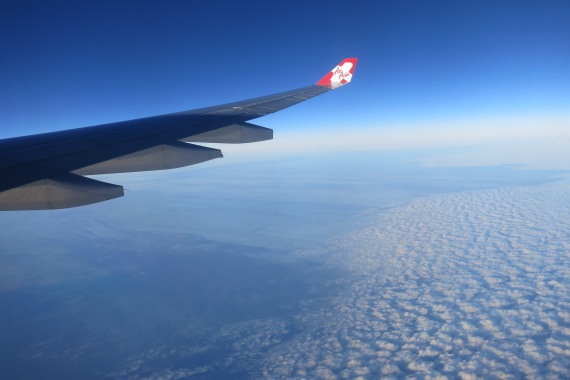
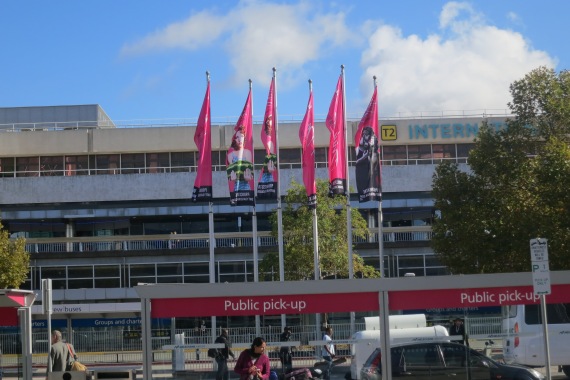
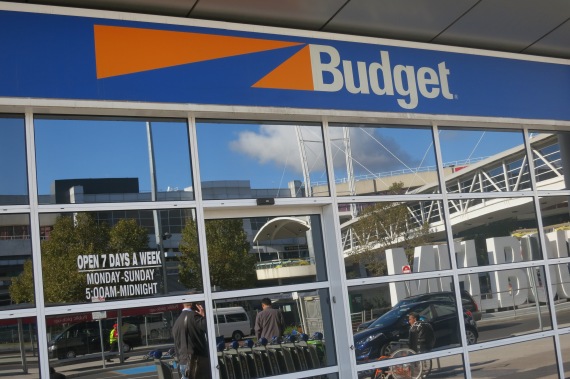
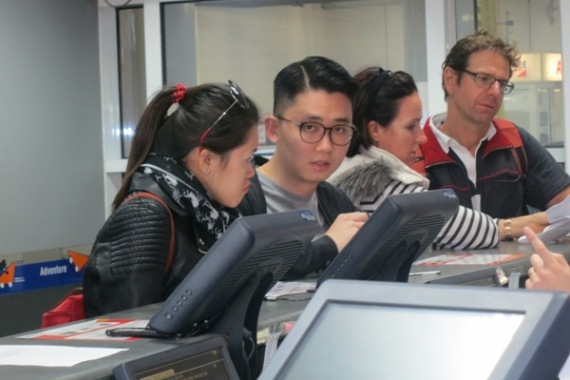

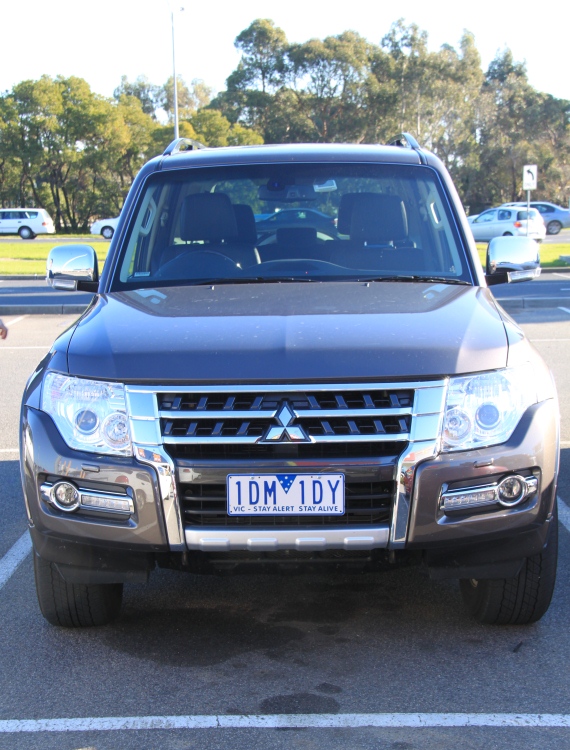
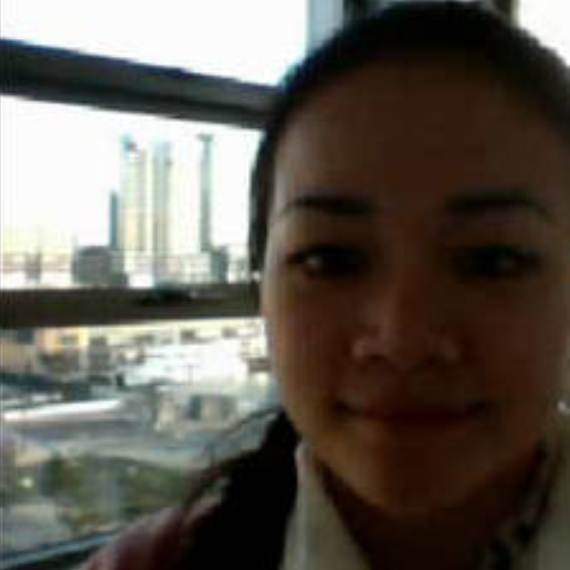

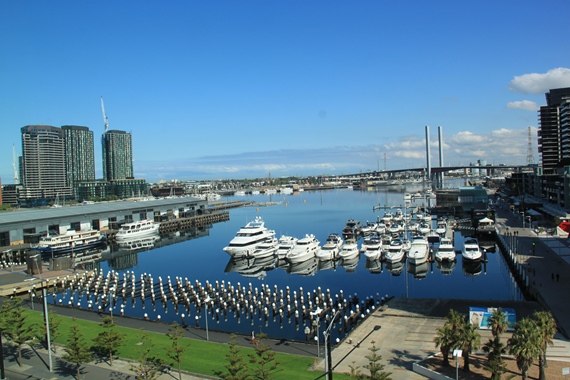

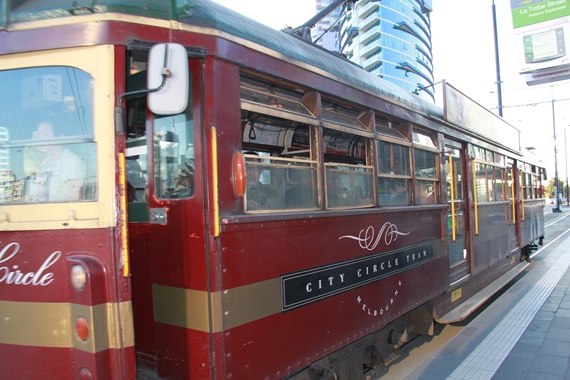


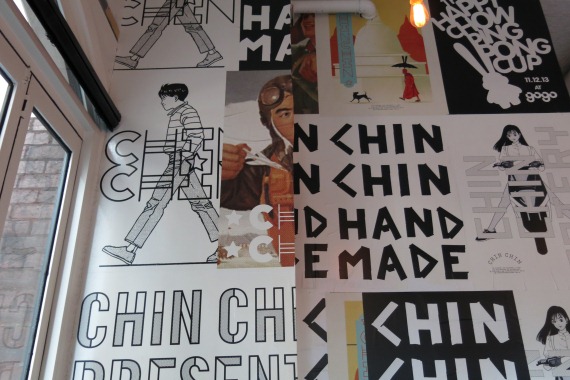


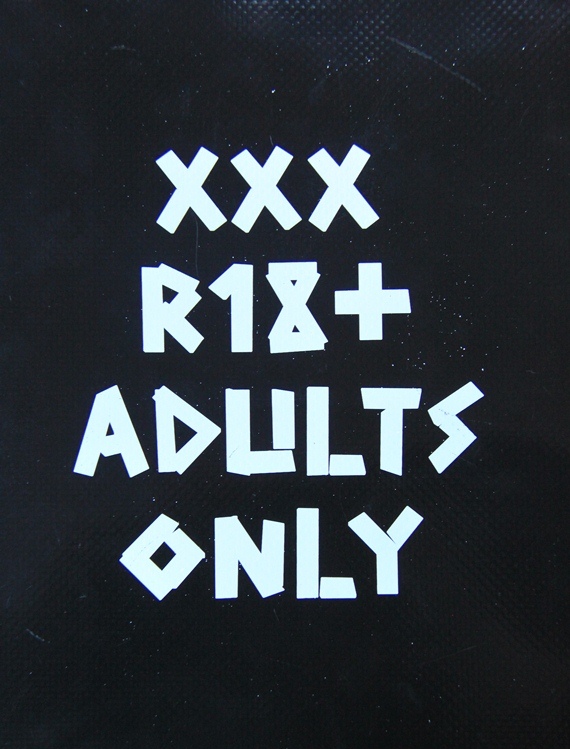
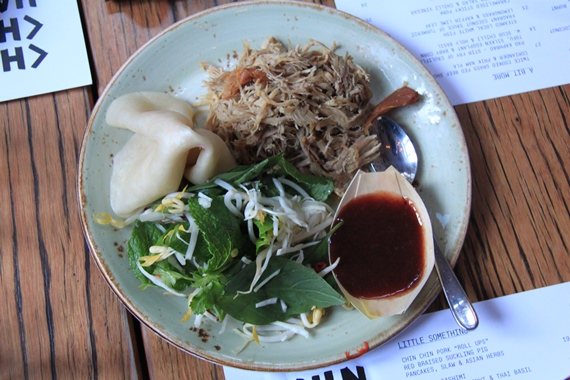



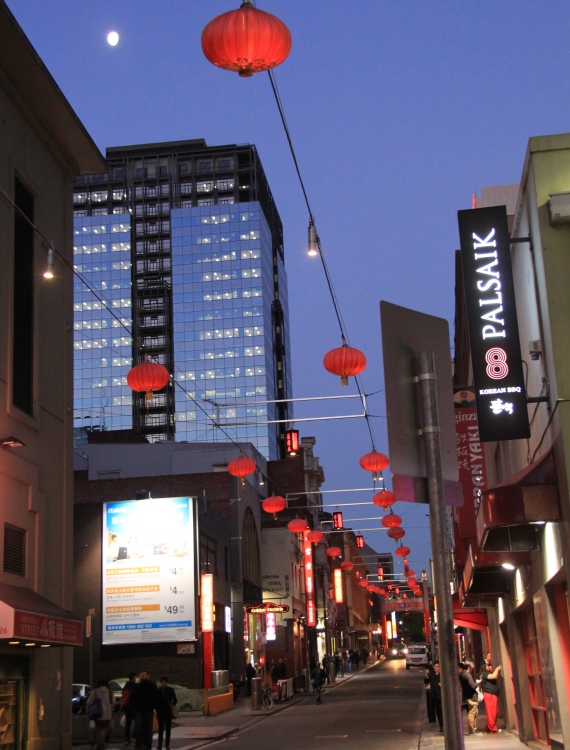
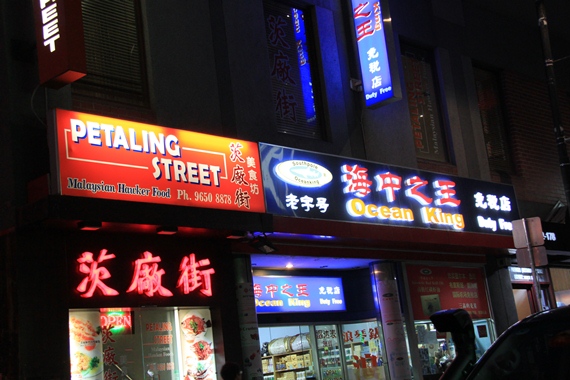


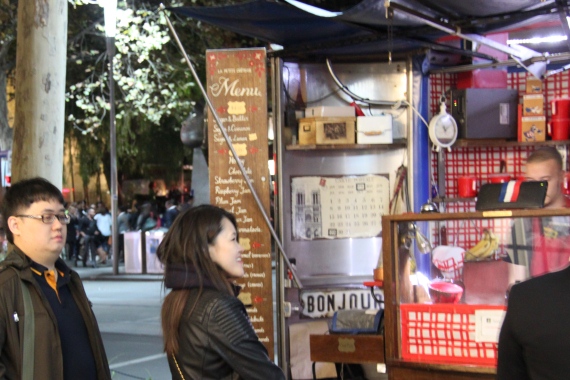
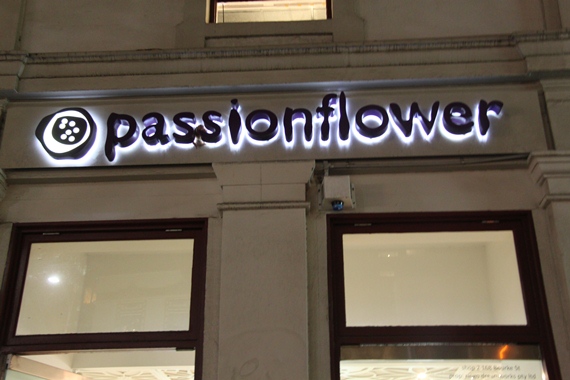

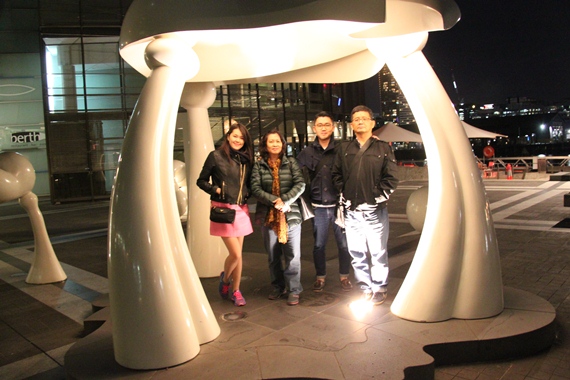

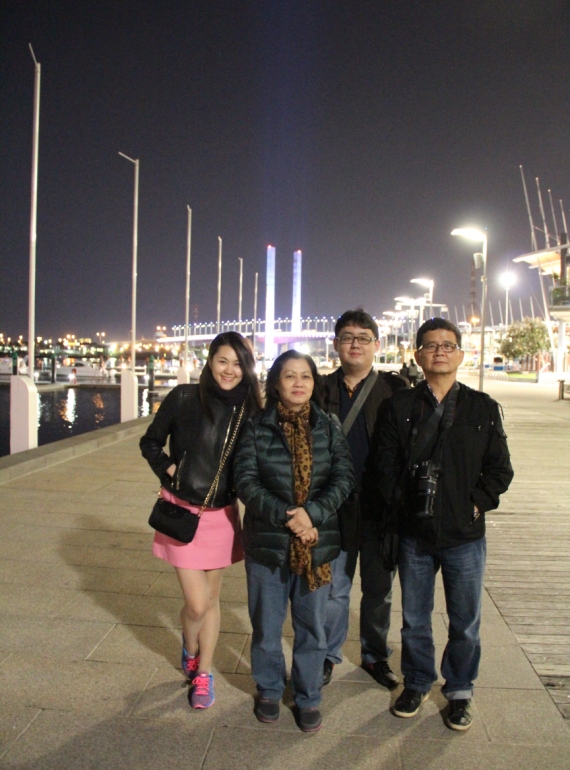


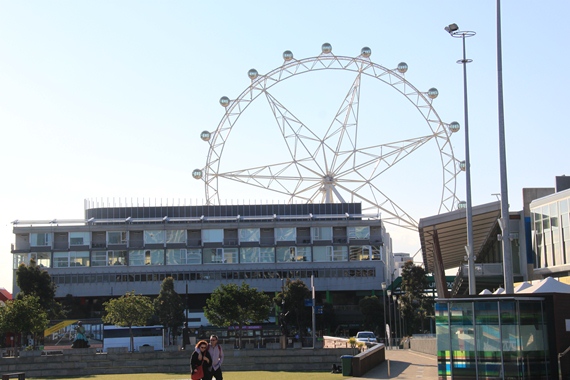
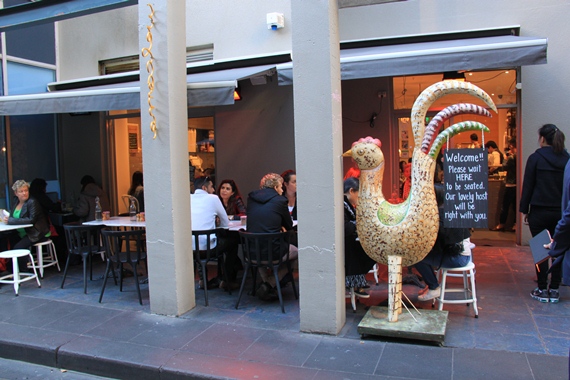
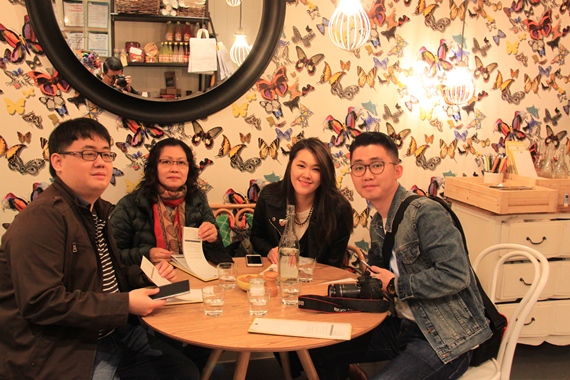
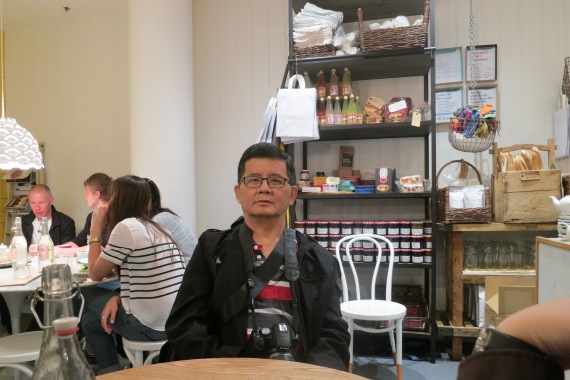
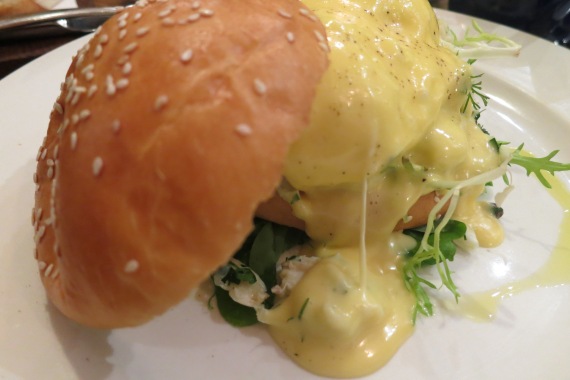
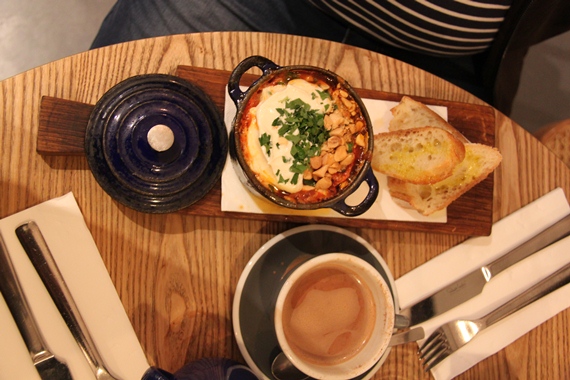
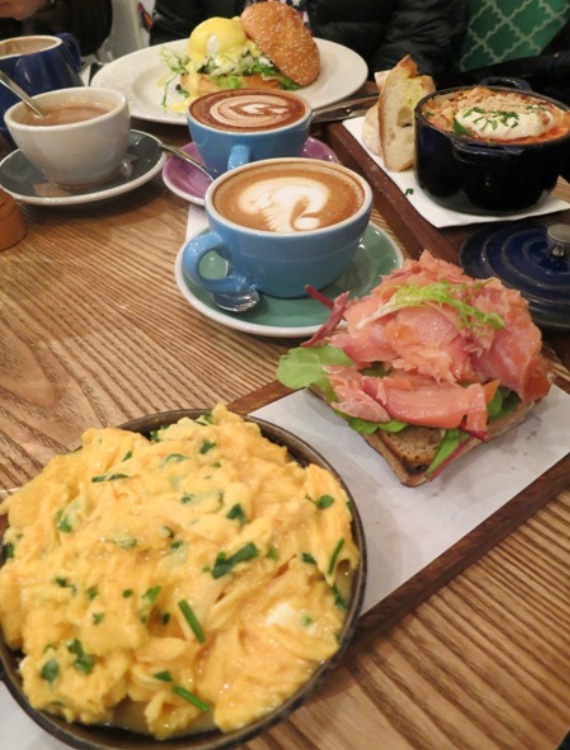
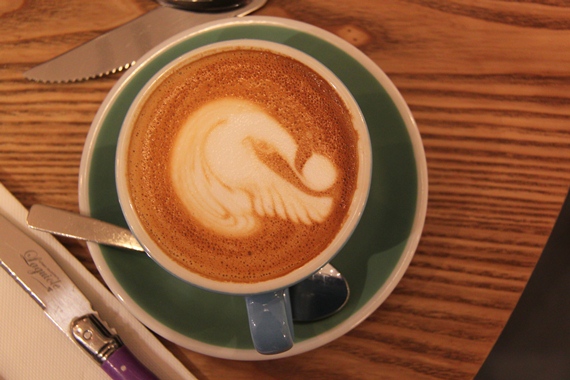
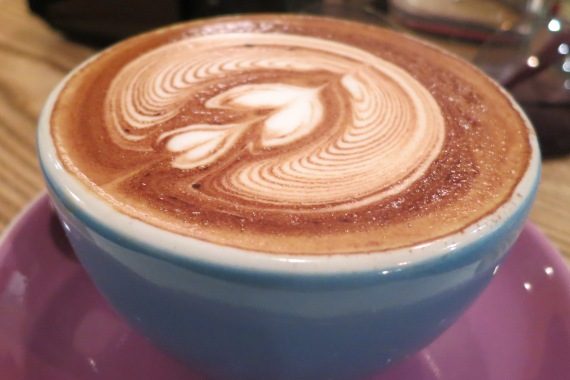

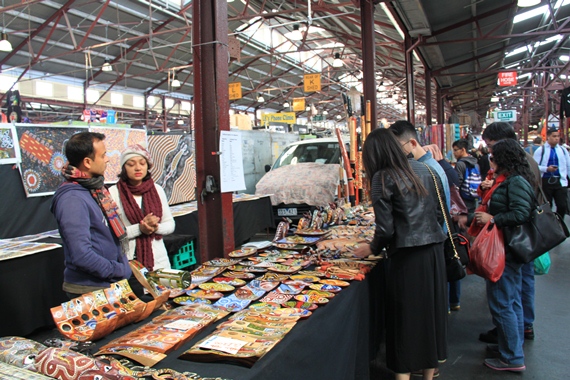

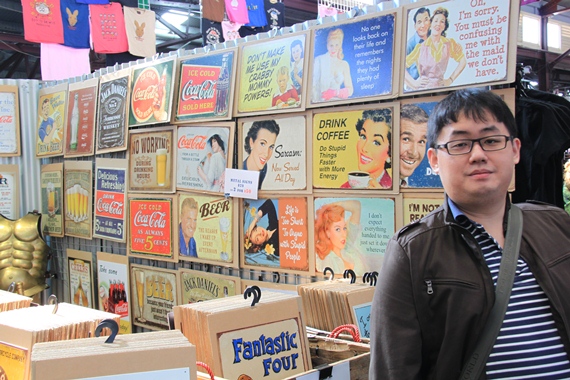
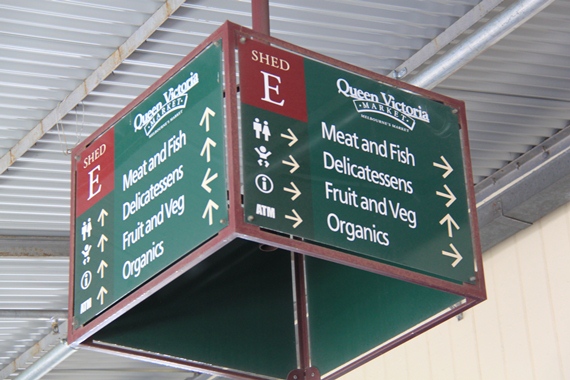
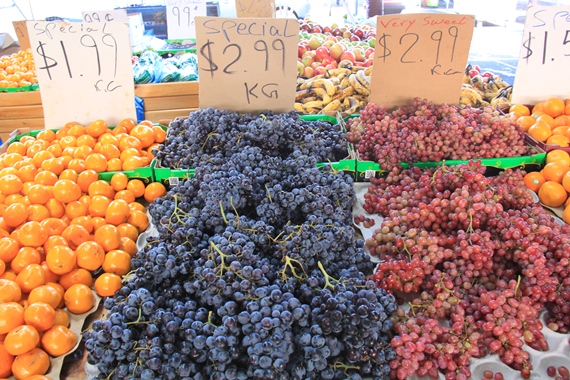
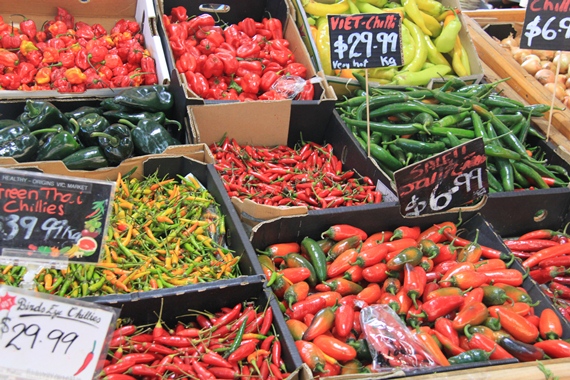

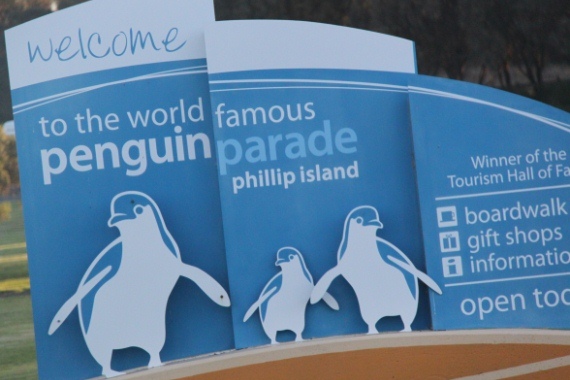
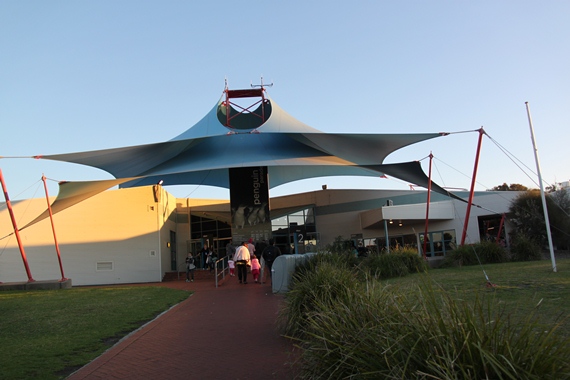



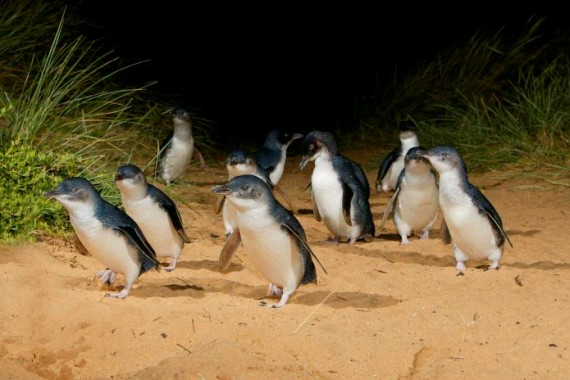
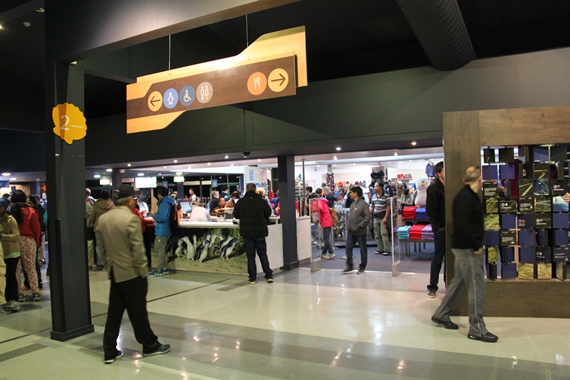
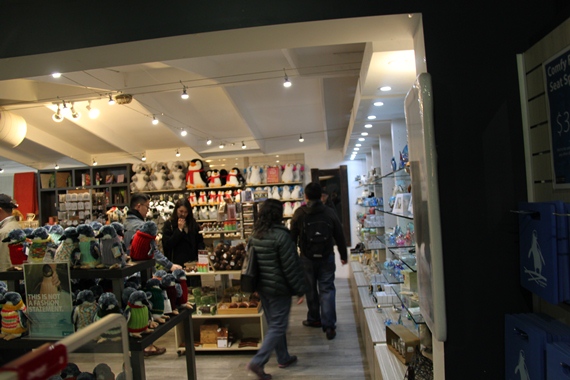
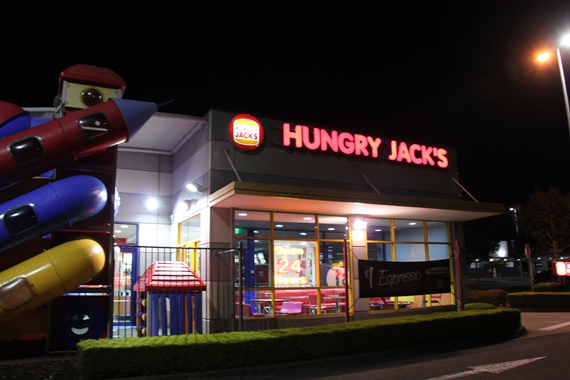
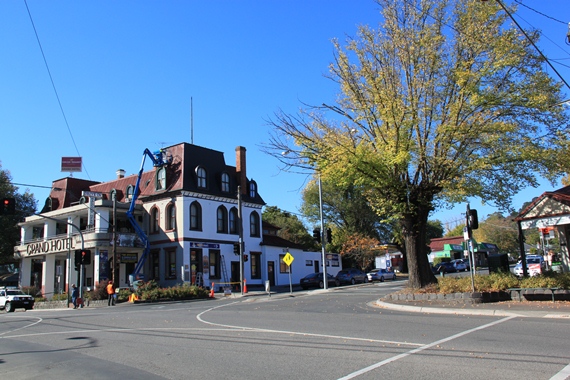


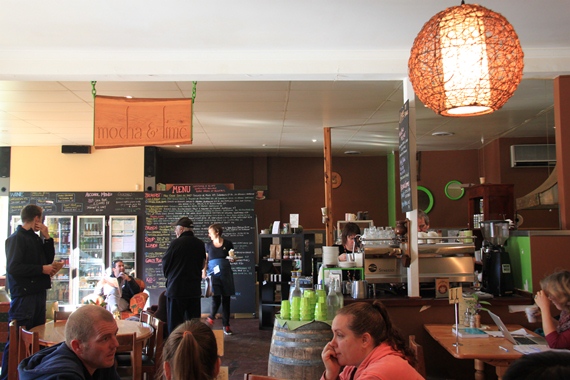


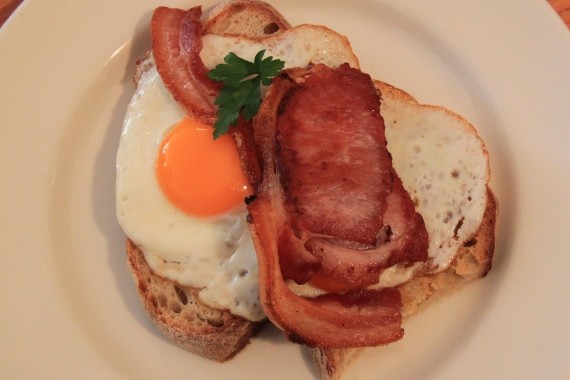


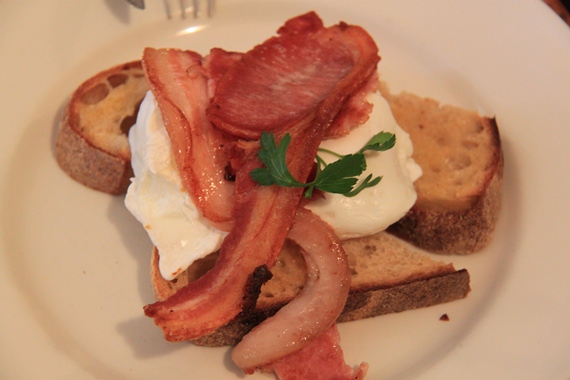
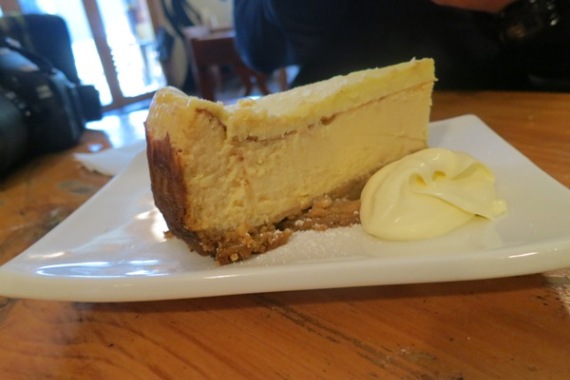



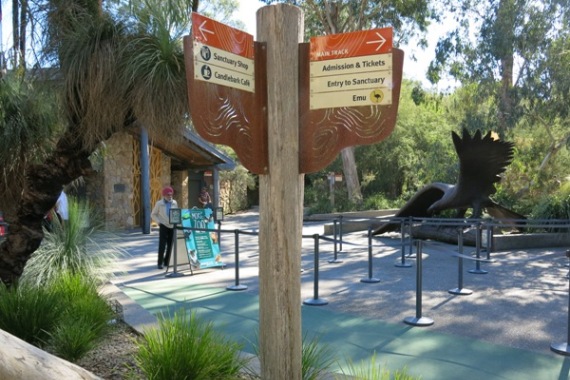
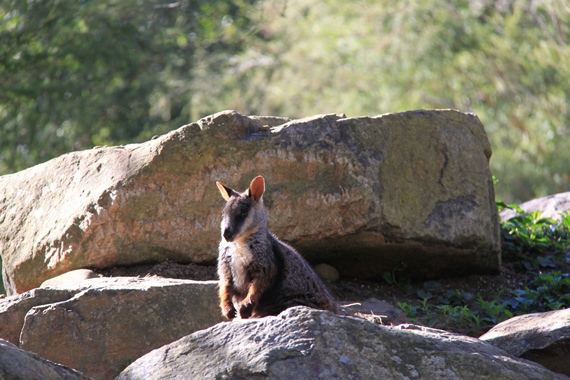


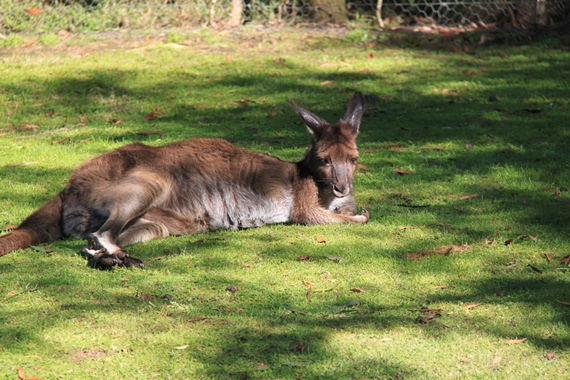
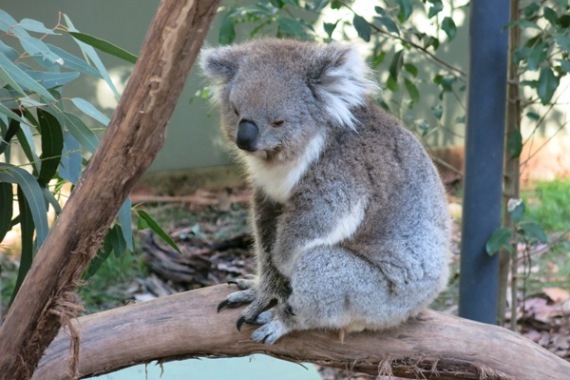

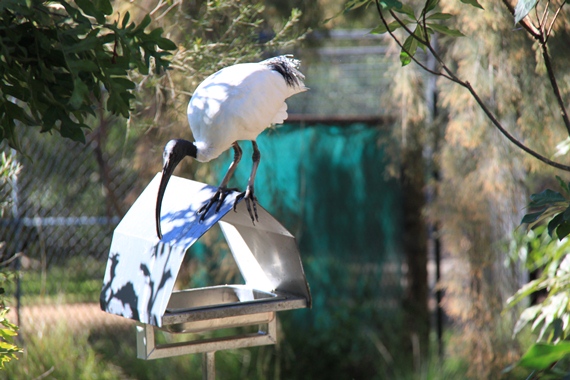
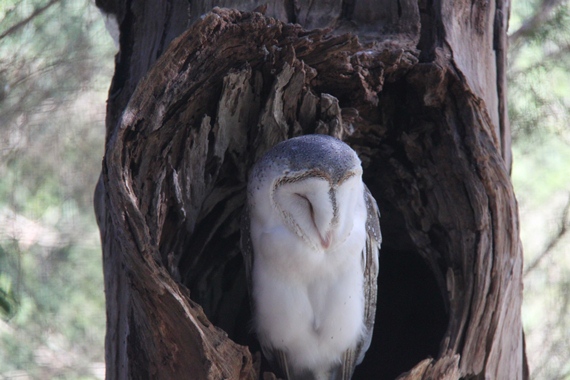
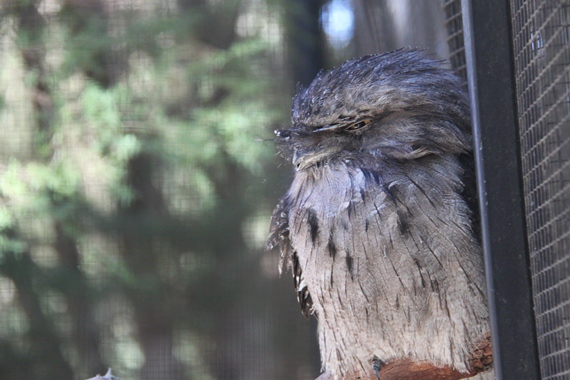
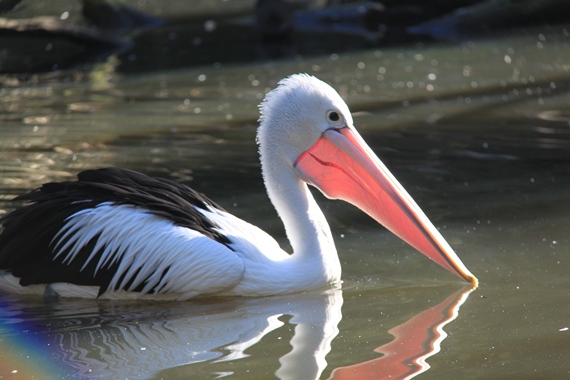
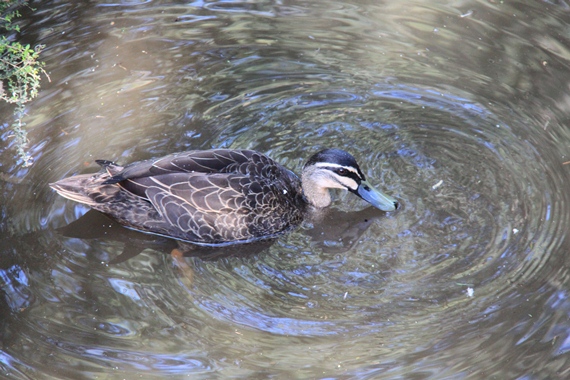


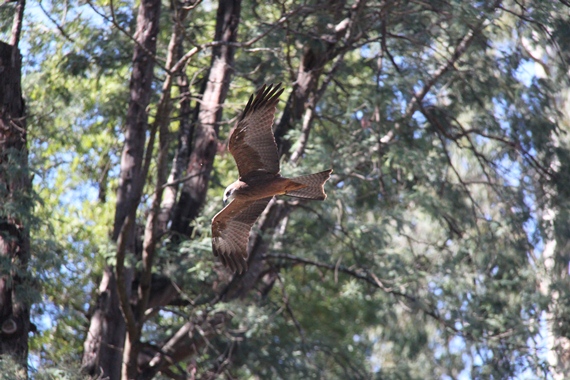
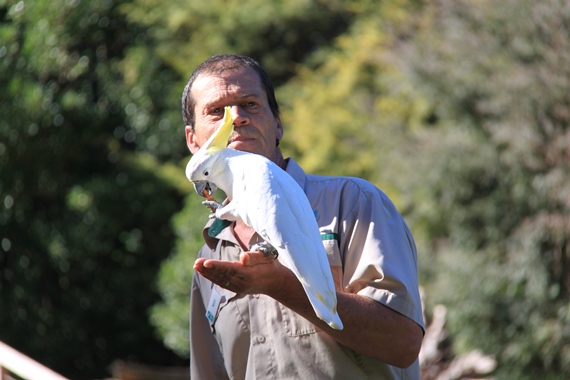

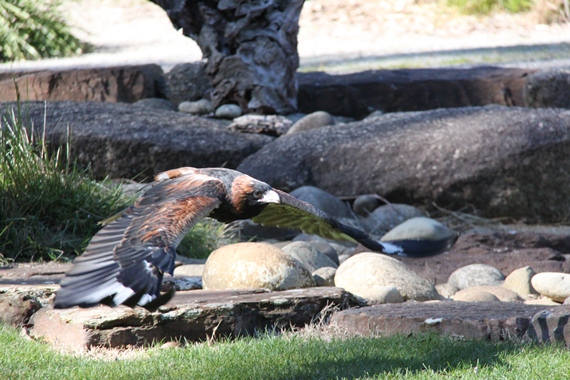

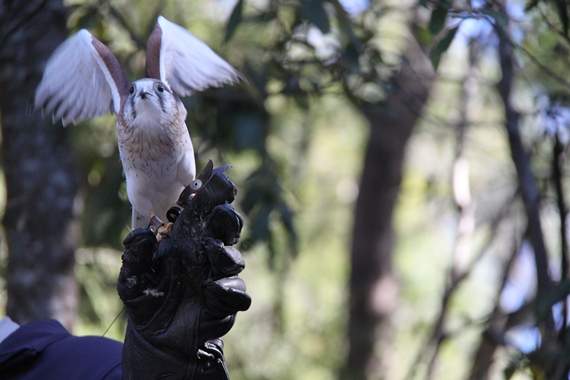
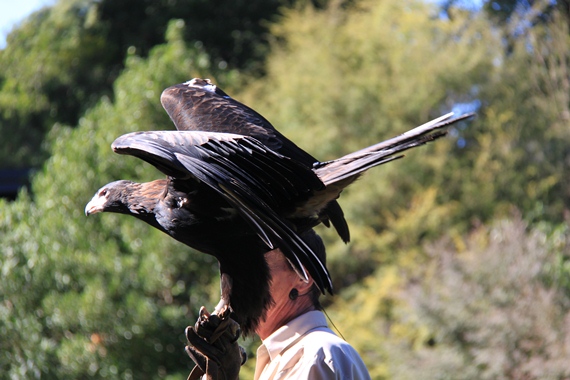
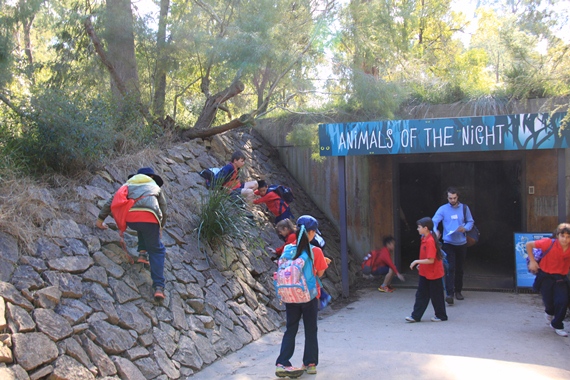
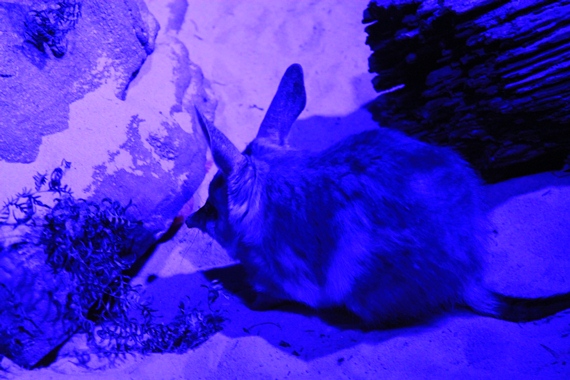
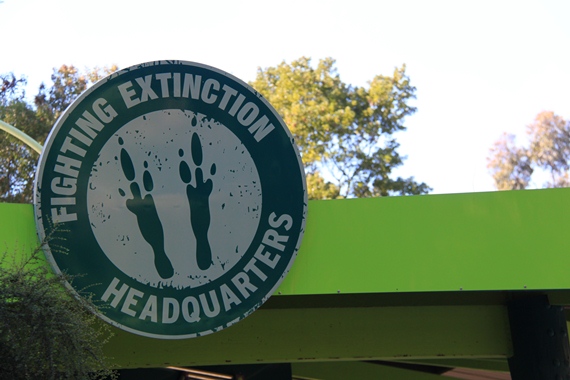
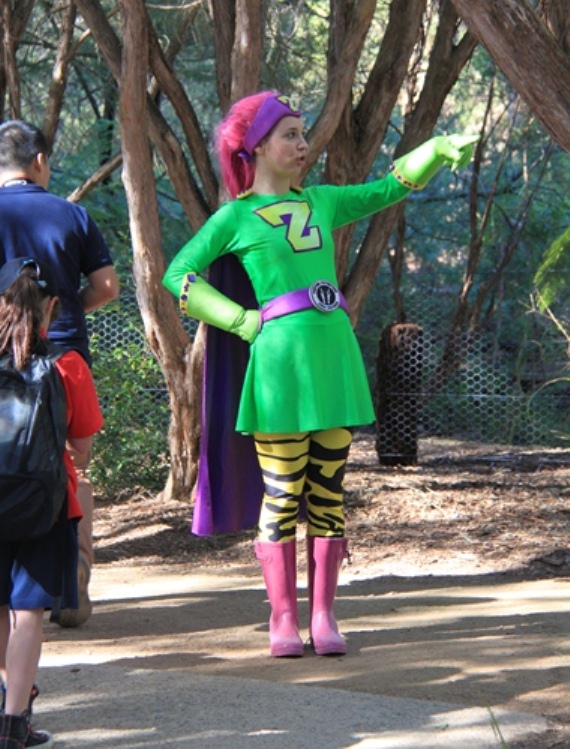
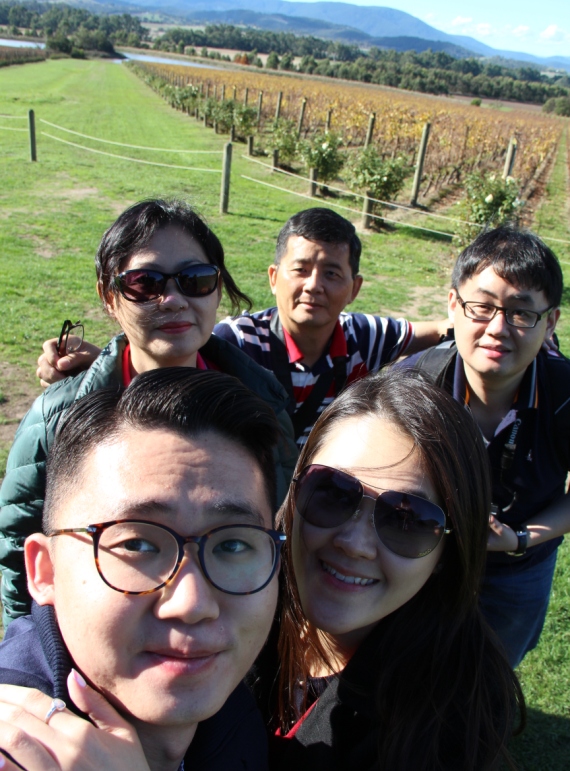
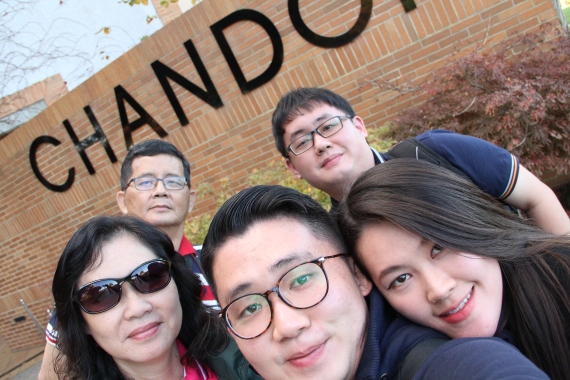
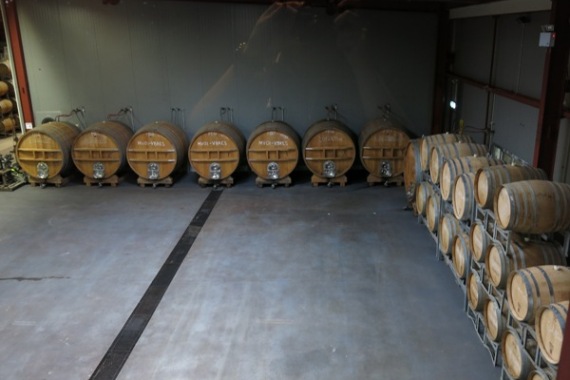
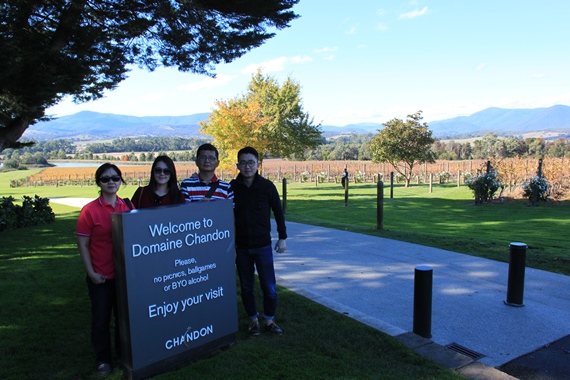
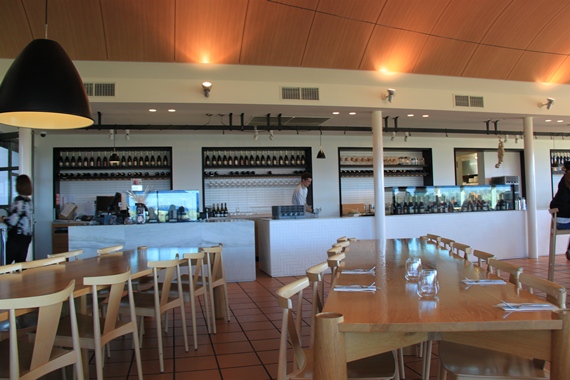
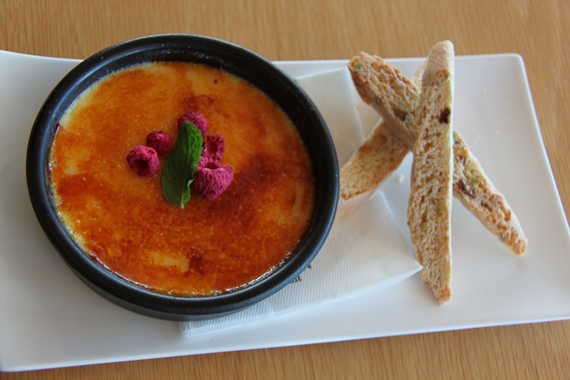
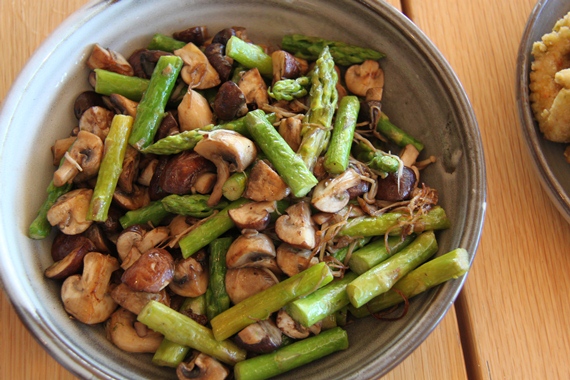
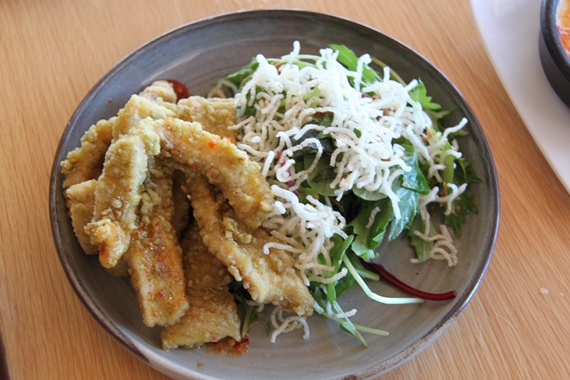

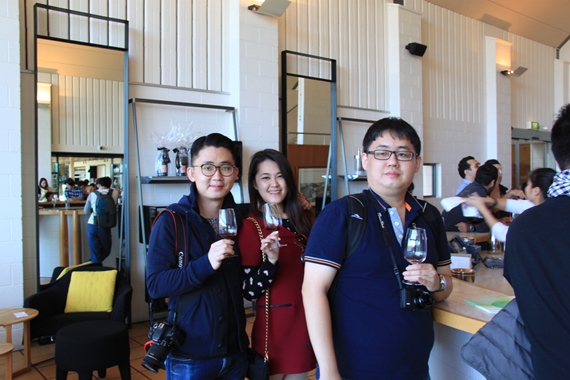
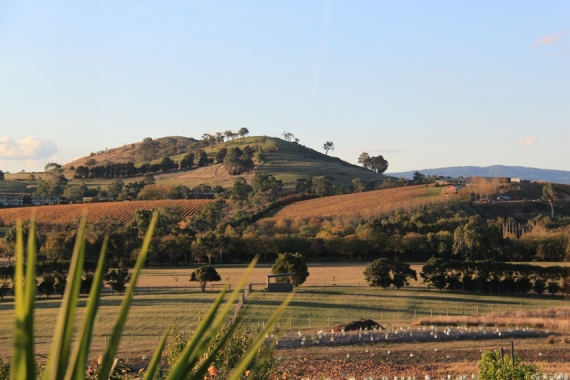


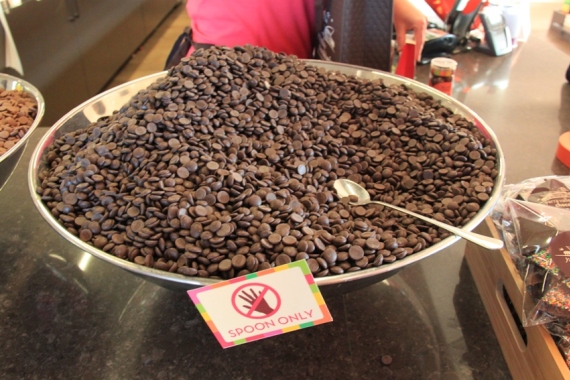

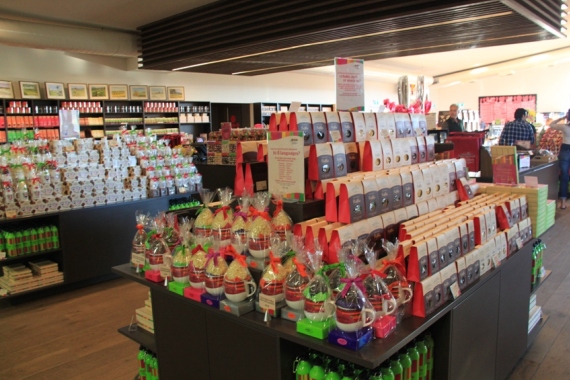
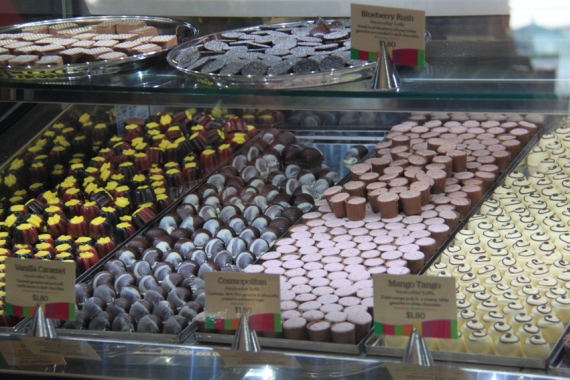
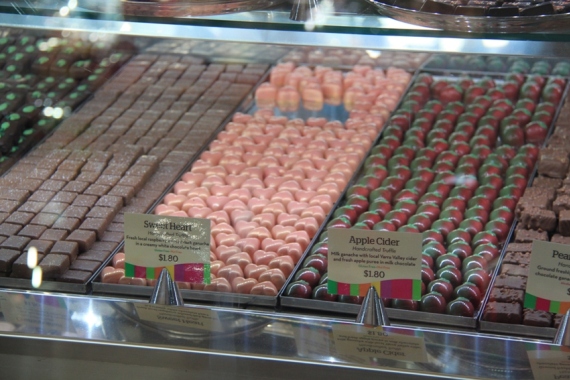


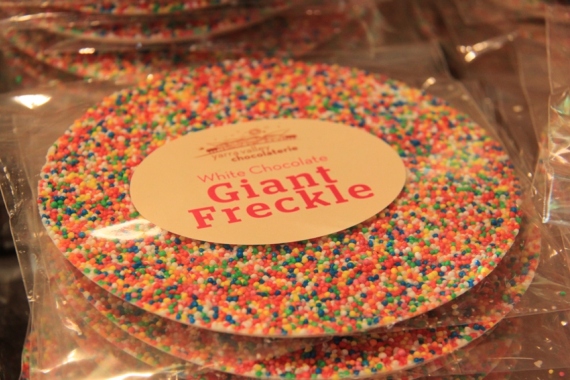
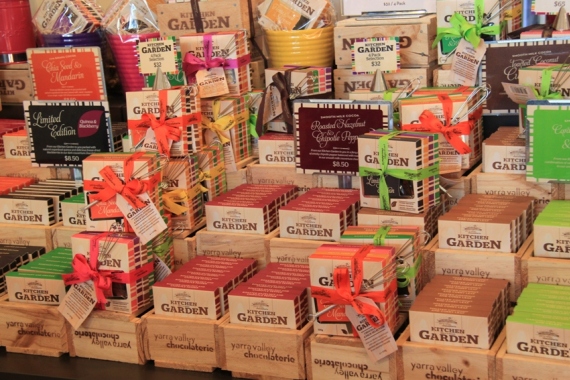
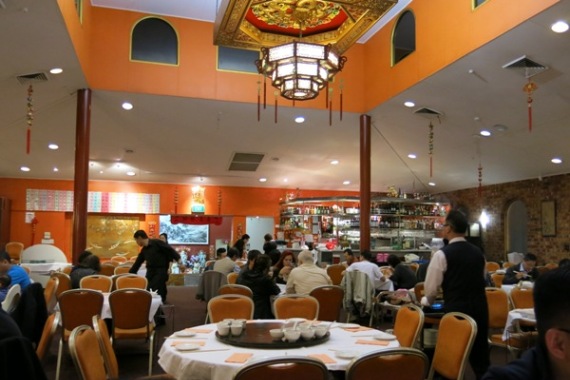

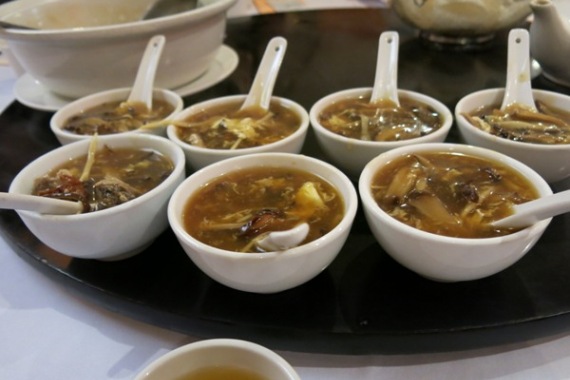
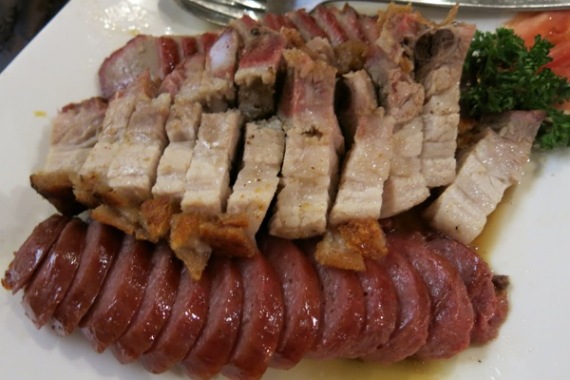
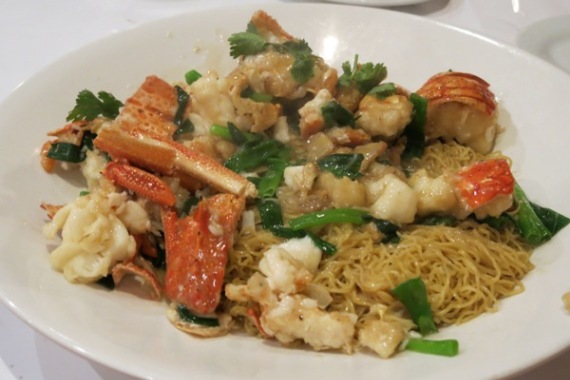
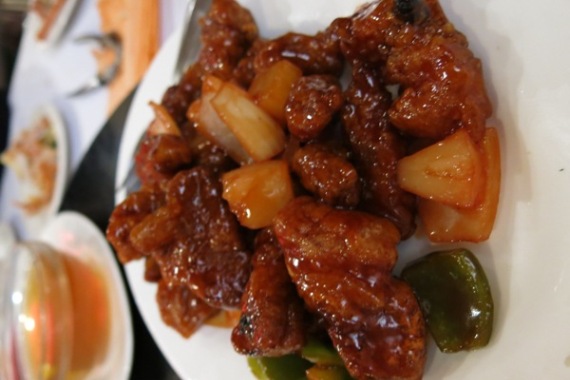
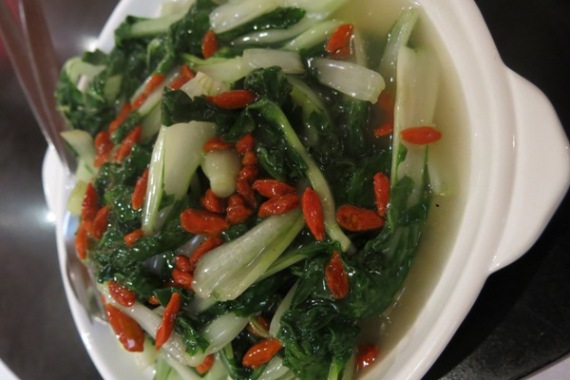
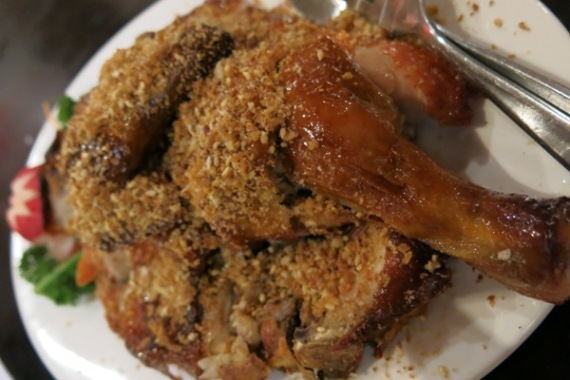
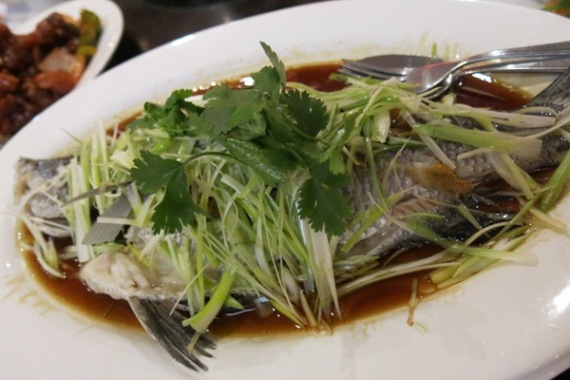
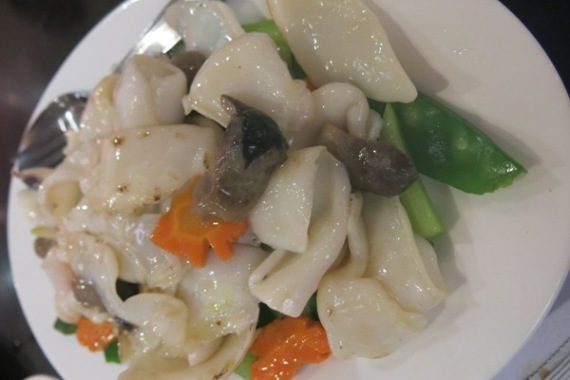

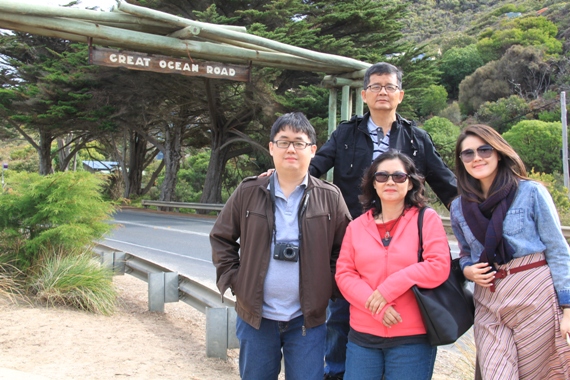
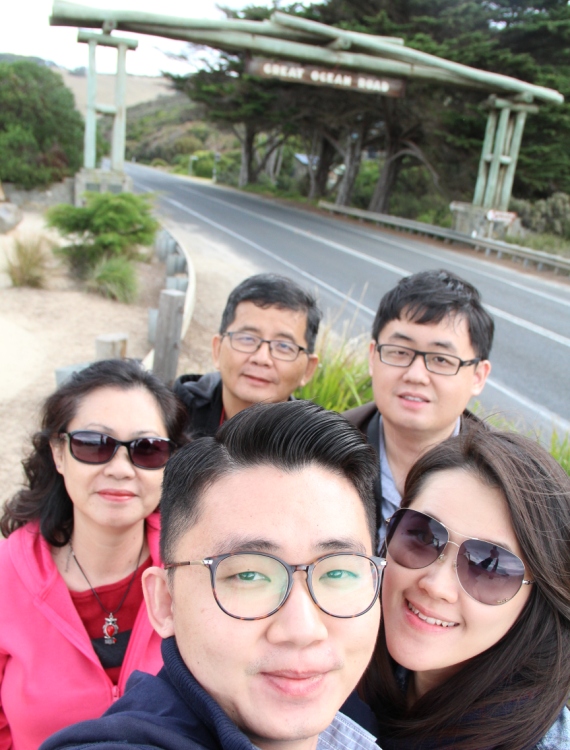
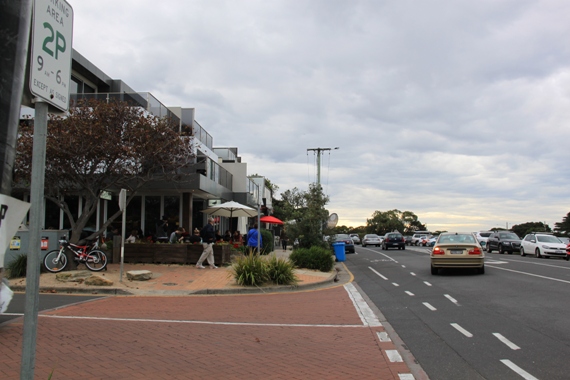
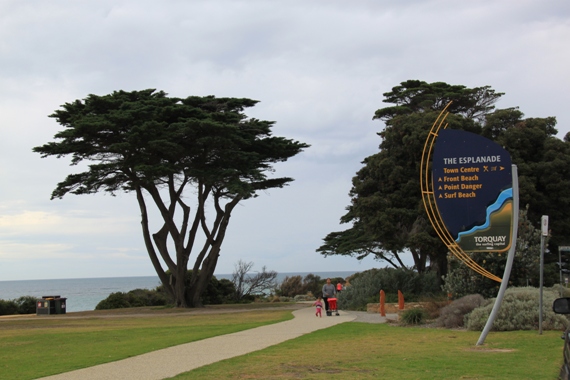
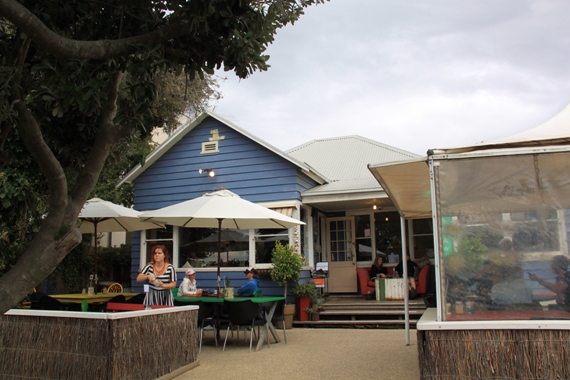
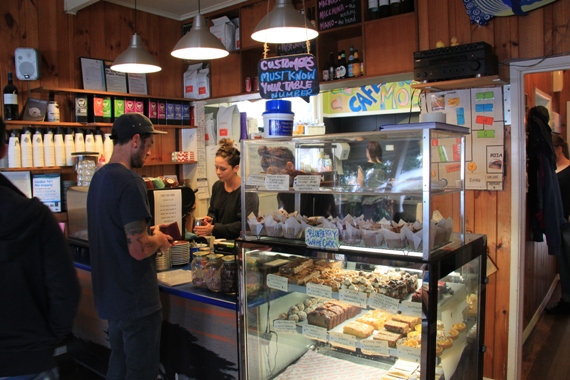
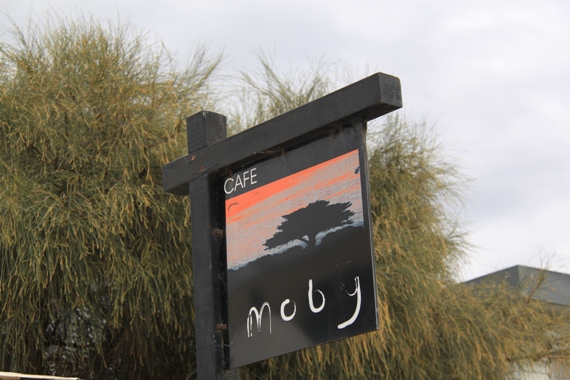
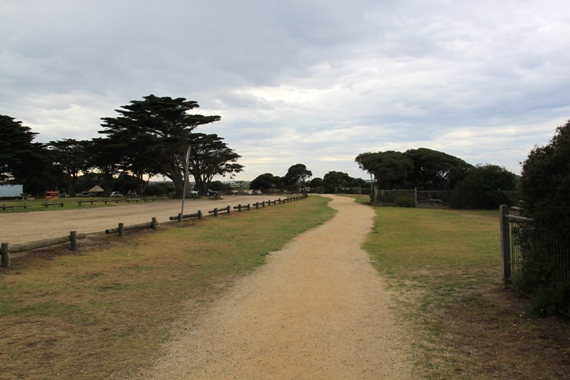
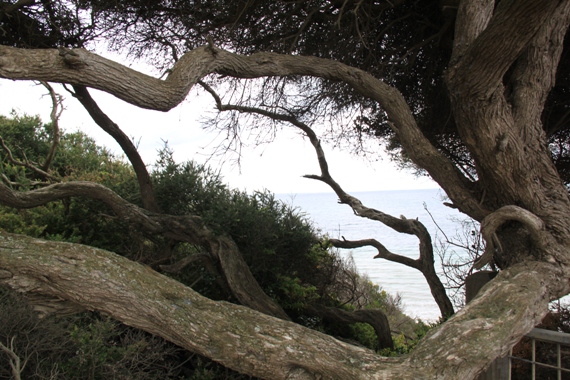
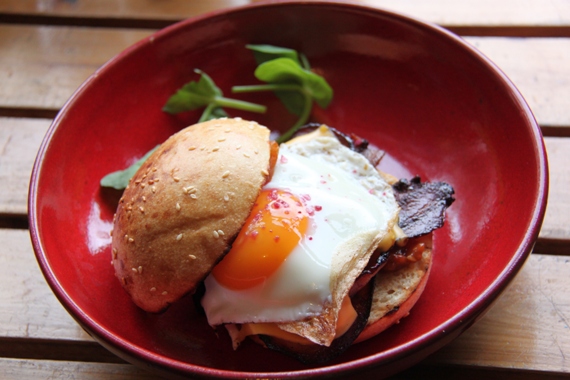
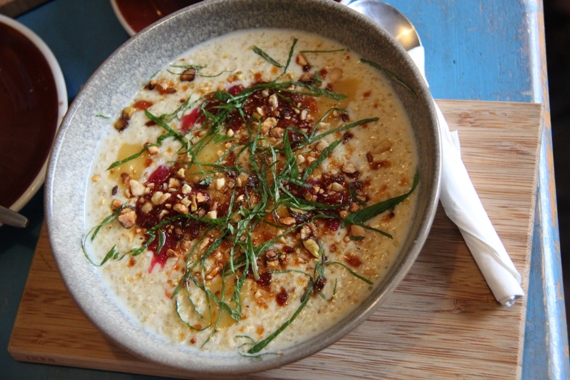
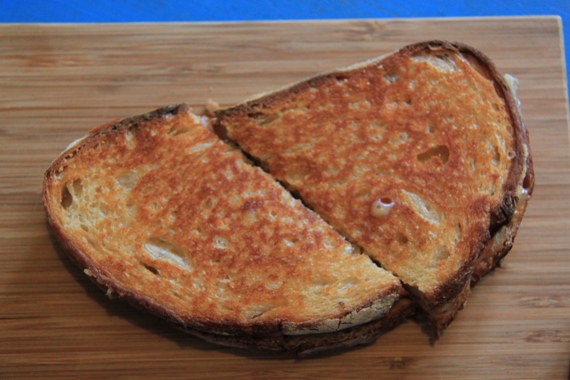
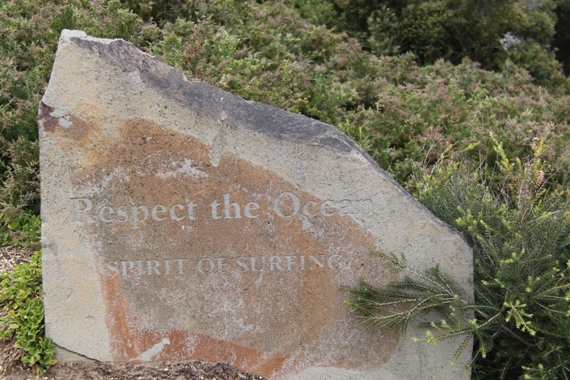
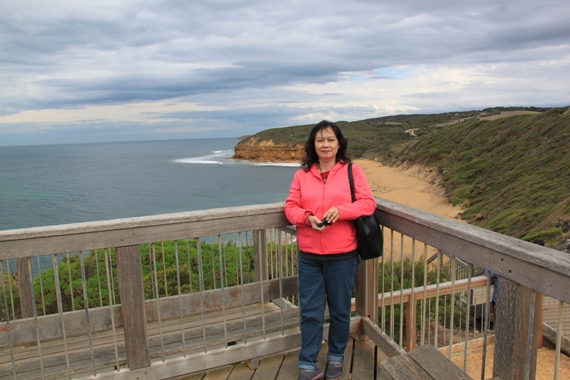
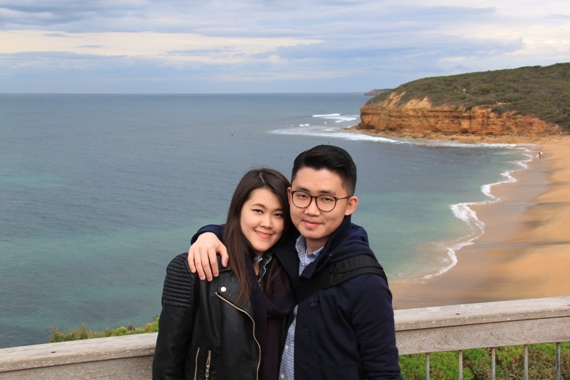
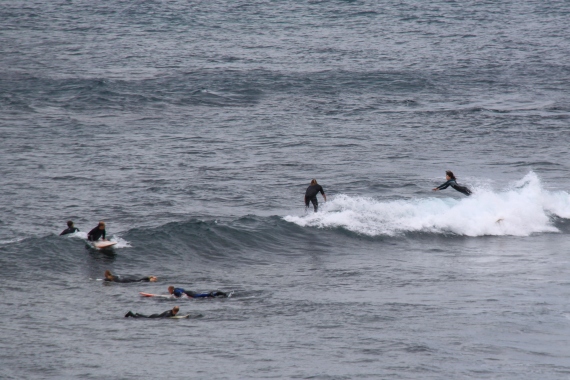
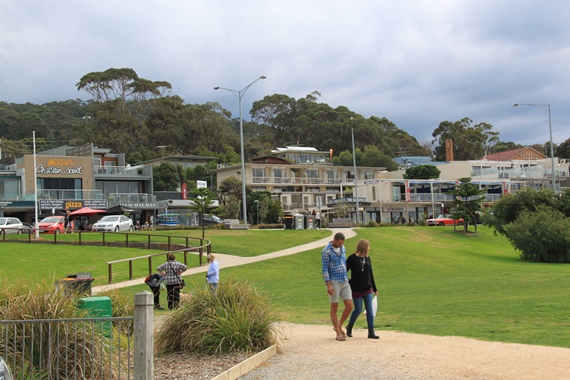
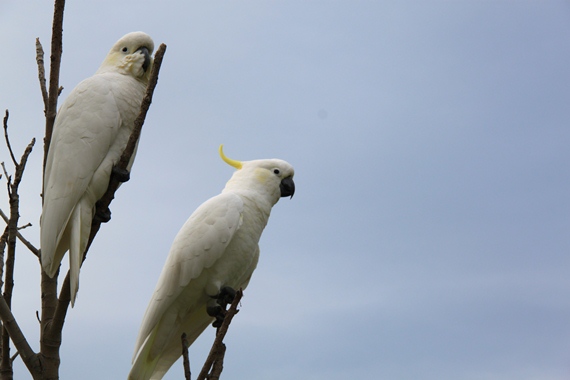
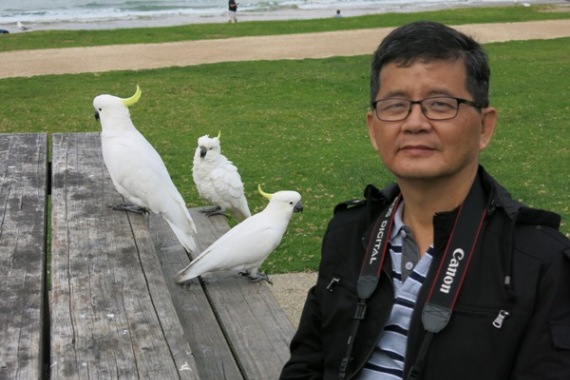
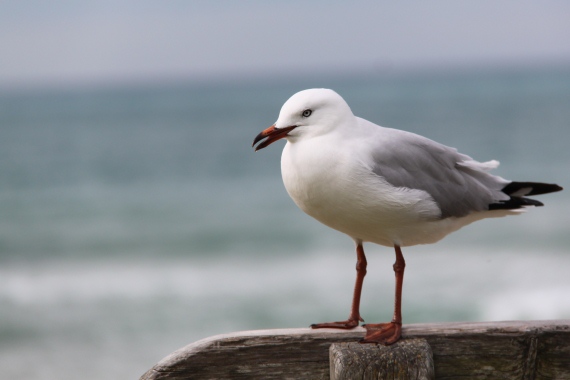
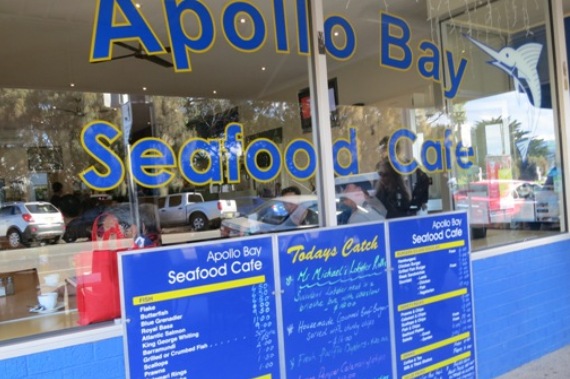
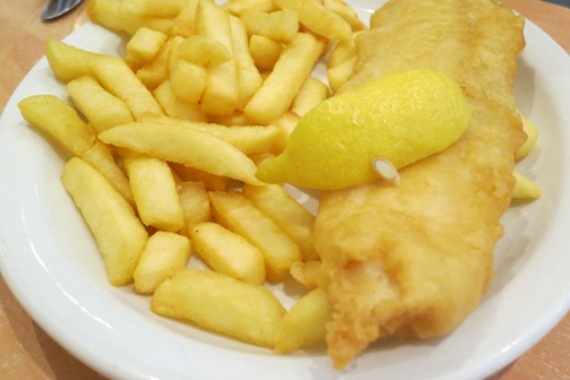
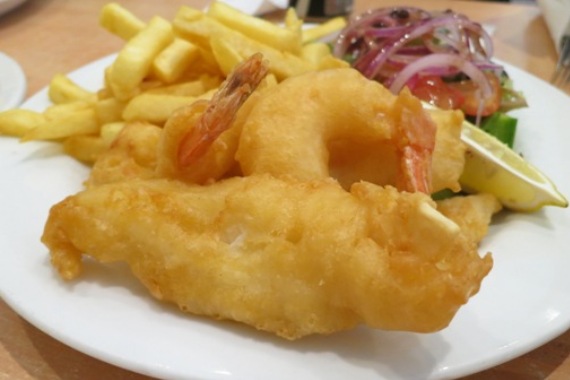
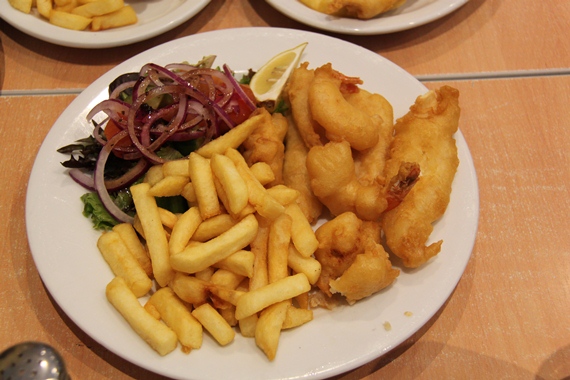
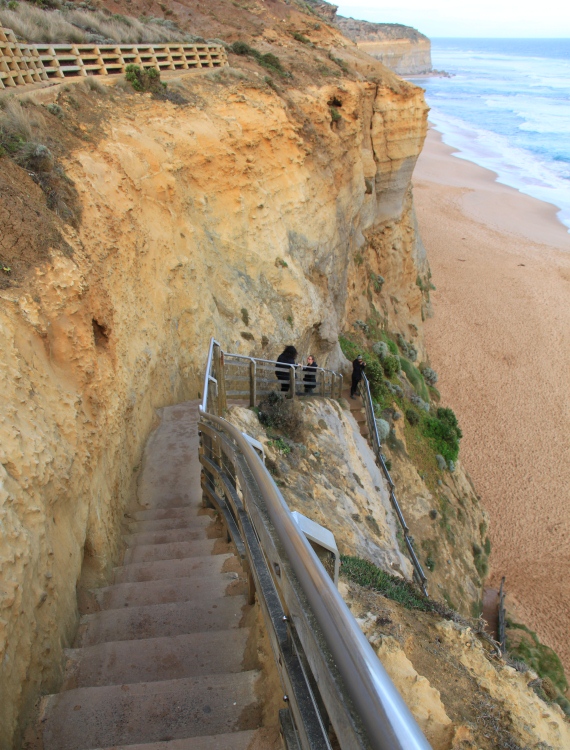
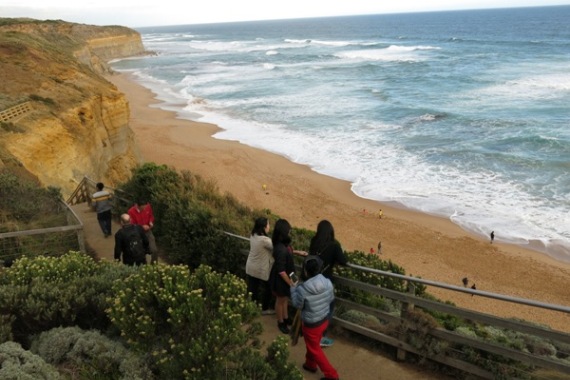
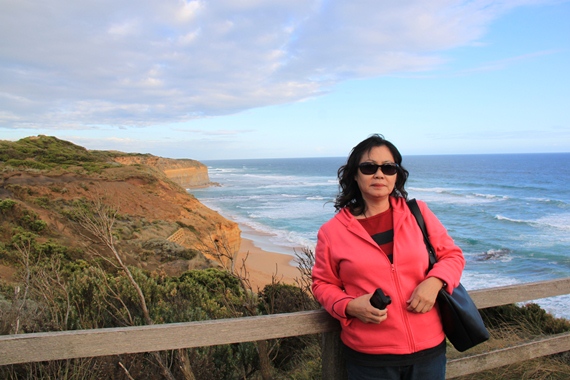
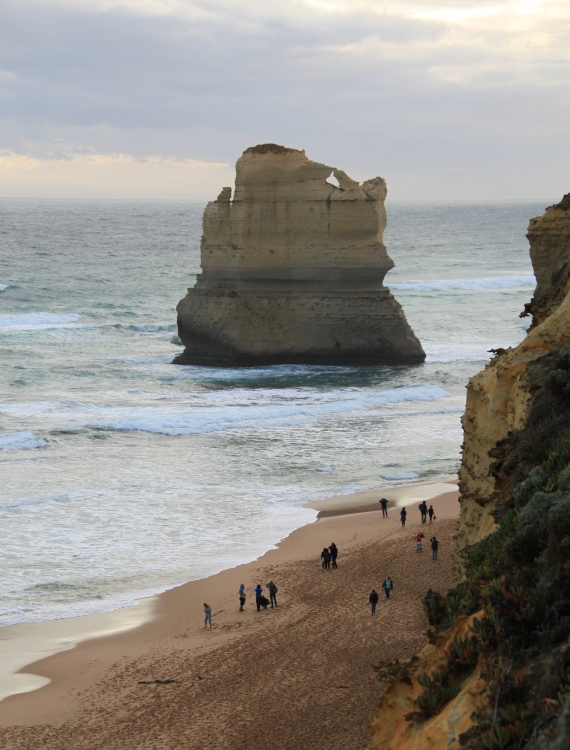

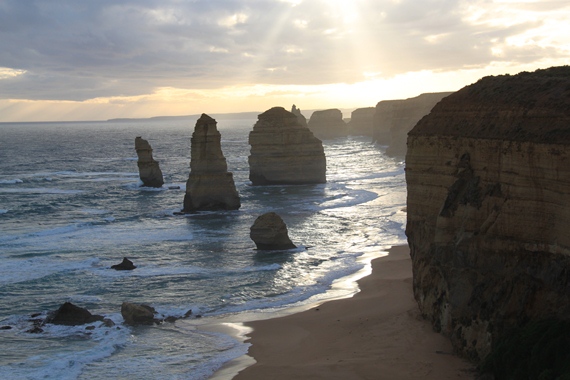
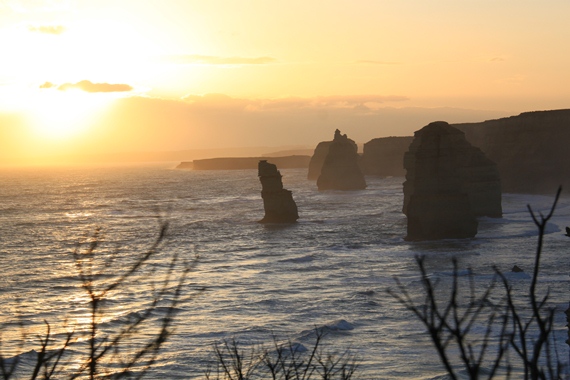
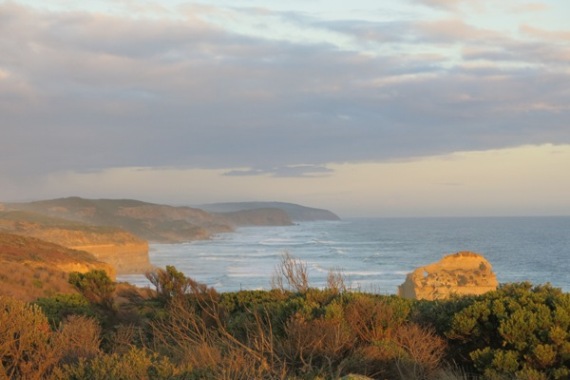
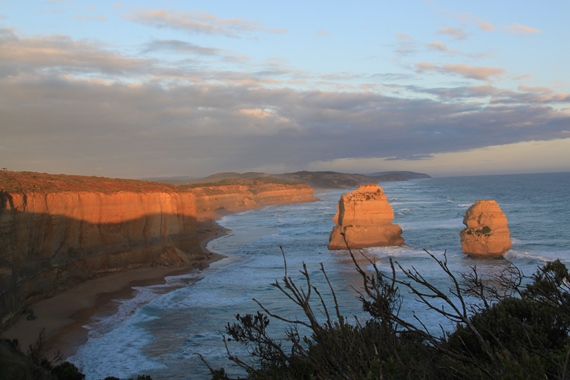
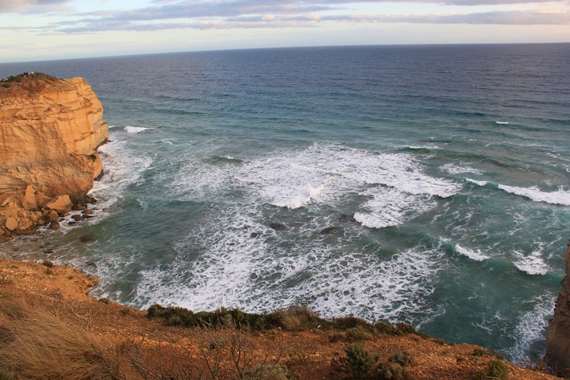
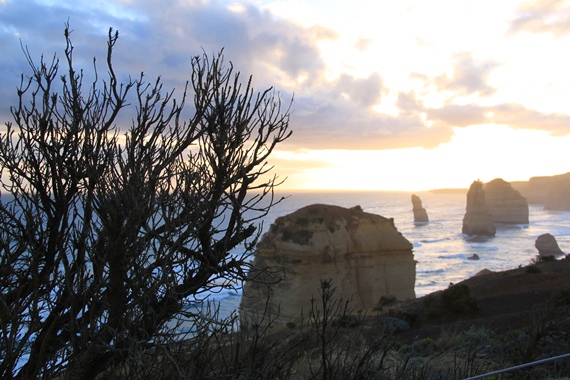
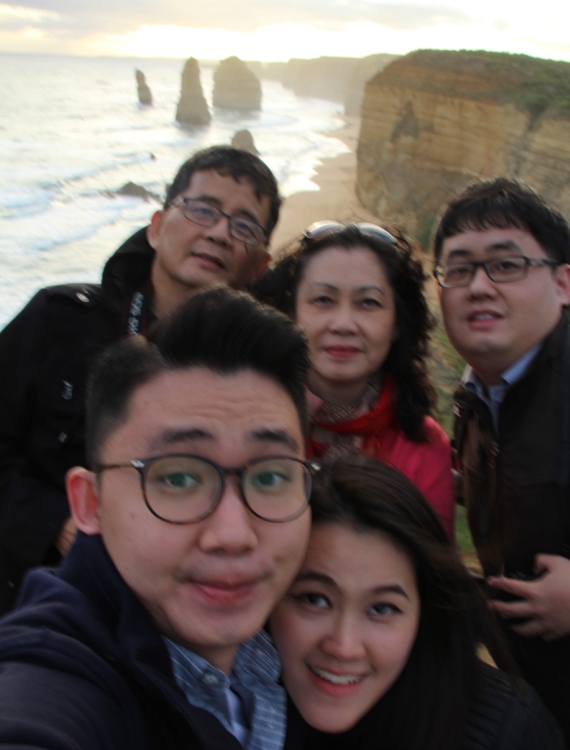
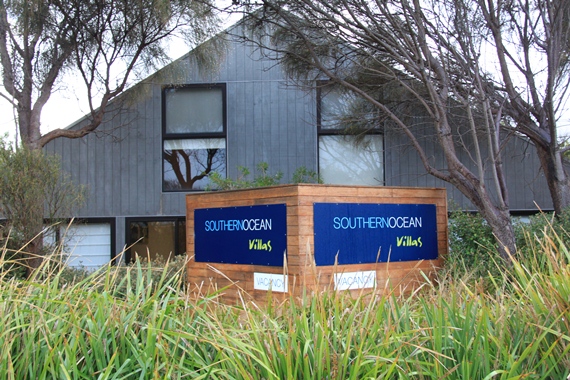
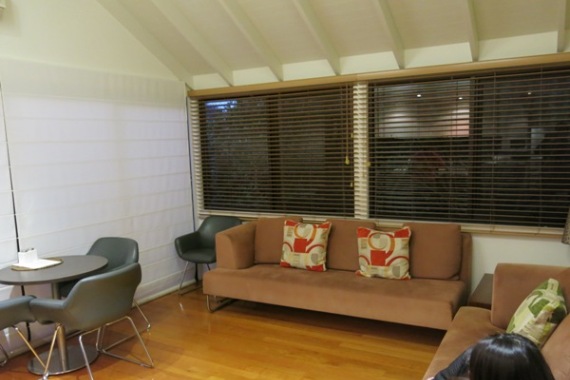
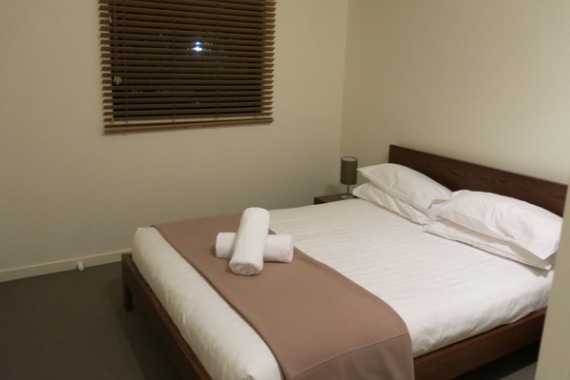
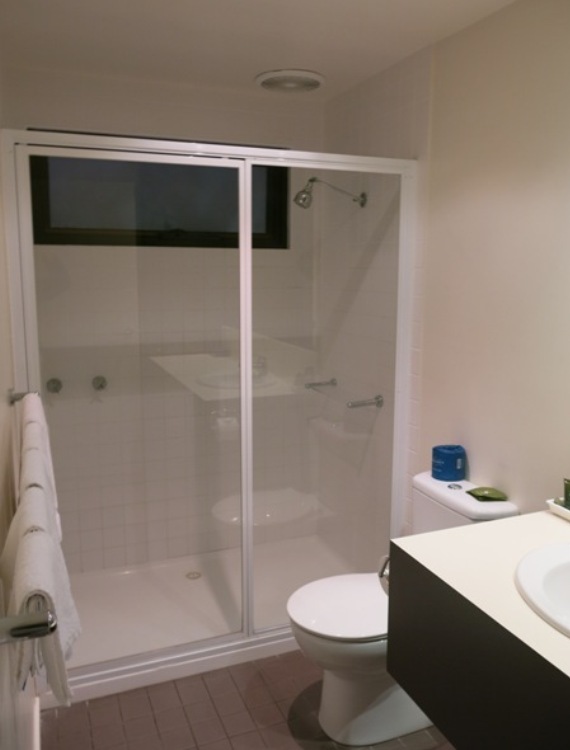
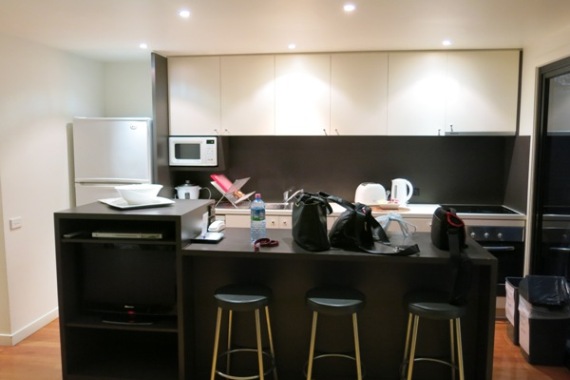
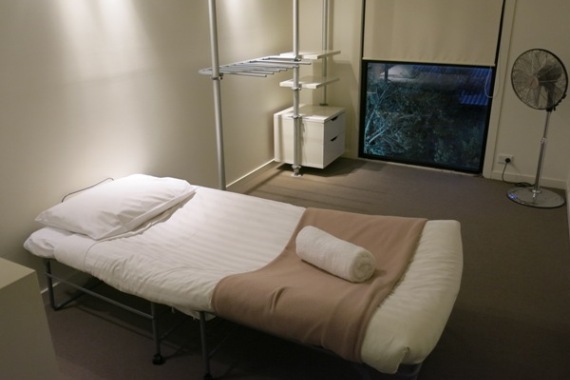
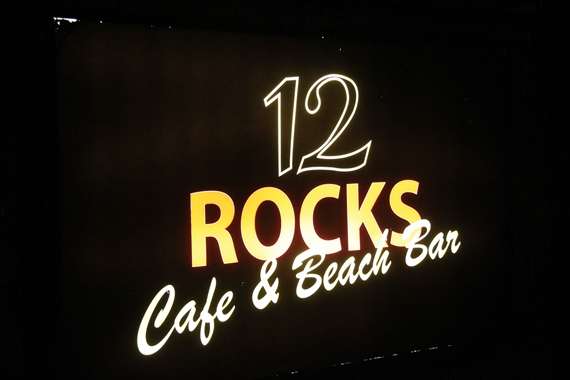
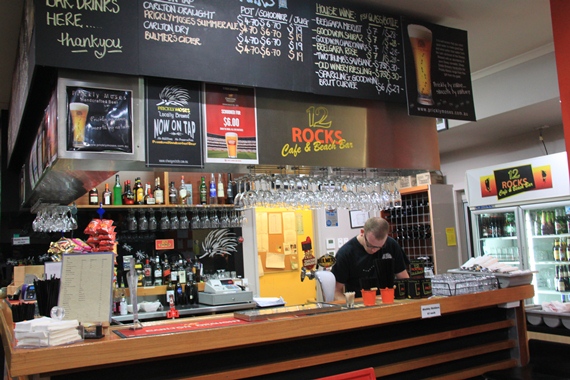
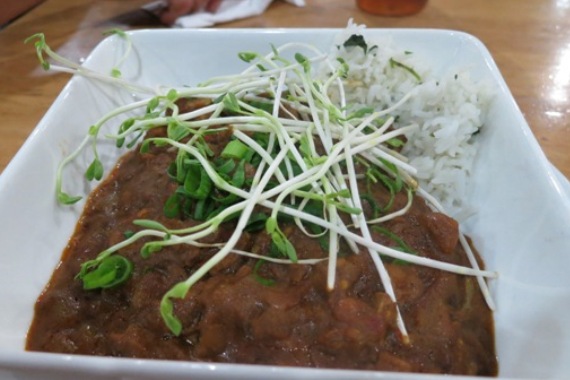
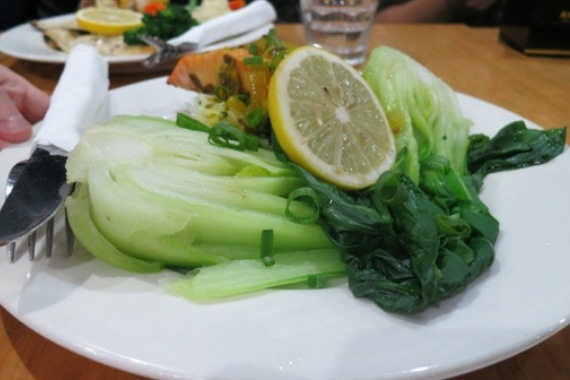
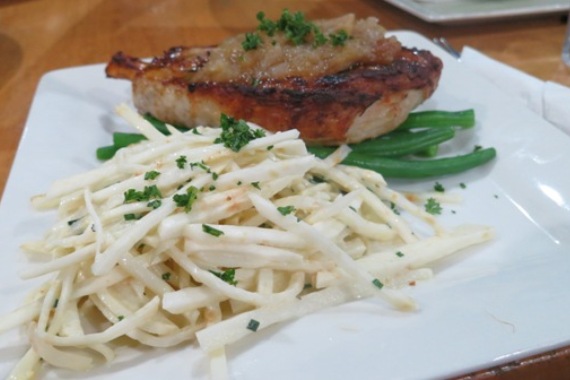
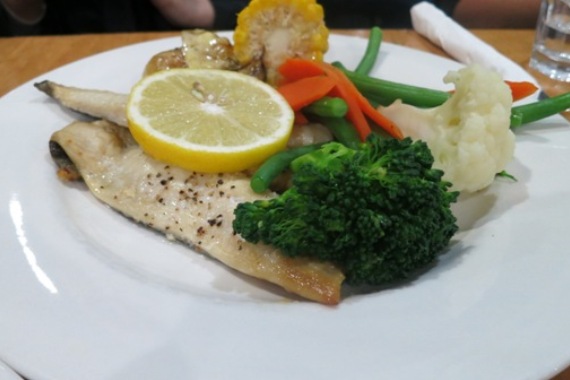
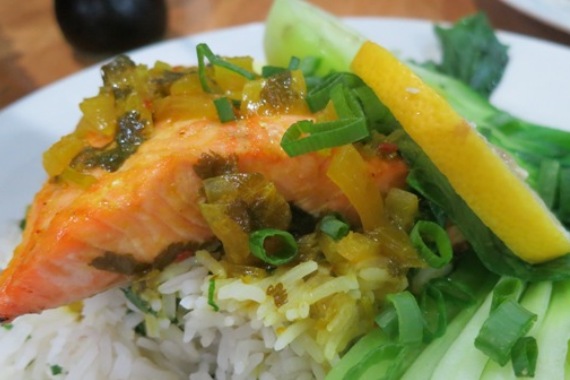
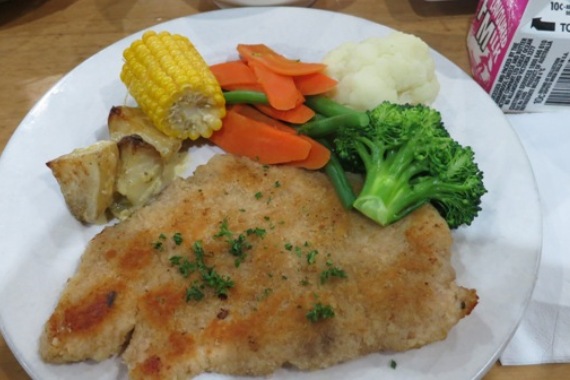
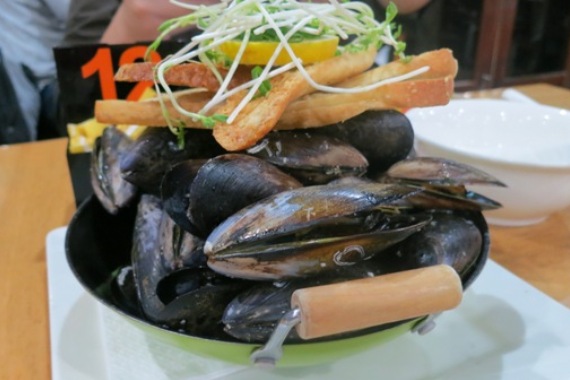
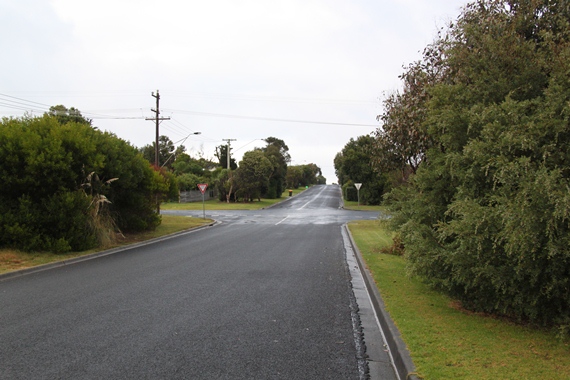
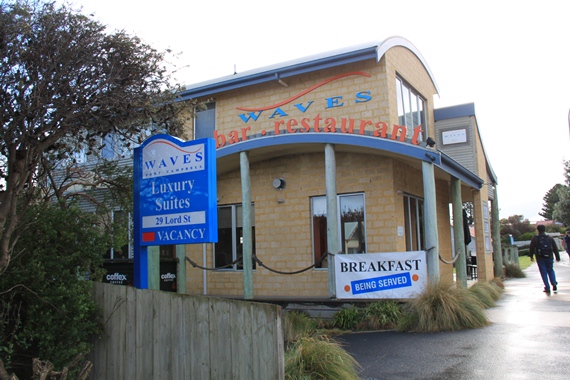
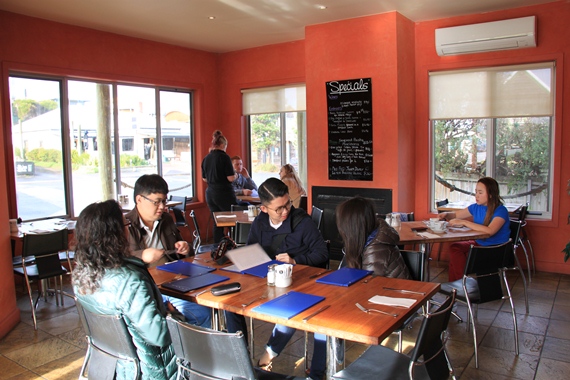
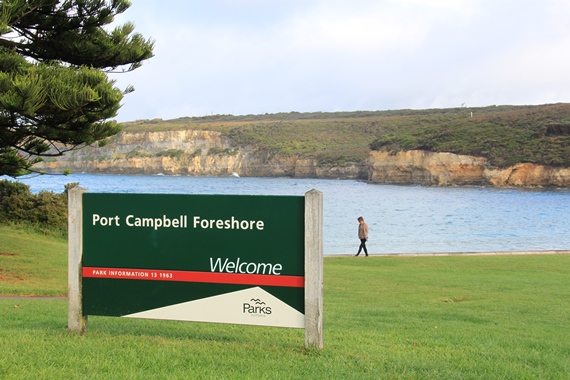
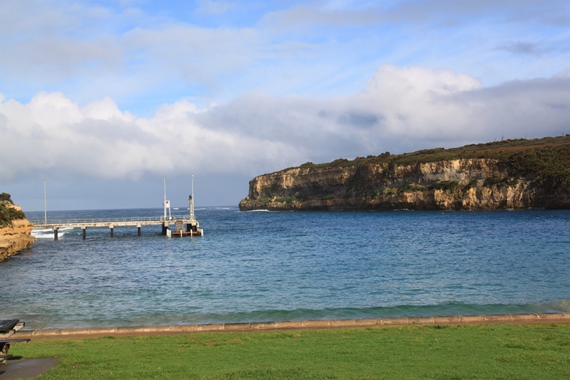
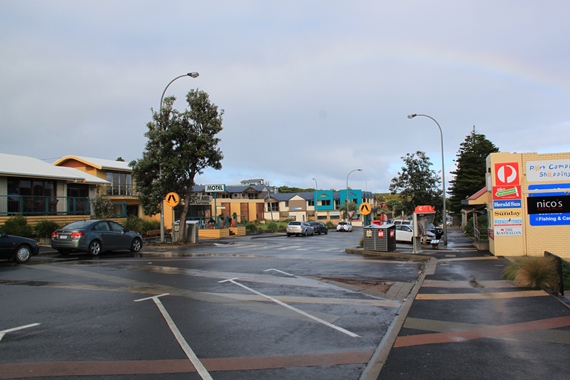
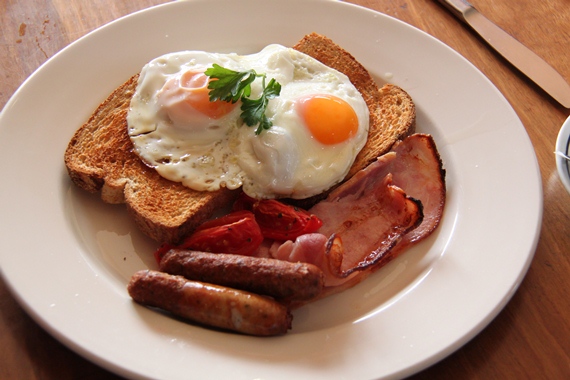

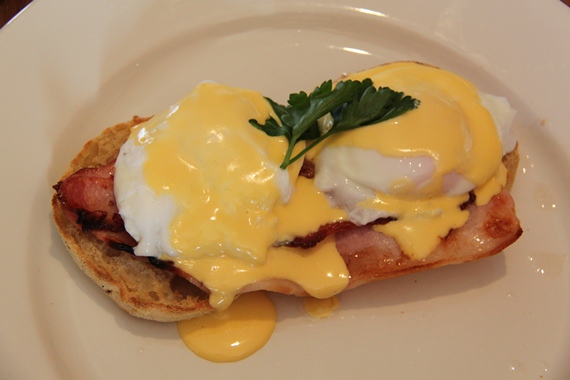
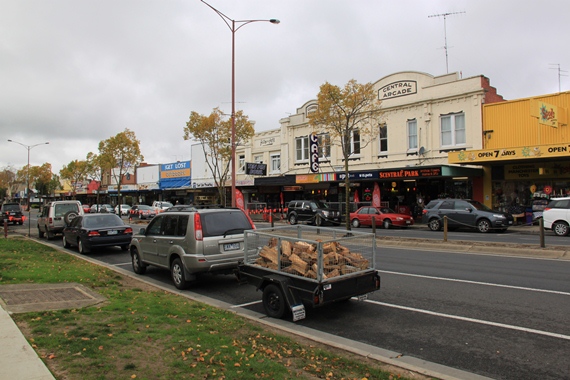
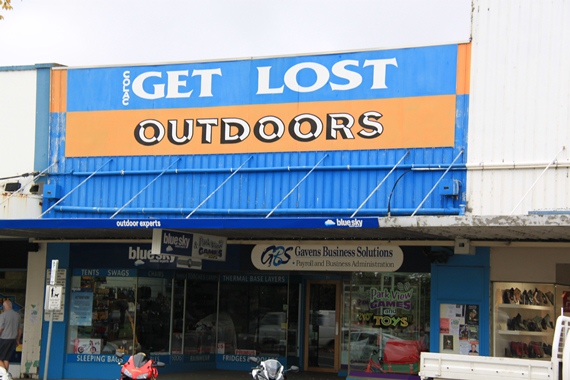
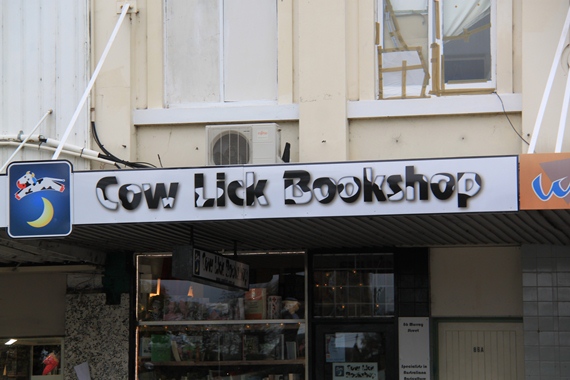
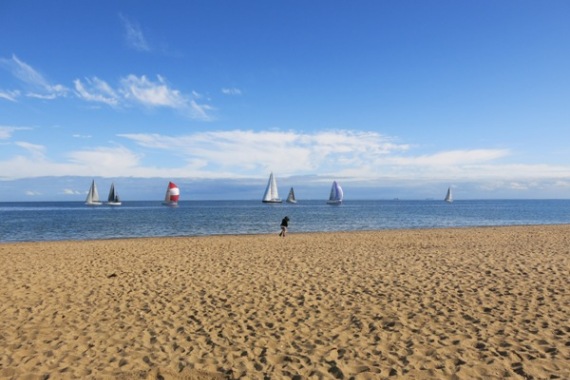

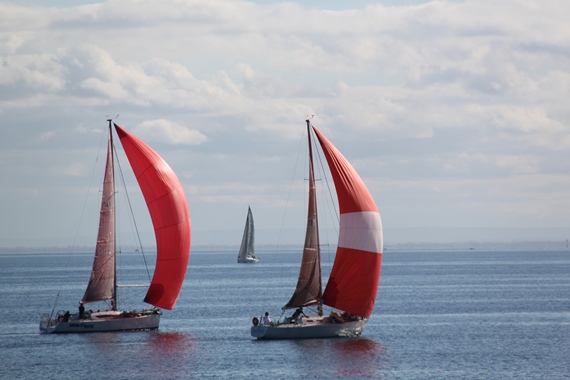
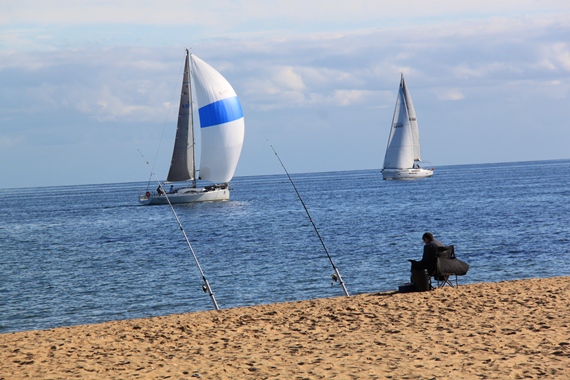

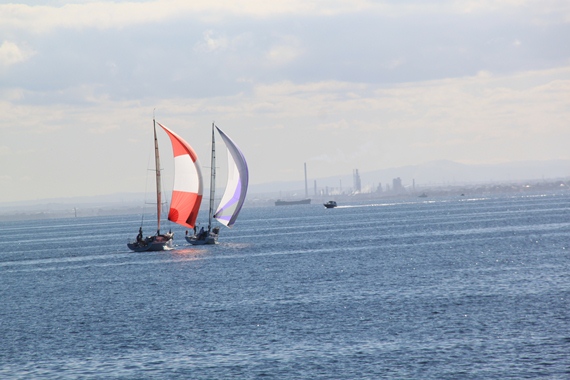
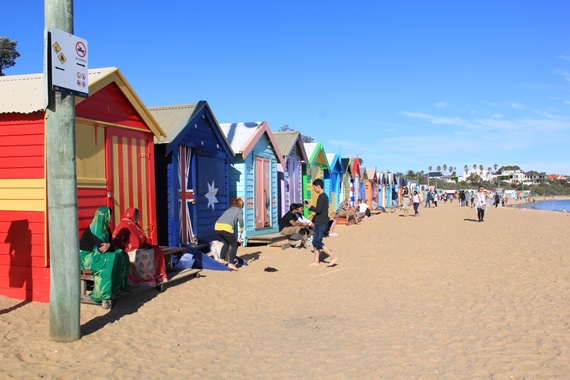
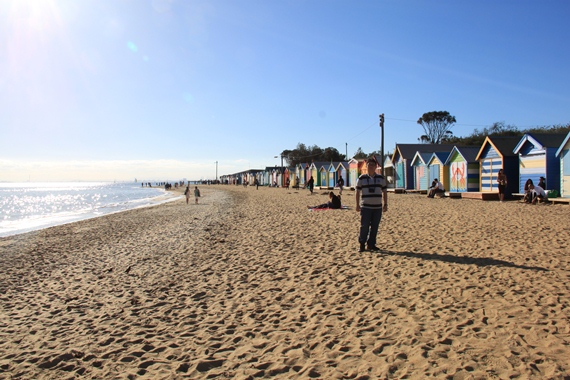

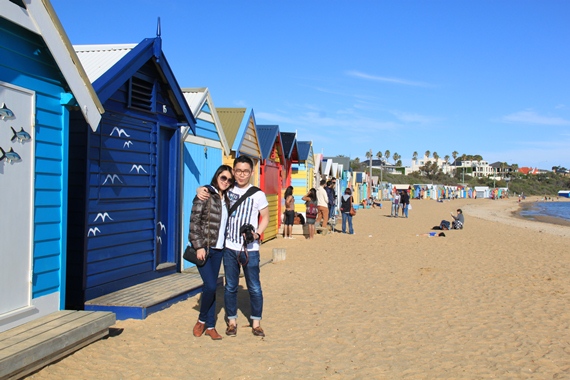

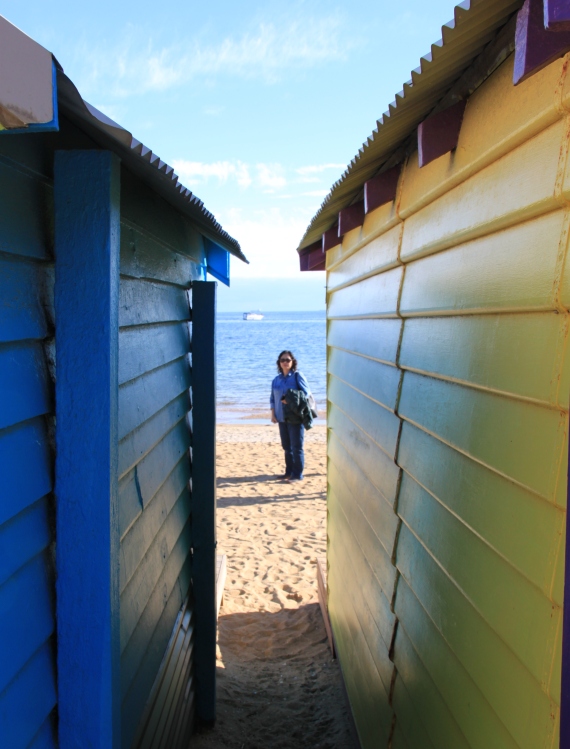
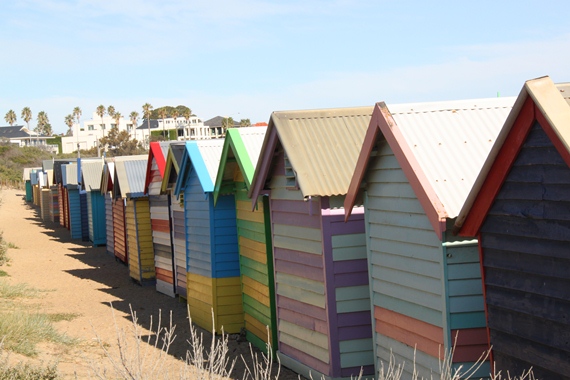
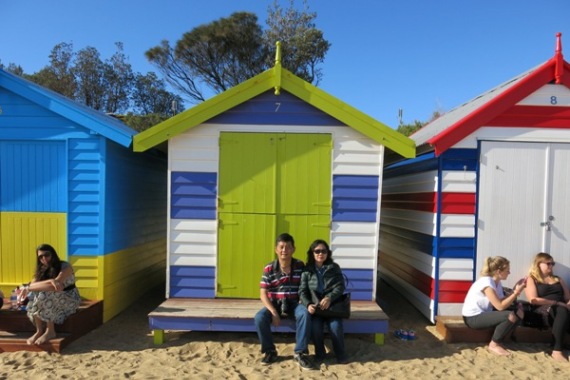
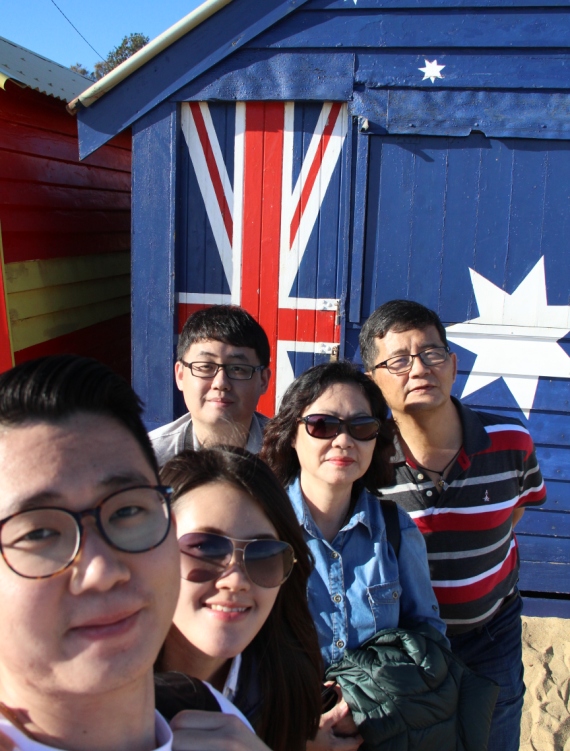
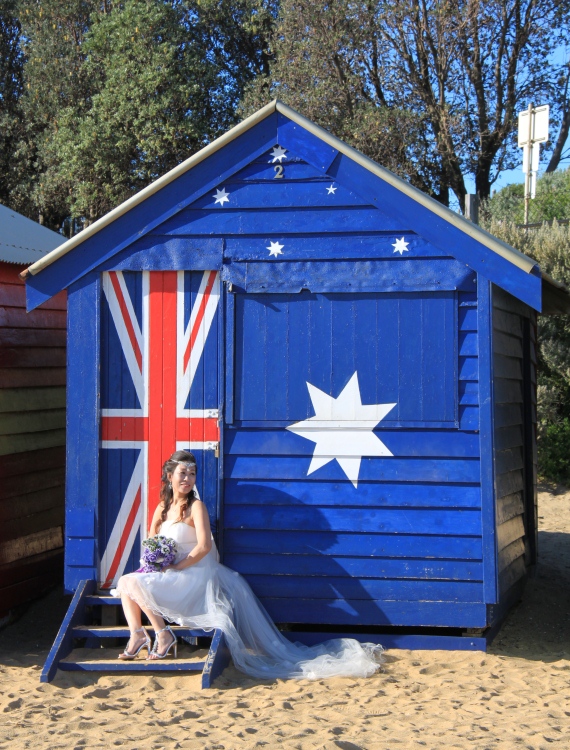
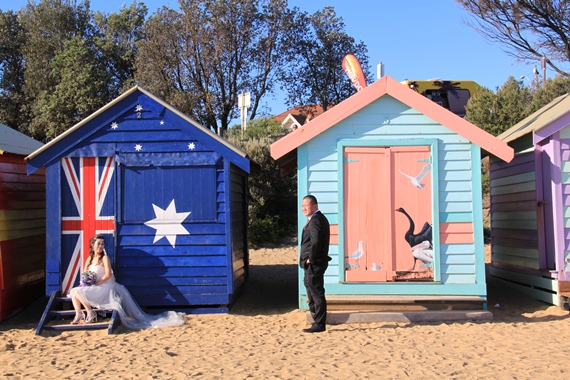
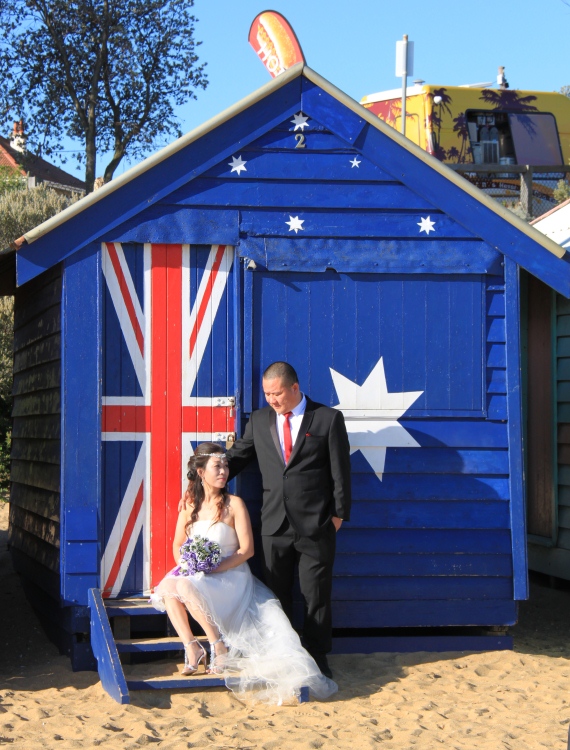
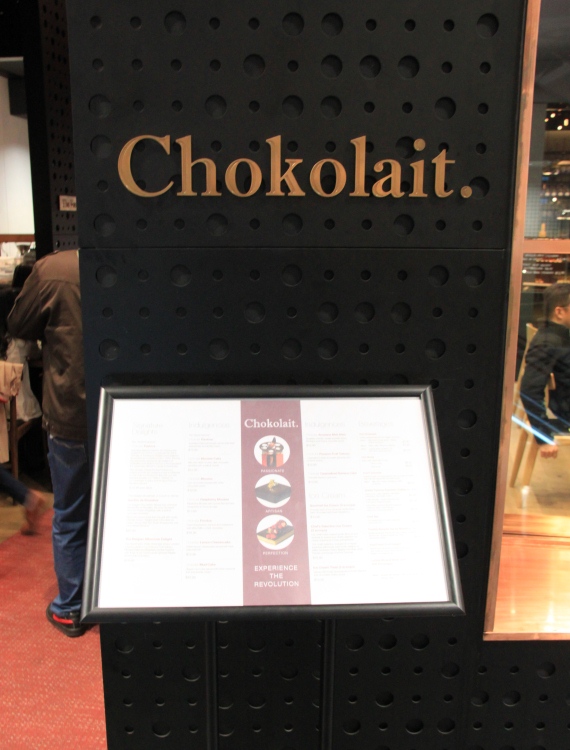

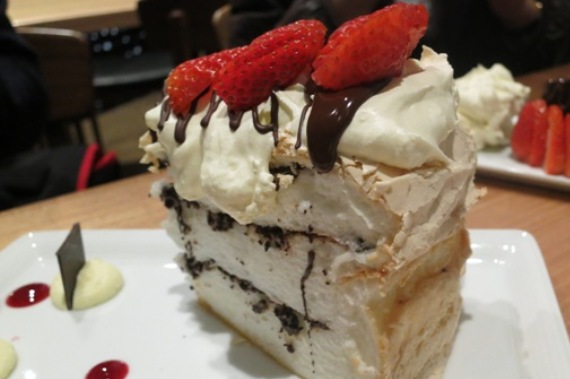
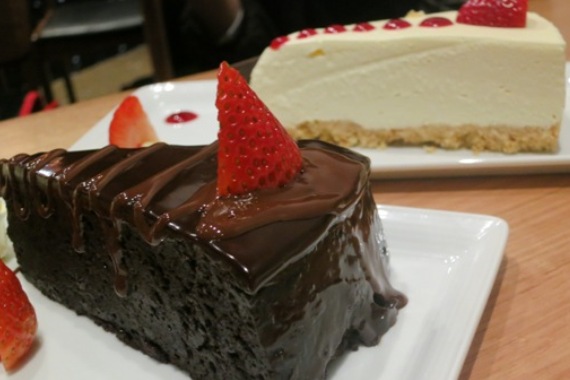
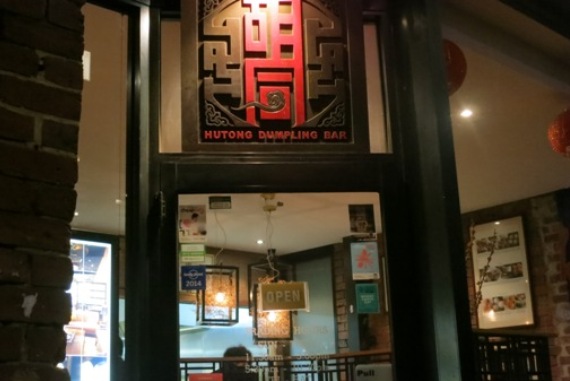
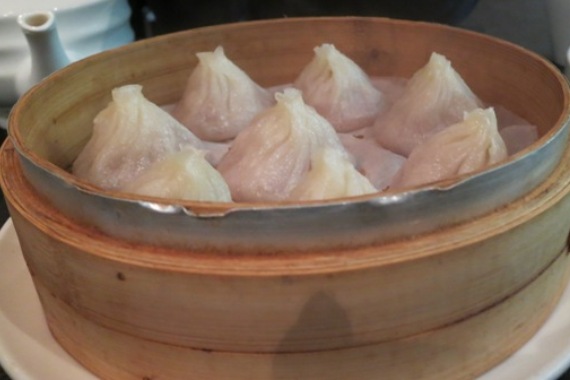
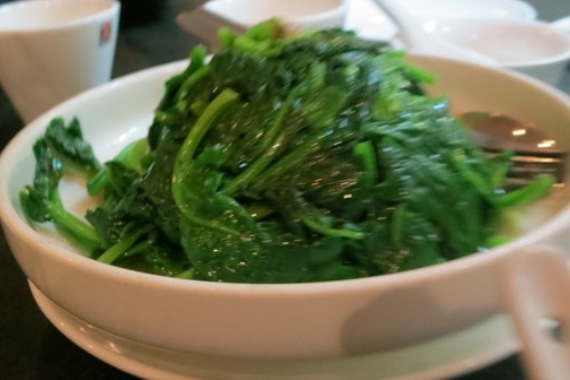
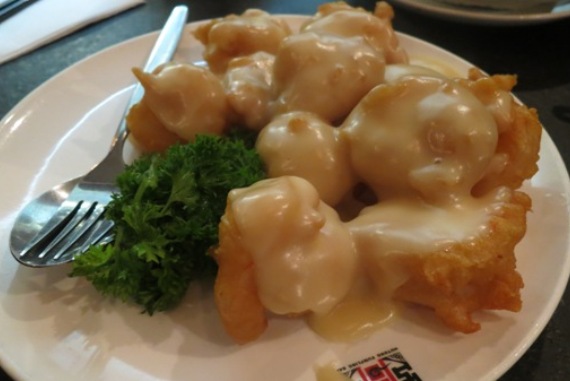
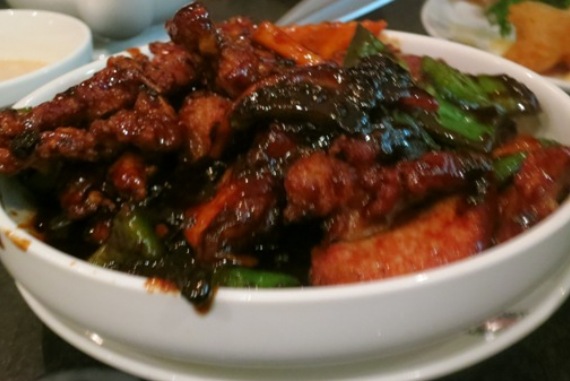
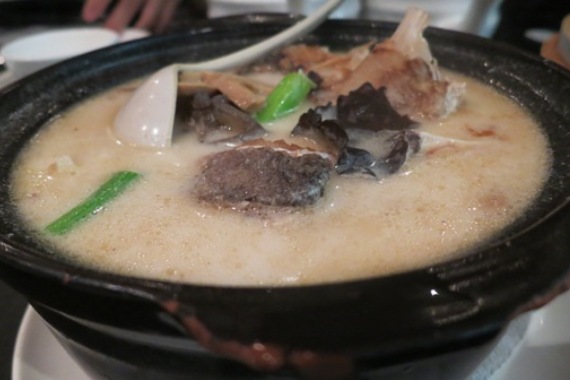
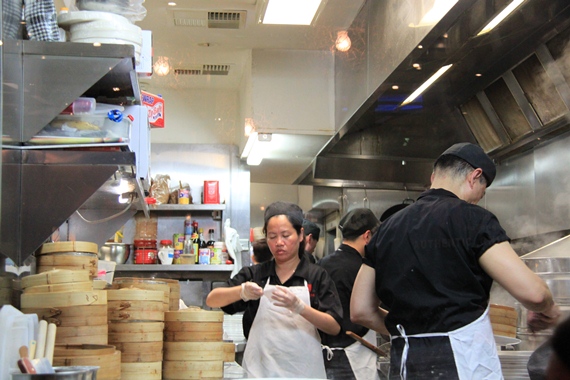
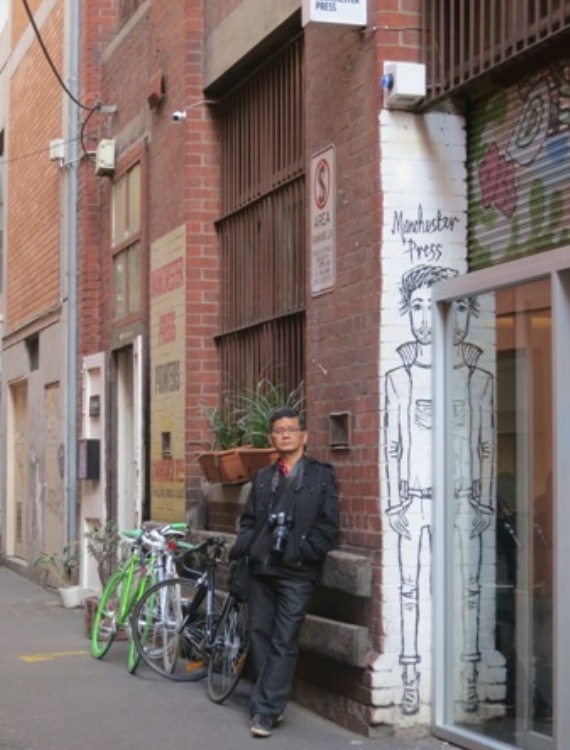
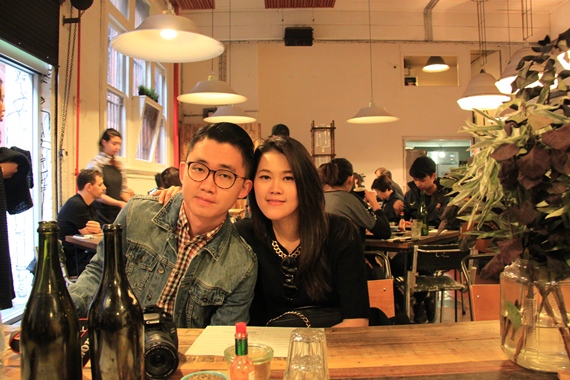
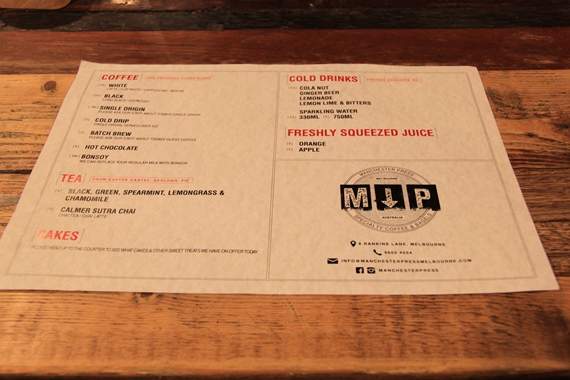
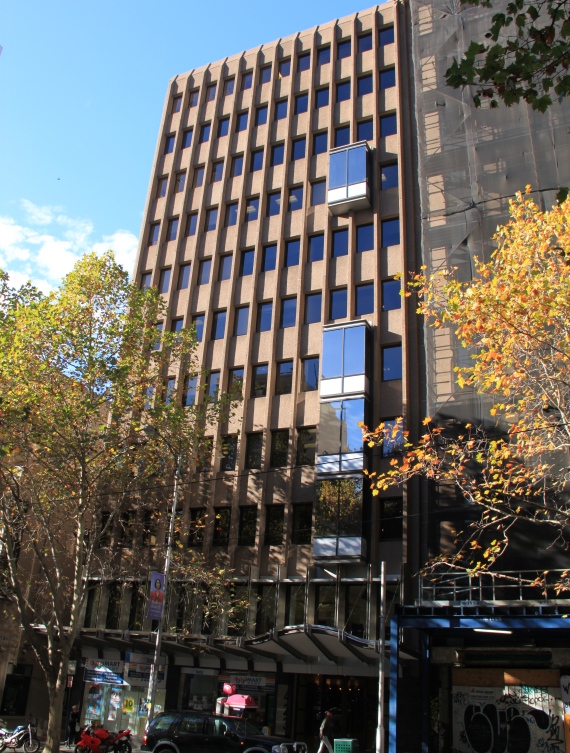
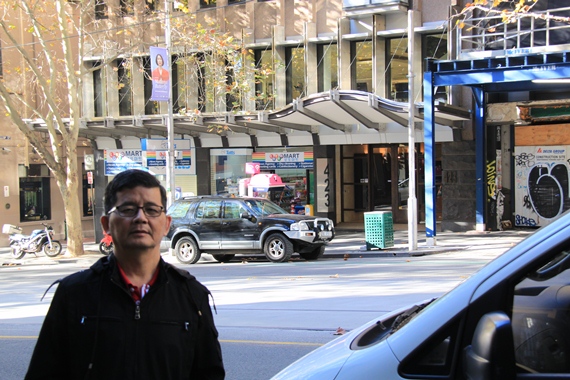
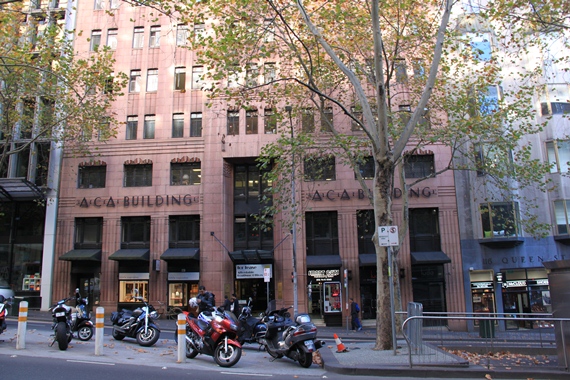
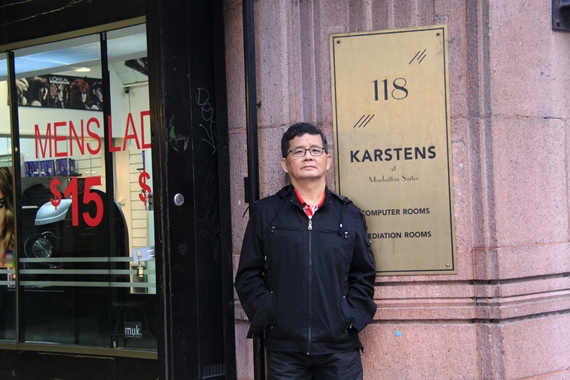
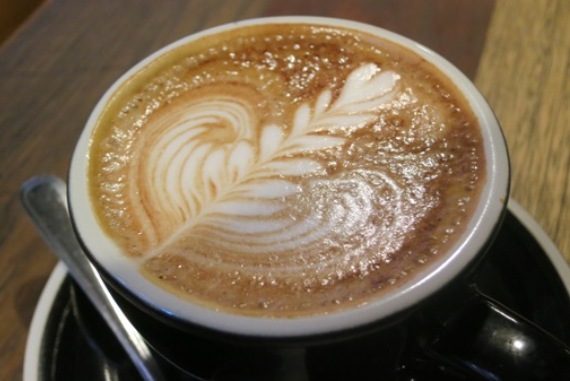
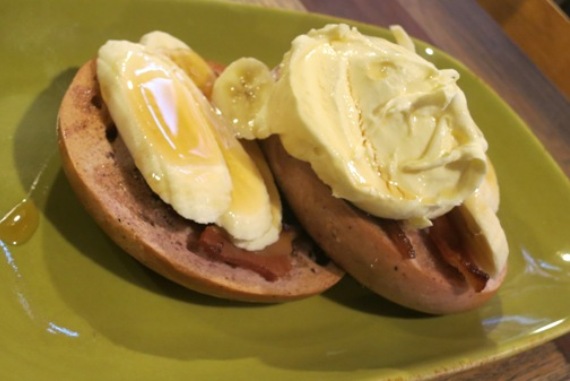
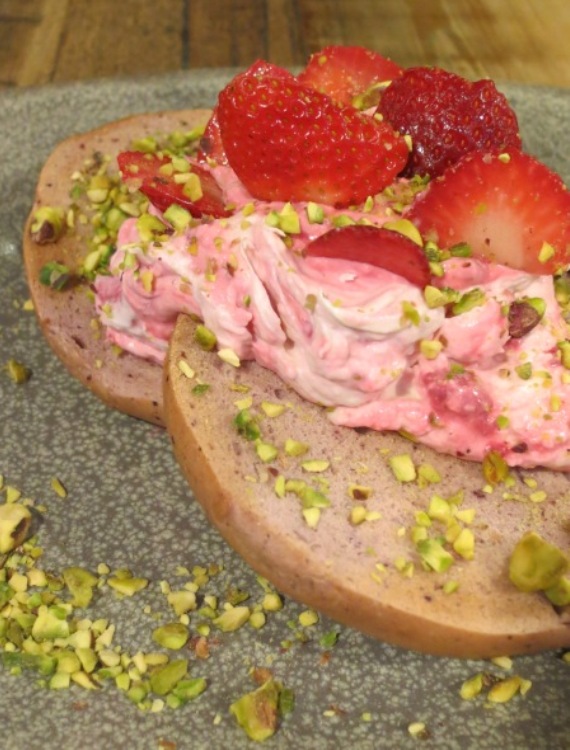
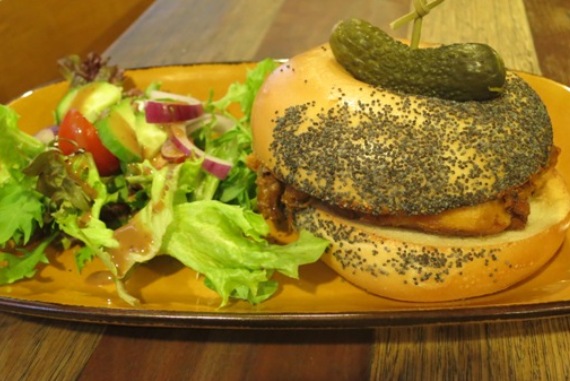
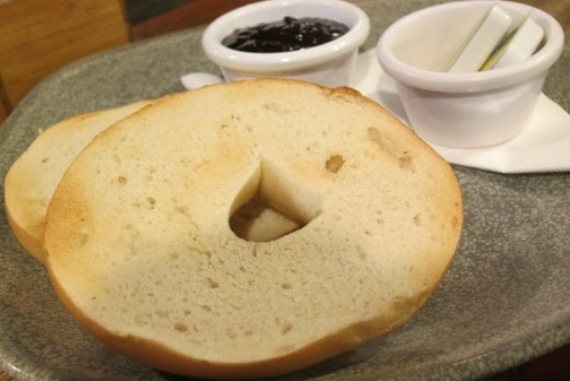
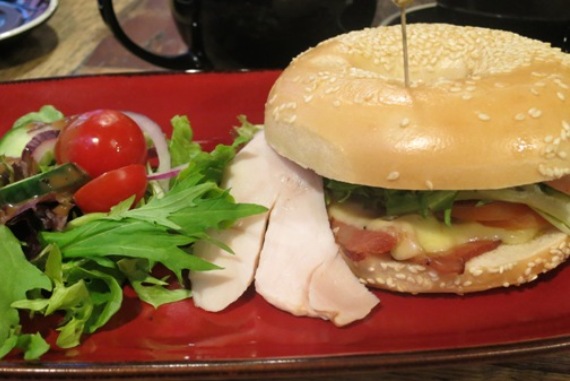
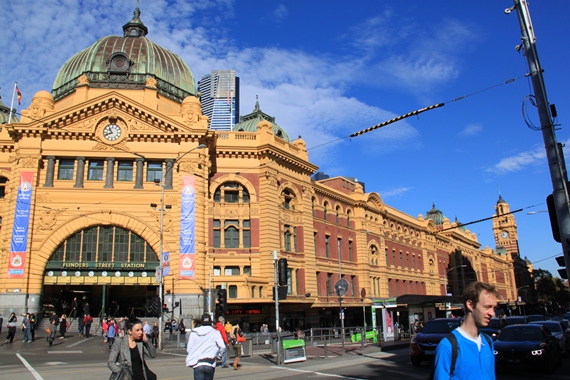
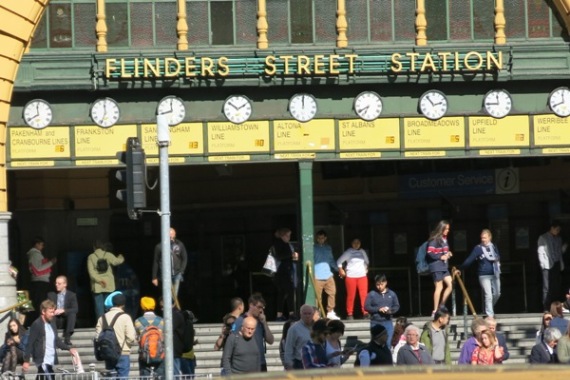

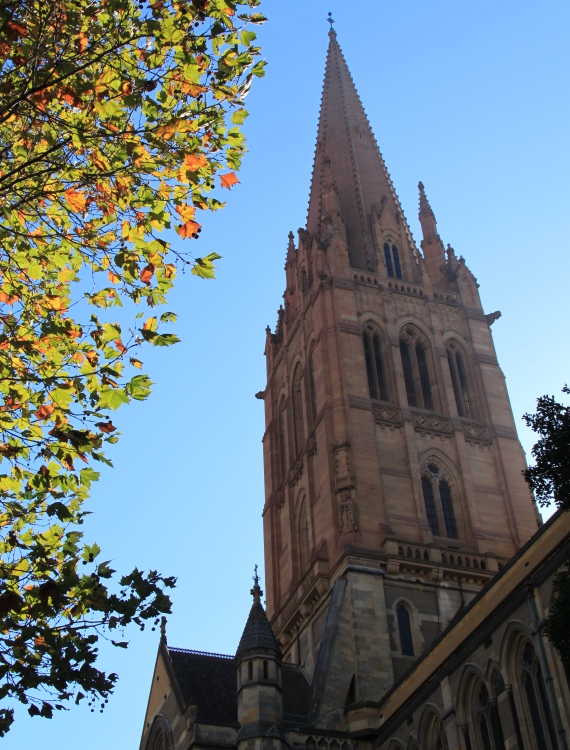
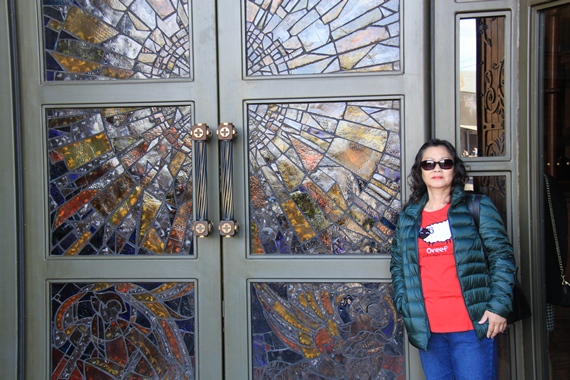
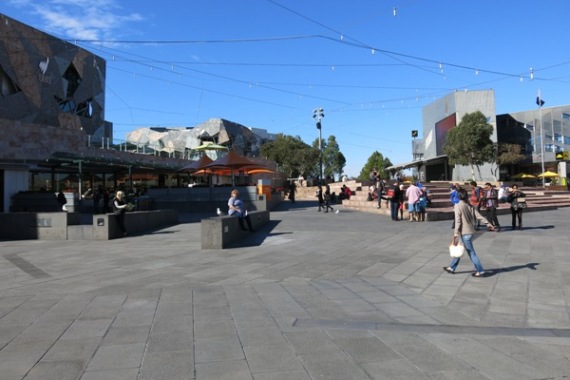
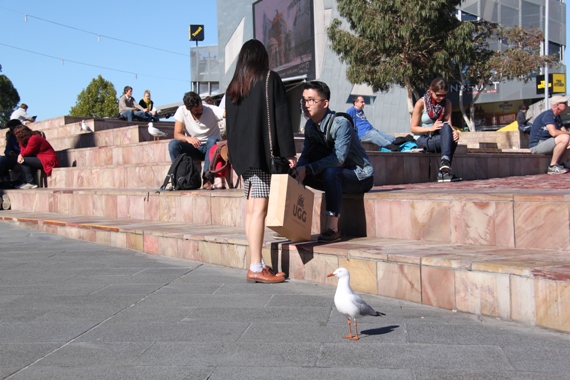
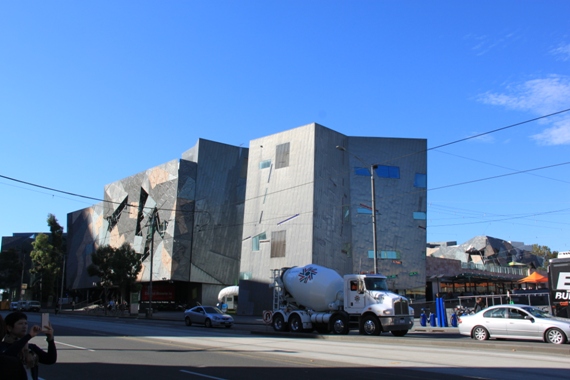
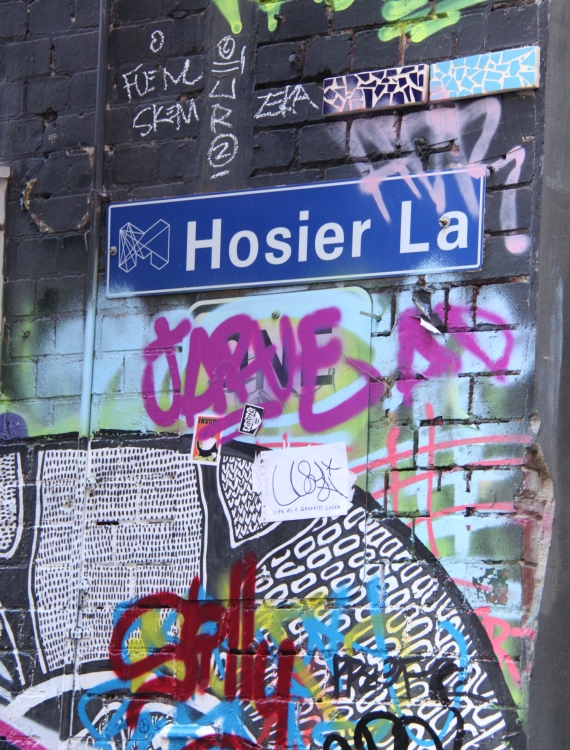


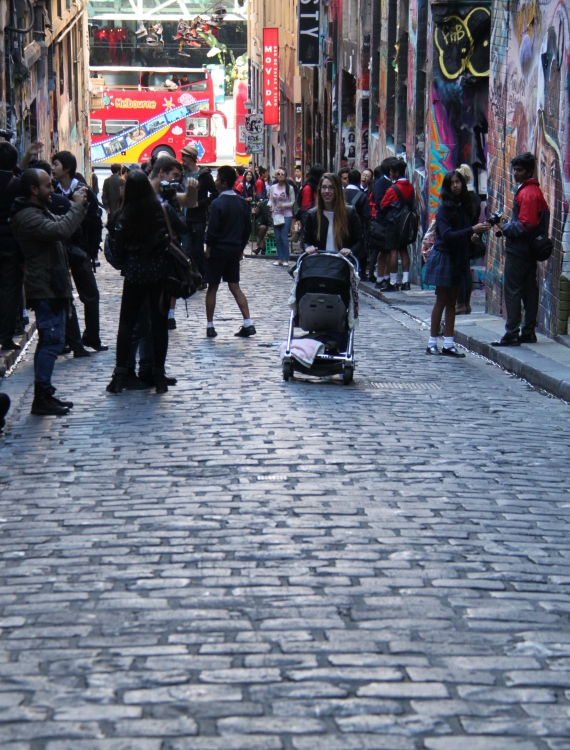
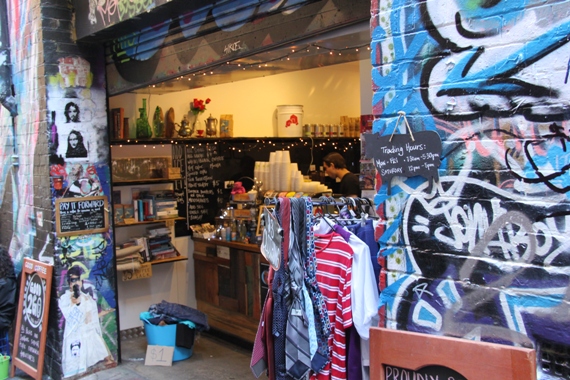
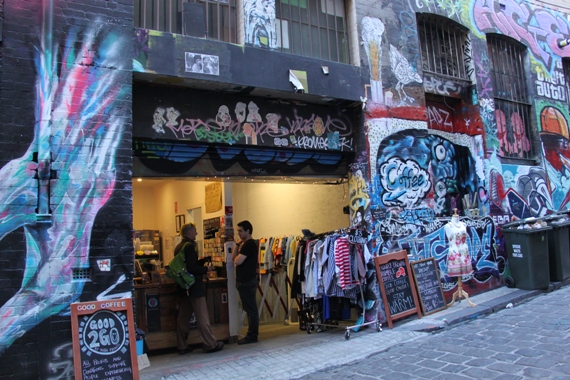
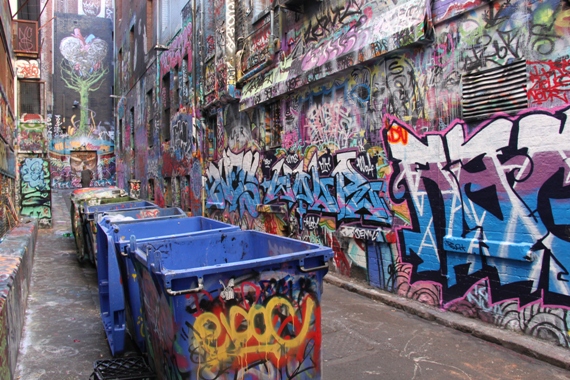
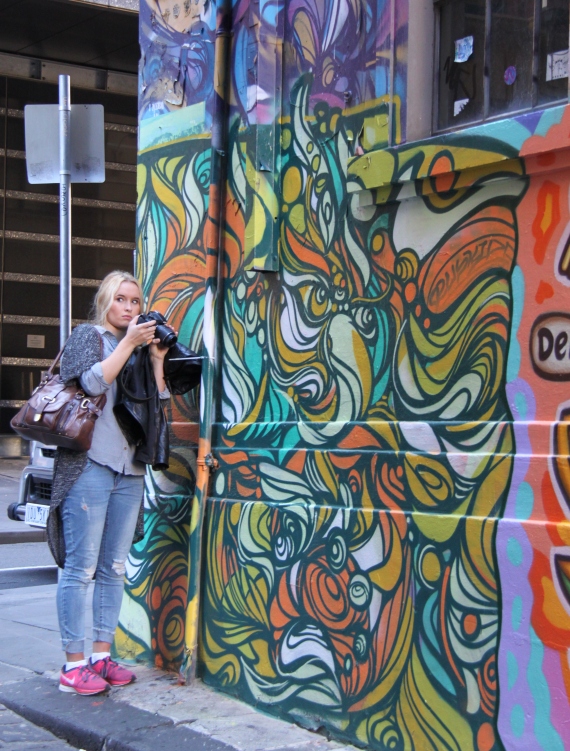
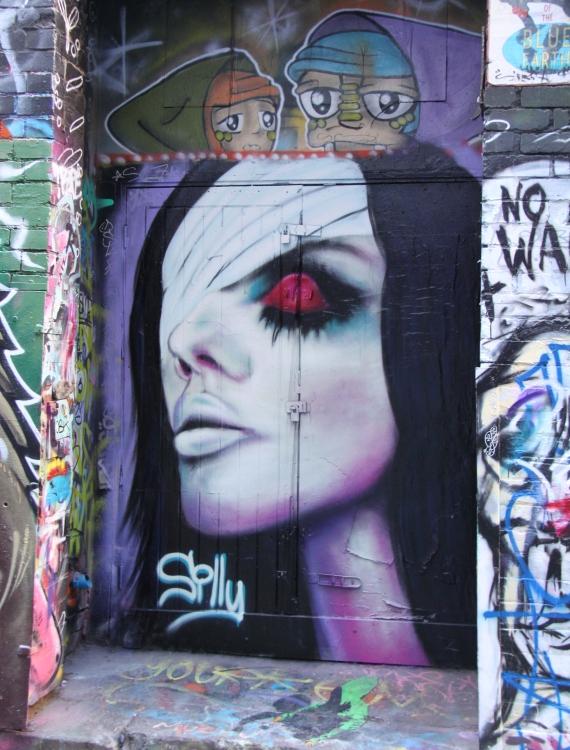

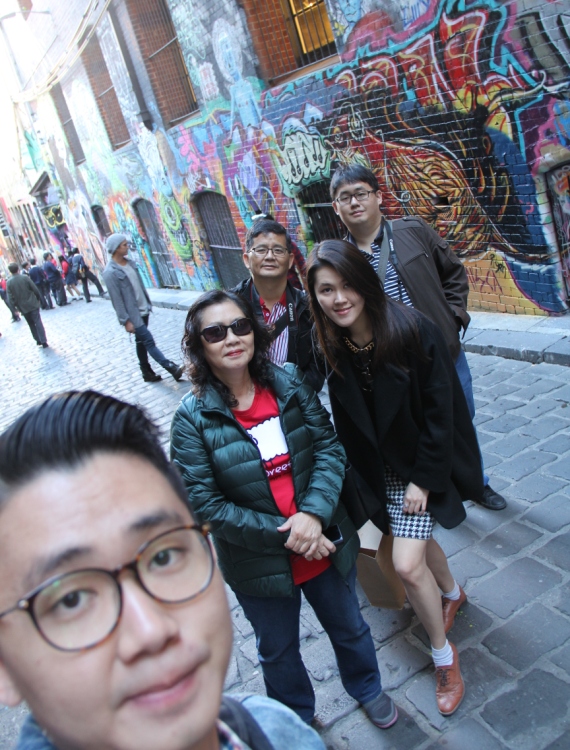
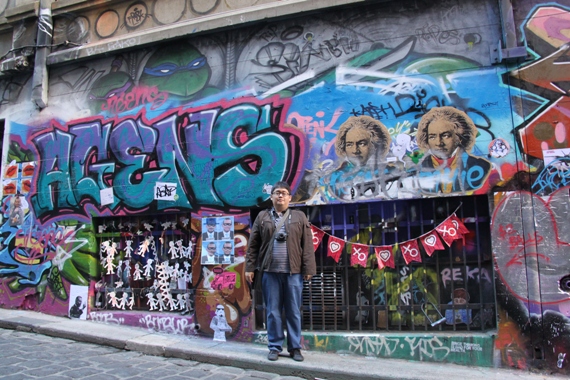
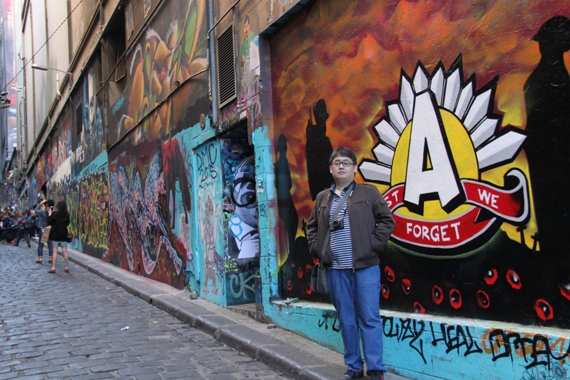
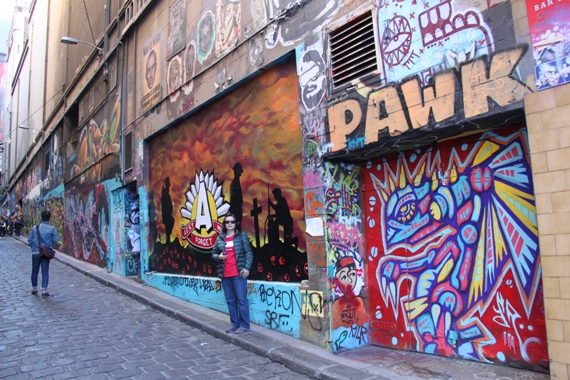

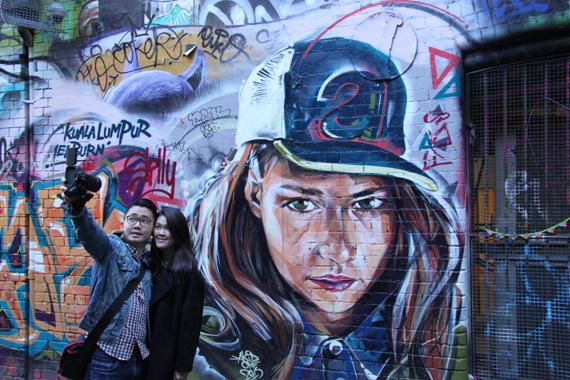
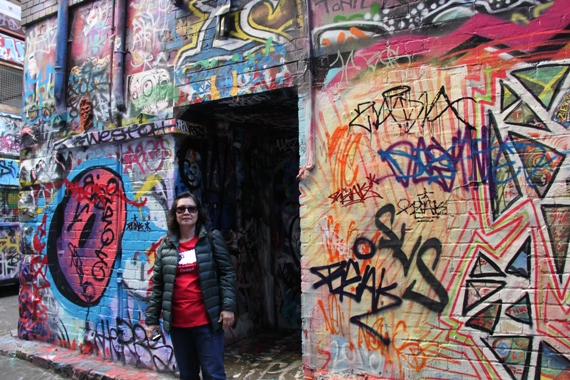
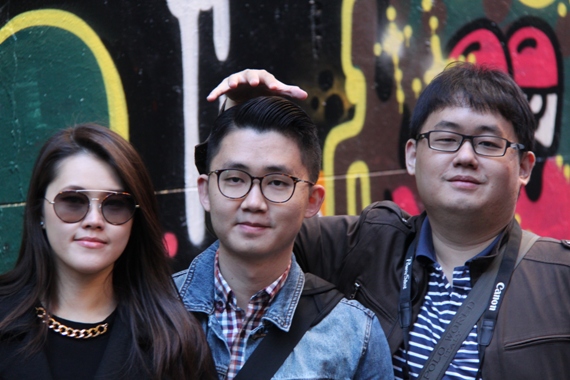
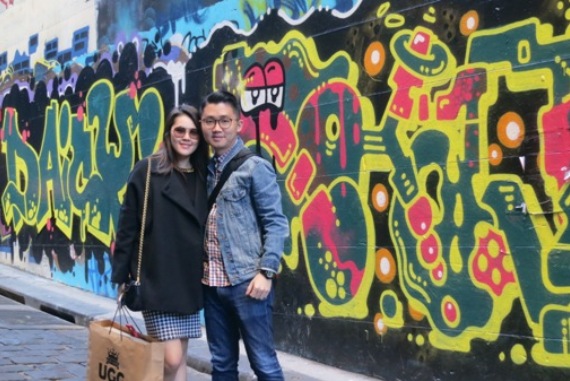
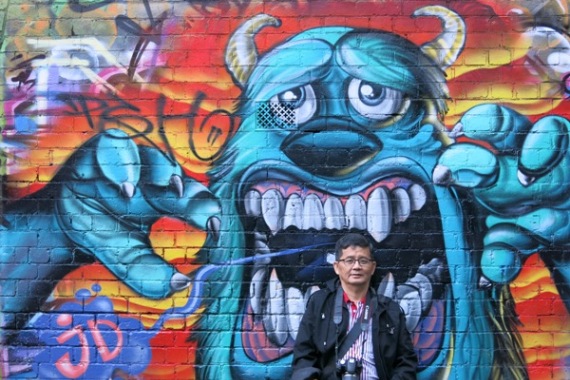
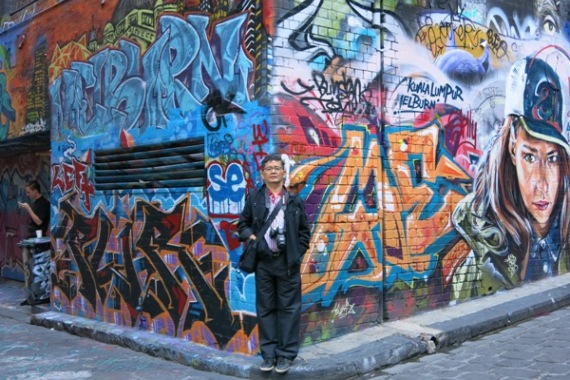
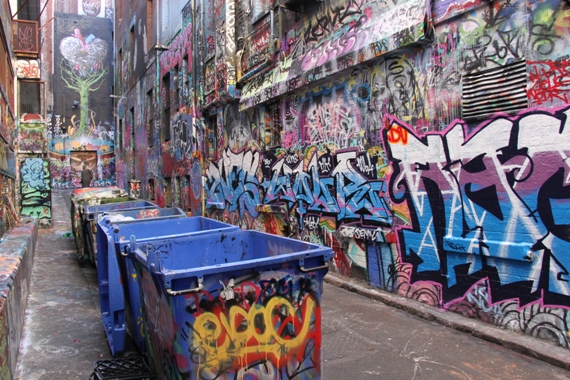

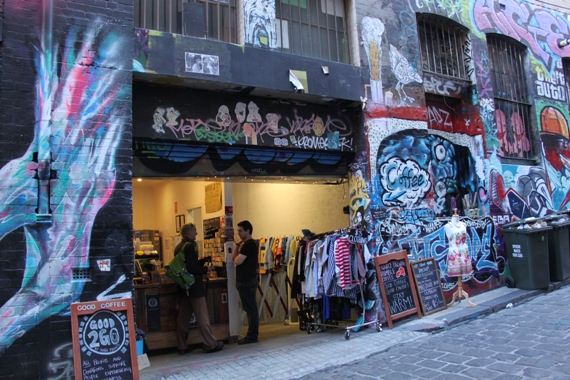
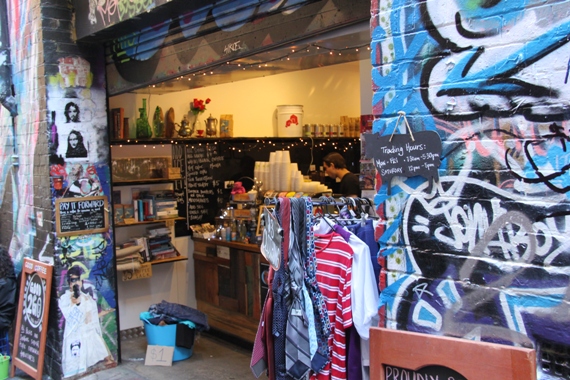
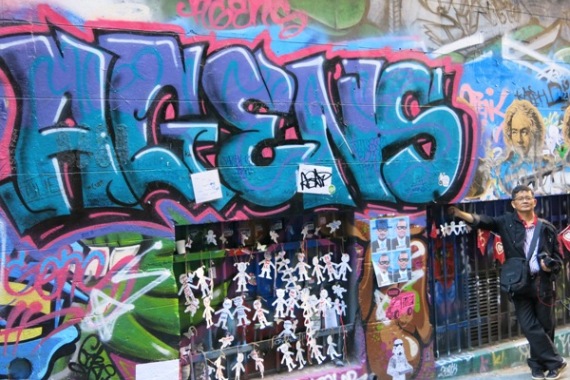
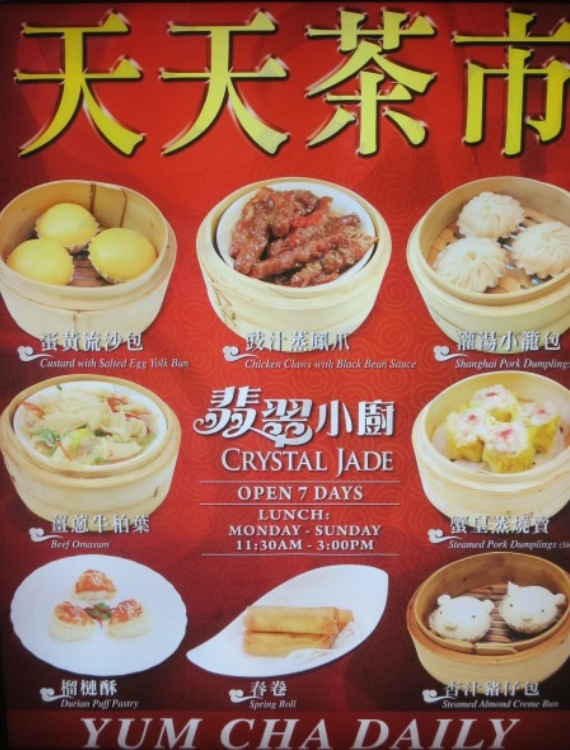

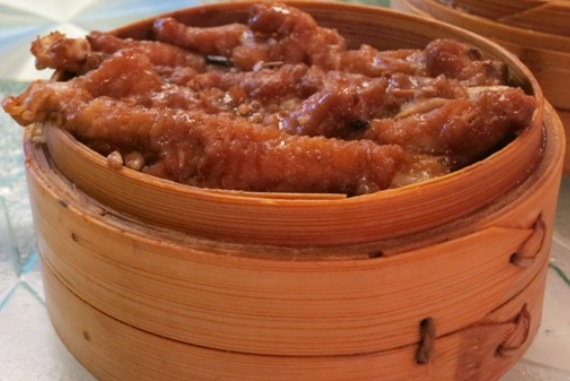
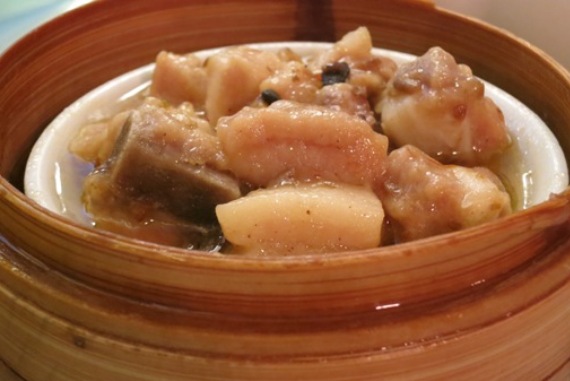
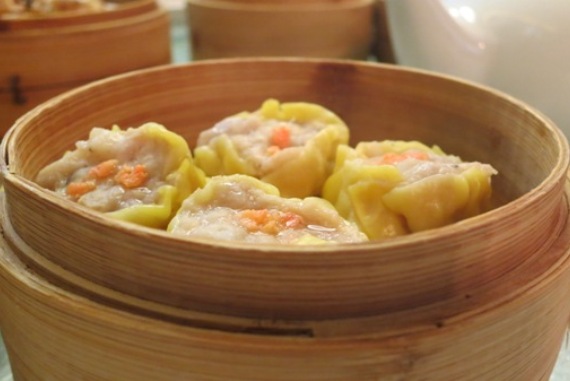
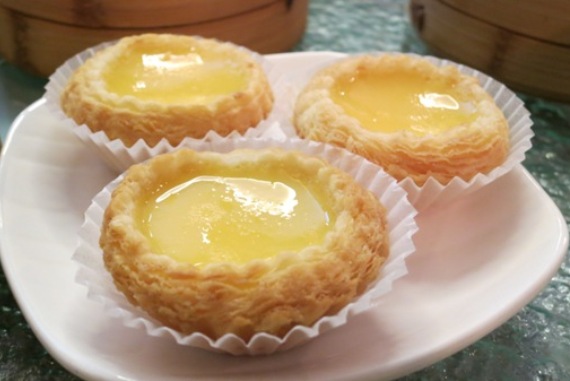
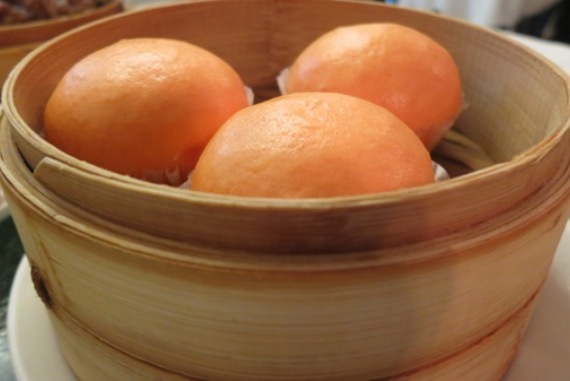
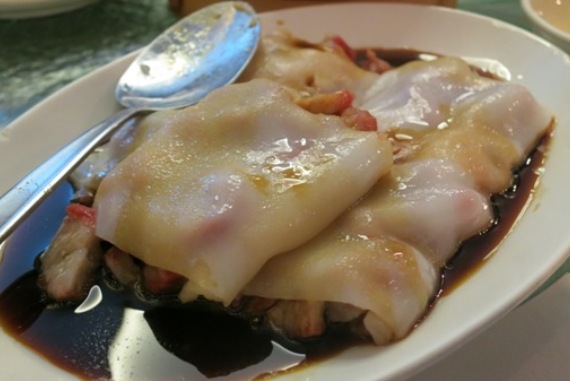
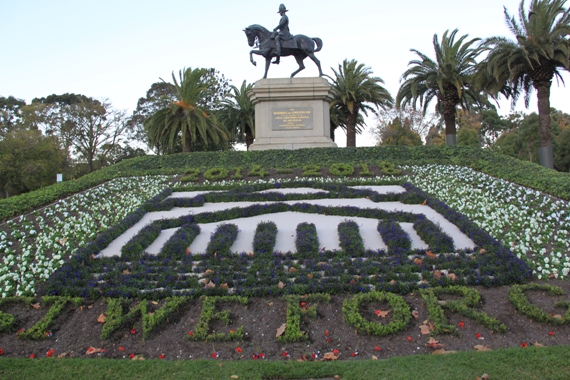
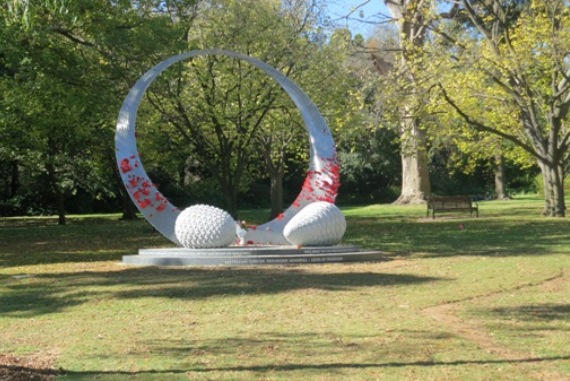

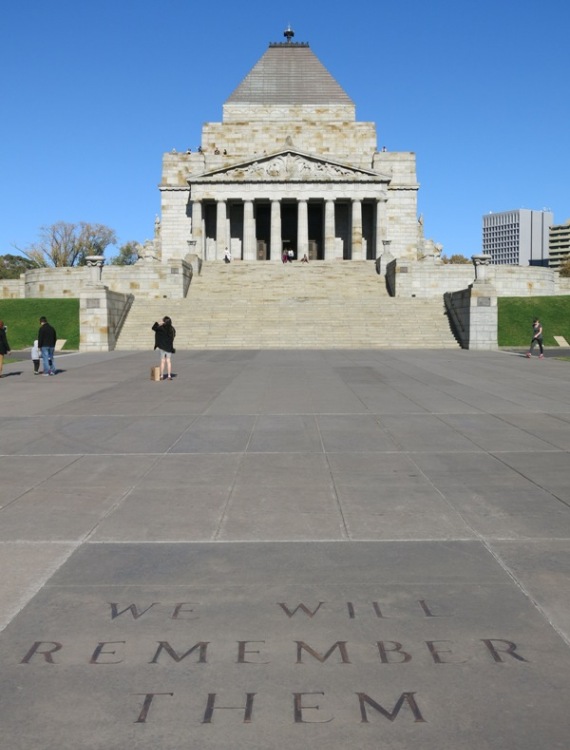
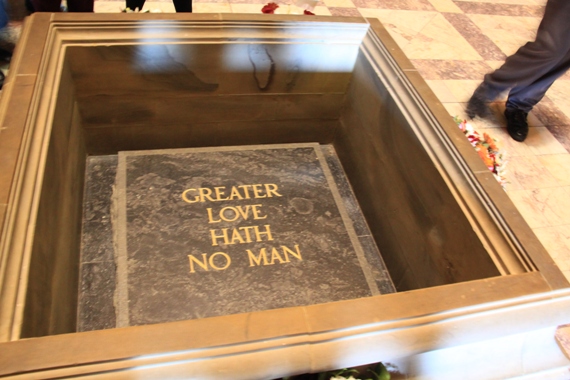
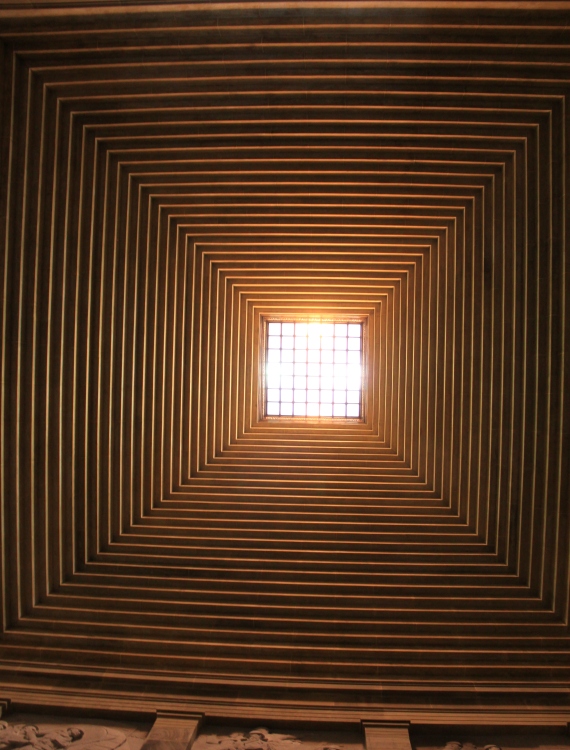
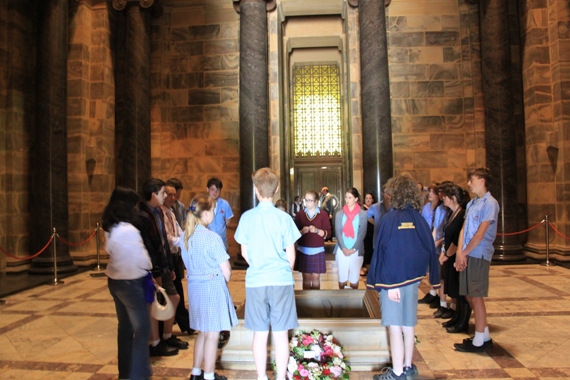
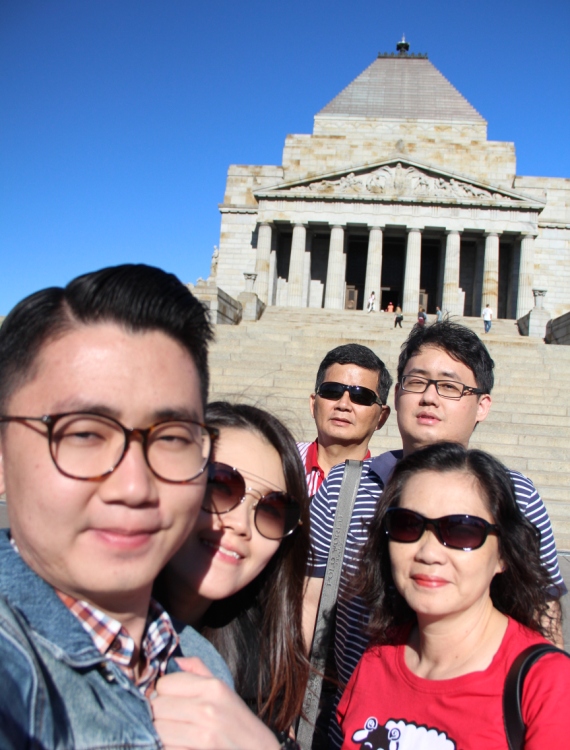
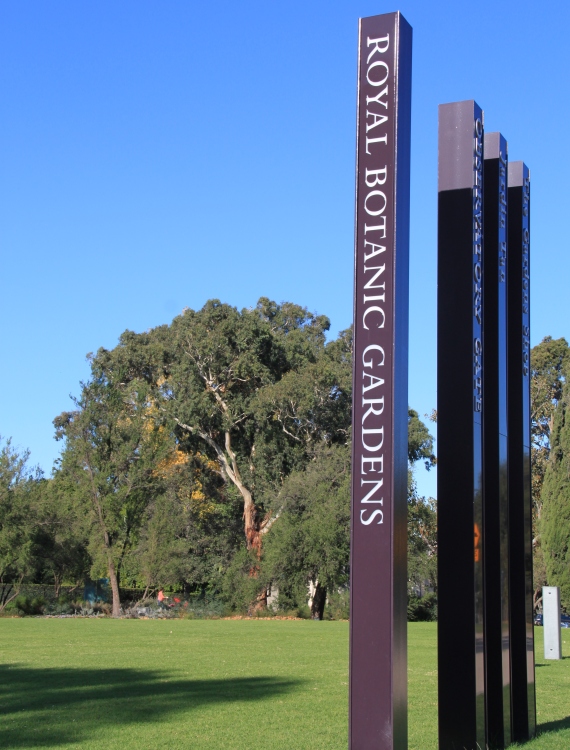
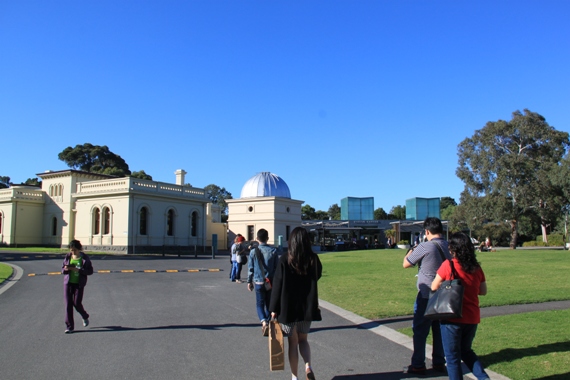

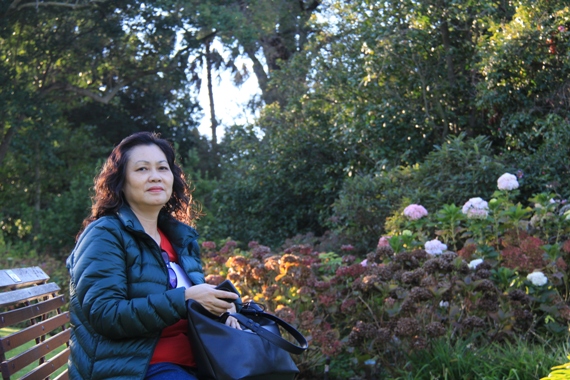
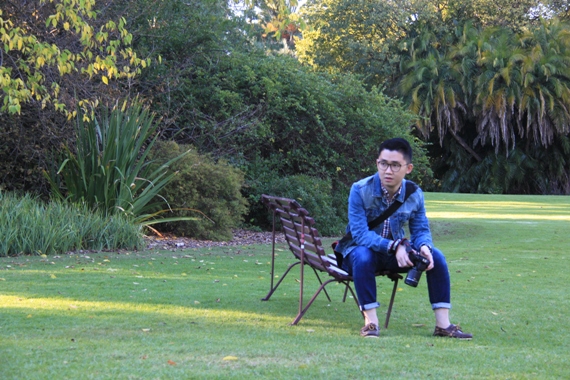

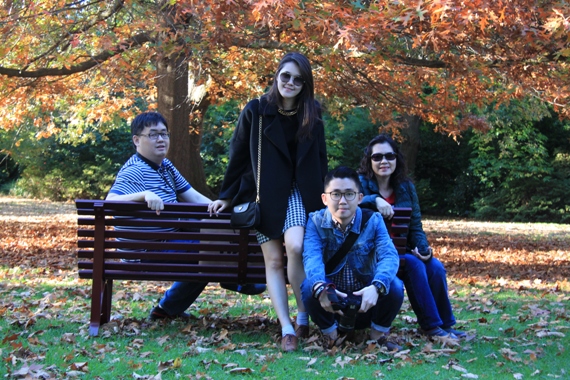
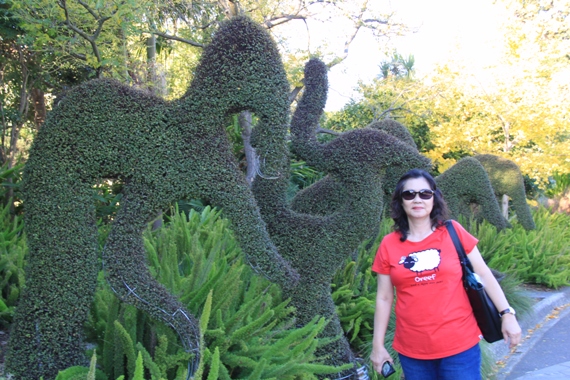
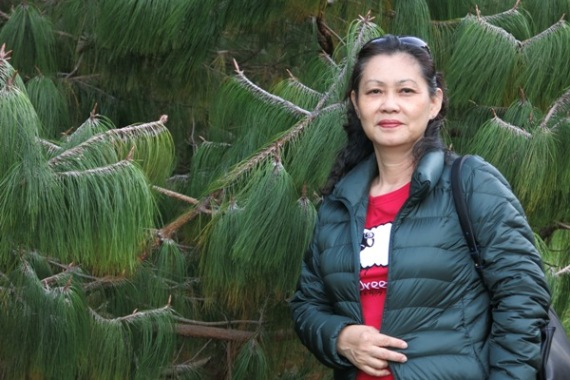
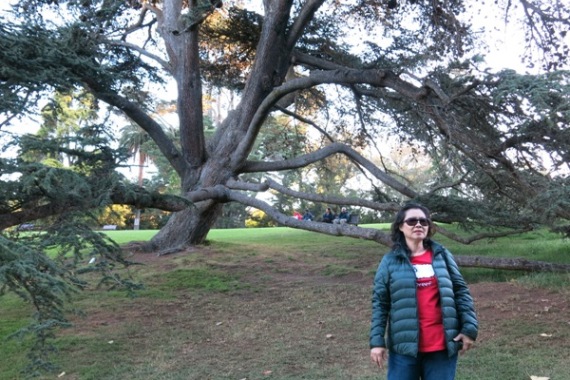
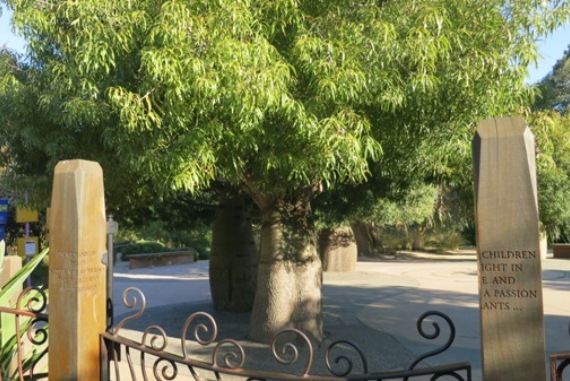
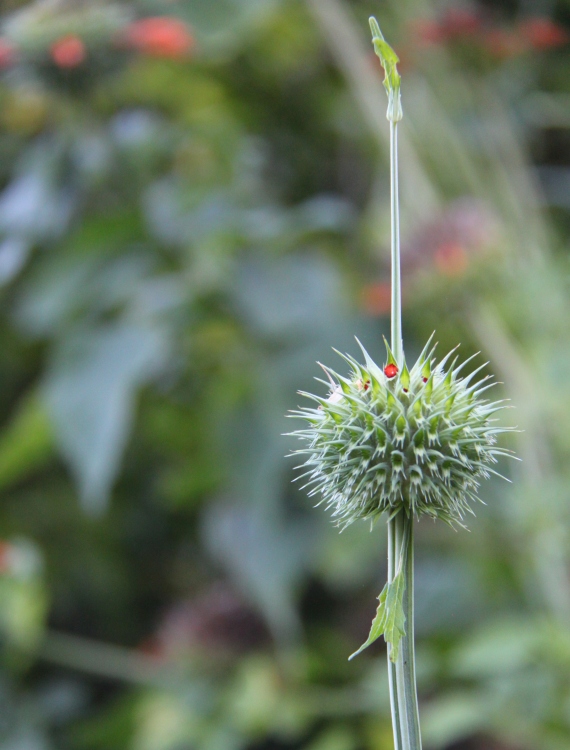
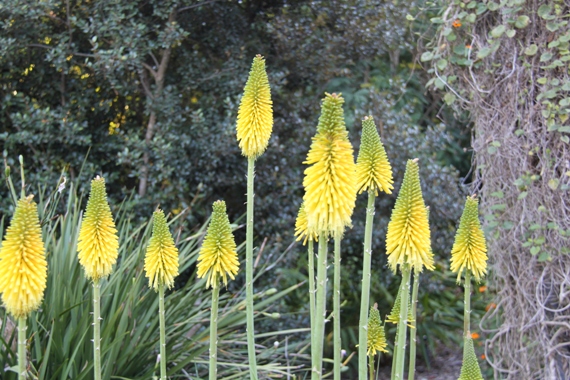
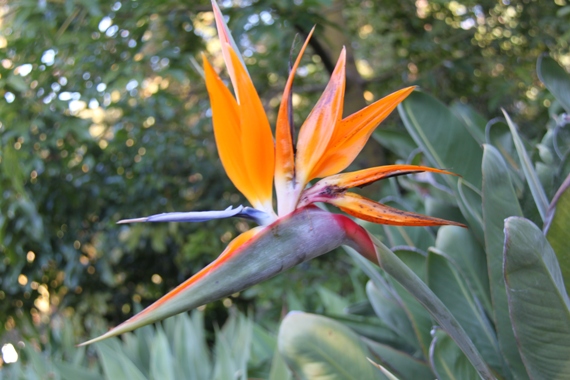
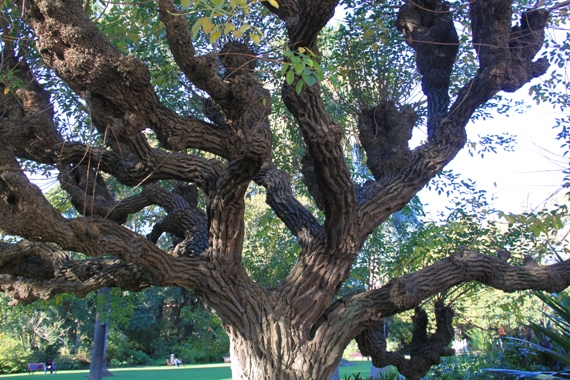
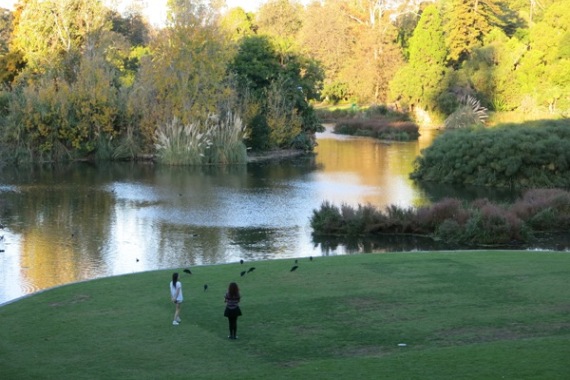
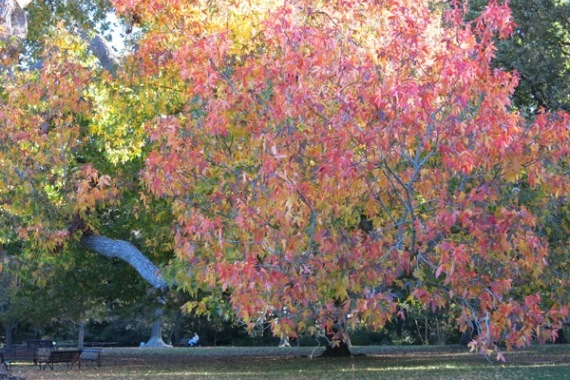
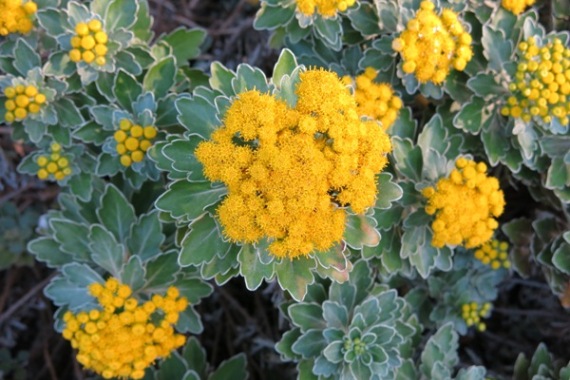
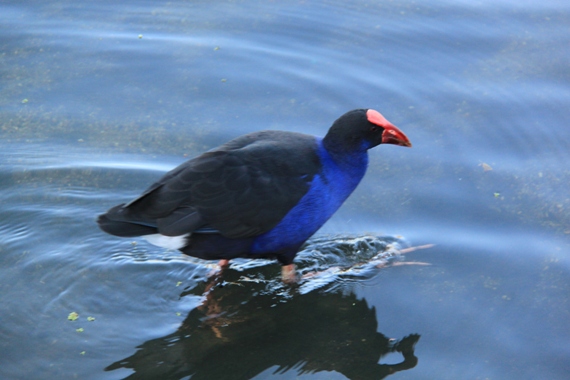
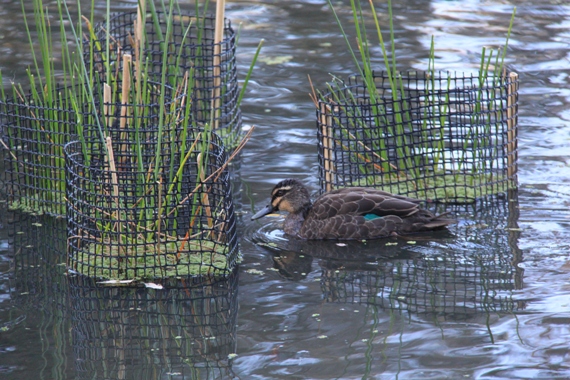
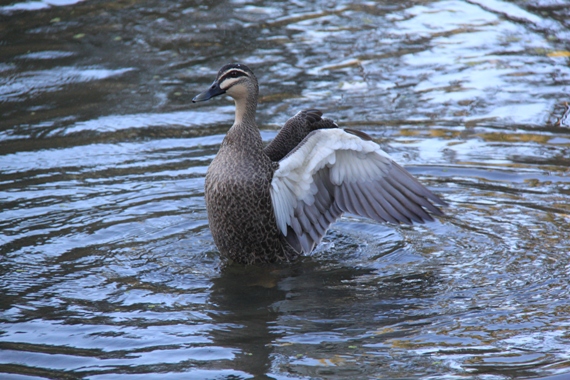
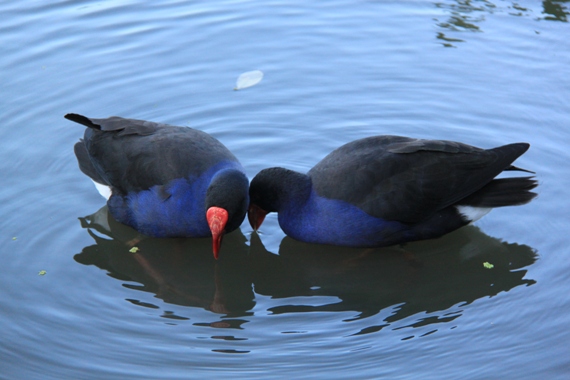

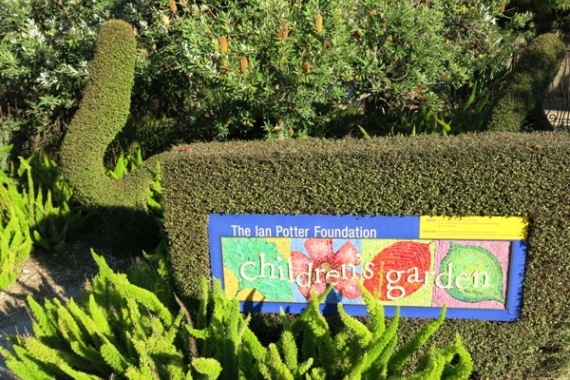
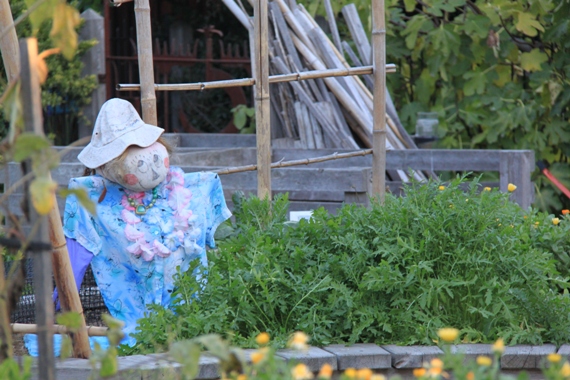
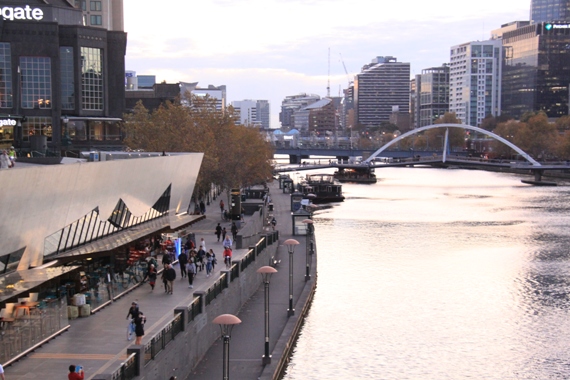
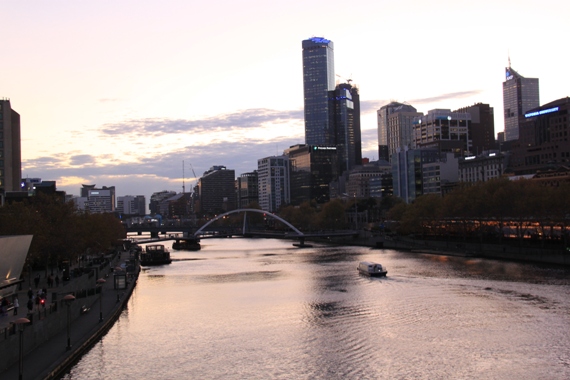
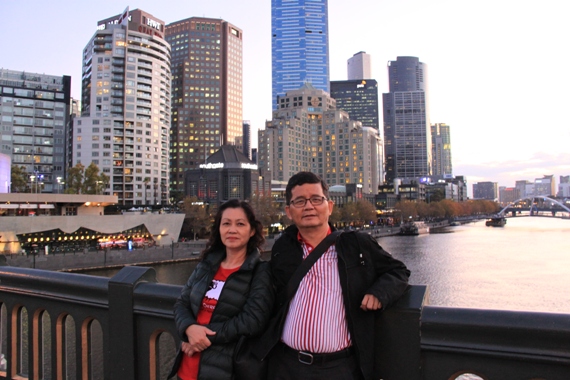
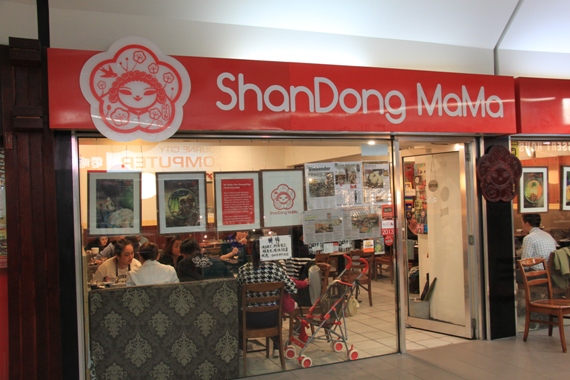

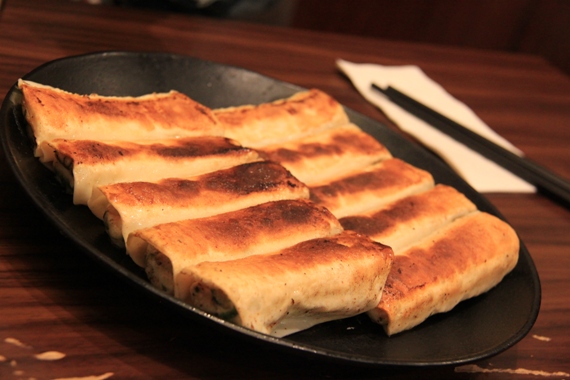
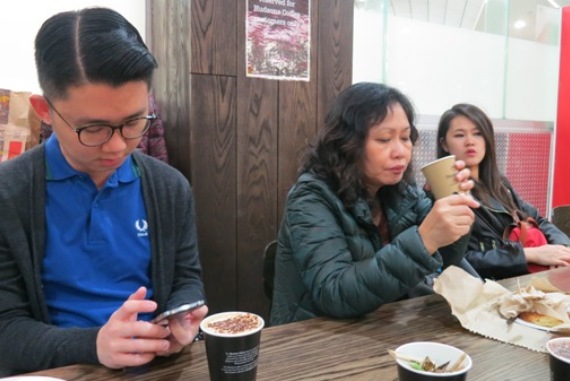
ating@bigpond.net.au